You are using an outdated browser. Upgrade your browser today or install Google Chrome Frame to better experience this site.

Zambia Traveler View
Travel health notices, vaccines and medicines, non-vaccine-preventable diseases, stay healthy and safe.
- Packing List
After Your Trip
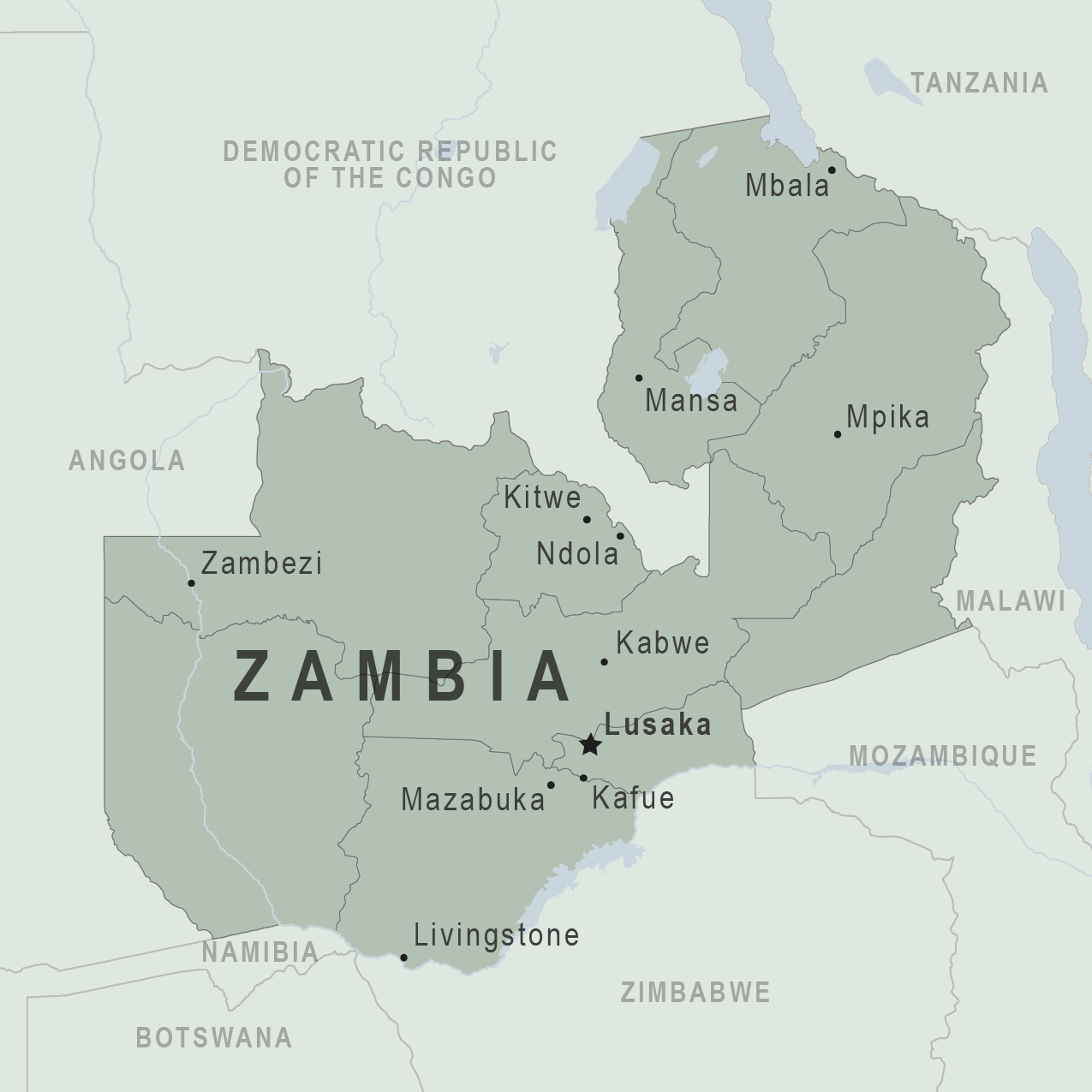
Be aware of current health issues in Zambia. Learn how to protect yourself.
Level 2 Practice Enhanced Precautions
- Global Polio January 05, 2024 Some international destinations have circulating poliovirus. Before any international travel, make sure you are up to date on your polio vaccines. Destination List: Afghanistan, Algeria, Benin, Botswana, Burkina Faso, Burundi, Cameroon, Central African Republic, Chad, Côte d'Ivoire (Ivory Coast), Democratic Republic of the Congo, Egypt, Guinea, Indonesia, Israel, including the West Bank and Gaza, Kenya, Madagascar, Malawi, Mali, Mauritania, Mozambique, Niger, Nigeria, Pakistan, Republic of the Congo, Somalia, Sudan, Tanzania, including Zanzibar, Yemen, Zambia, Zimbabwe
Level 1 Practice Usual Precautions
- Global Measles March 22, 2024 Many international destinations are reporting increased numbers of cases of measles. Destination List: Afghanistan, Angola, Armenia, Azerbaijan, Benin, Burkina Faso, Burundi, Cameroon, Central African Republic, Chad, Côte d'Ivoire (Ivory Coast), Democratic Republic of the Congo, Djibouti, Equatorial Guinea, Ethiopia, Gabon, Ghana, India, Indonesia, Kazakhstan, Kyrgyzstan, Lebanon, Liberia, Libya, Malaysia, Mauritania, Nepal, Niger, Nigeria, Pakistan, Qatar, Republic of South Sudan, Republic of the Congo, Romania, Russia, Senegal, Somalia, Sri Lanka, Sudan, Syria, Tajikistan, Togo, Turkey, United Arab Emirates, Uzbekistan, Yemen, Zambia
⇧ Top
Check the vaccines and medicines list and visit your doctor at least a month before your trip to get vaccines or medicines you may need. If you or your doctor need help finding a location that provides certain vaccines or medicines, visit the Find a Clinic page.
Routine vaccines
Recommendations.
Make sure you are up-to-date on all routine vaccines before every trip. Some of these vaccines include
- Chickenpox (Varicella)
- Diphtheria-Tetanus-Pertussis
- Flu (influenza)
- Measles-Mumps-Rubella (MMR)
Immunization schedules
All eligible travelers should be up to date with their COVID-19 vaccines. Please see Your COVID-19 Vaccination for more information.
COVID-19 vaccine
Active cholera transmission is widespread in Zambia. Cholera is rare in travelers. Certain factors may increase the risk of getting cholera or having severe disease ( more information ). Avoiding unsafe food and water and washing your hands can also help prevent cholera.
Vaccination may be considered for children and adults who are traveling to areas of active cholera transmission.
Cholera - CDC Yellow Book
Hepatitis A
Recommended for unvaccinated travelers one year old or older going to Zambia.
Infants 6 to 11 months old should also be vaccinated against Hepatitis A. The dose does not count toward the routine 2-dose series.
Travelers allergic to a vaccine component or who are younger than 6 months should receive a single dose of immune globulin, which provides effective protection for up to 2 months depending on dosage given.
Unvaccinated travelers who are over 40 years old, immunocompromised, or have chronic medical conditions planning to depart to a risk area in less than 2 weeks should get the initial dose of vaccine and at the same appointment receive immune globulin.
Hepatitis A - CDC Yellow Book
Dosing info - Hep A
Hepatitis B
Recommended for unvaccinated travelers younger than 60 years old traveling to Zambia. Unvaccinated travelers 60 years and older may get vaccinated before traveling to Zambia.
Hepatitis B - CDC Yellow Book
Dosing info - Hep B
CDC recommends that travelers going to Zambia take prescription medicine to prevent malaria. Depending on the medicine you take, you will need to start taking this medicine multiple days before your trip, as well as during and after your trip. Talk to your doctor about which malaria medication you should take.
Find country-specific information about malaria.
Malaria - CDC Yellow Book
Considerations when choosing a drug for malaria prophylaxis (CDC Yellow Book)
Malaria information for Zambia.
Cases of measles are on the rise worldwide. Travelers are at risk of measles if they have not been fully vaccinated at least two weeks prior to departure, or have not had measles in the past, and travel internationally to areas where measles is spreading.
All international travelers should be fully vaccinated against measles with the measles-mumps-rubella (MMR) vaccine, including an early dose for infants 6–11 months, according to CDC’s measles vaccination recommendations for international travel .
Measles (Rubeola) - CDC Yellow Book
In Zambia poliovirus has been identified in the past year.
Travelers to Zambia are at increased risk of exposure to poliovirus.
Vaccine recommendations : Adults traveling to Zambia who received a complete polio vaccination series as children may receive a single lifetime booster dose of inactivated polio vaccine; travelers who are unvaccinated or not fully vaccinated should receive a complete polio vaccination series before travel. Children who are not fully vaccinated will be considered for an accelerated vaccination schedule .
Polio - CDC Yellow Book
Polio: For Travelers
Rabid dogs are commonly found in Zambia. If you are bitten or scratched by a dog or other mammal while in Zambia, there may be limited or no rabies treatment available.
Consider rabies vaccination before your trip if your activities mean you will be around dogs or wildlife.
Travelers more likely to encounter rabid animals include
- Campers, adventure travelers, or cave explorers (spelunkers)
- Veterinarians, animal handlers, field biologists, or laboratory workers handling animal specimens
- Visitors to rural areas
Since children are more likely to be bitten or scratched by a dog or other animals, consider rabies vaccination for children traveling to Zambia.
Rabies - CDC Yellow Book
Recommended for most travelers, especially those staying with friends or relatives or visiting smaller cities or rural areas.
Typhoid - CDC Yellow Book
Dosing info - Typhoid
Yellow Fever
Required for travelers ≥1 year of age arriving from countries with risk for YF virus transmission; this includes >12-hour airport transits or layovers in countries with risk for YF virus transmission. 1
Generally not recommended for travel to North-Western Province or Western Province. Not recommended for travel to any areas not listed above.
Yellow Fever - CDC Yellow Book
- Avoid contaminated water
Leptospirosis
How most people get sick (most common modes of transmission)
- Touching urine or other body fluids from an animal infected with leptospirosis
- Swimming or wading in urine-contaminated fresh water, or contact with urine-contaminated mud
- Drinking water or eating food contaminated with animal urine
- Avoid contaminated water and soil
Clinical Guidance
Schistosomiasis
- Wading, swimming, bathing, or washing in contaminated freshwater streams, rivers, ponds, lakes, or untreated pools.
Avoid bug bites
African sleeping sickness (african trypanosomiasis).
- Tsetse fly bite
- Avoid Bug Bites
African Trypanosomiasis
African Tick-Bite Fever
African Tick-bite fever
Chikungunya
- Mosquito bite
- Mosquito bite
- Avoid animals
Rift Valley Fever
- Touching blood, body fluids, or tissue of infected livestock
Rift Valley fever
Airborne & droplet
- Breathing in air or accidentally eating food contaminated with the urine, droppings, or saliva of infected rodents
- Bite from an infected rodent
- Less commonly, being around someone sick with hantavirus (only occurs with Andes virus)
- Avoid rodents and areas where they live
- Avoid sick people
Tuberculosis (TB)
- Breathe in TB bacteria that is in the air from an infected and contagious person coughing, speaking, or singing.
Learn actions you can take to stay healthy and safe on your trip. Vaccines cannot protect you from many diseases in Zambia, so your behaviors are important.
Eat and drink safely
Food and water standards around the world vary based on the destination. Standards may also differ within a country and risk may change depending on activity type (e.g., hiking versus business trip). You can learn more about safe food and drink choices when traveling by accessing the resources below.
- Choose Safe Food and Drinks When Traveling
- Water Treatment Options When Hiking, Camping or Traveling
- Global Water, Sanitation and Hygiene | Healthy Water
- Avoid Contaminated Water During Travel
You can also visit the Department of State Country Information Pages for additional information about food and water safety.
Prevent bug bites
Bugs (like mosquitoes, ticks, and fleas) can spread a number of diseases in Zambia. Many of these diseases cannot be prevented with a vaccine or medicine. You can reduce your risk by taking steps to prevent bug bites.
What can I do to prevent bug bites?
- Cover exposed skin by wearing long-sleeved shirts, long pants, and hats.
- Use an appropriate insect repellent (see below).
- Use permethrin-treated clothing and gear (such as boots, pants, socks, and tents). Do not use permethrin directly on skin.
- Stay and sleep in air-conditioned or screened rooms.
- Use a bed net if the area where you are sleeping is exposed to the outdoors.
What type of insect repellent should I use?
- FOR PROTECTION AGAINST TICKS AND MOSQUITOES: Use a repellent that contains 20% or more DEET for protection that lasts up to several hours.
- Picaridin (also known as KBR 3023, Bayrepel, and icaridin)
- Oil of lemon eucalyptus (OLE) or para-menthane-diol (PMD)
- 2-undecanone
- Always use insect repellent as directed.
What should I do if I am bitten by bugs?
- Avoid scratching bug bites, and apply hydrocortisone cream or calamine lotion to reduce the itching.
- Check your entire body for ticks after outdoor activity. Be sure to remove ticks properly.
What can I do to avoid bed bugs?
Although bed bugs do not carry disease, they are an annoyance. See our information page about avoiding bug bites for some easy tips to avoid them. For more information on bed bugs, see Bed Bugs .
For more detailed information on avoiding bug bites, see Avoid Bug Bites .
Stay safe outdoors
If your travel plans in Zambia include outdoor activities, take these steps to stay safe and healthy during your trip.
- Stay alert to changing weather conditions and adjust your plans if conditions become unsafe.
- Prepare for activities by wearing the right clothes and packing protective items, such as bug spray, sunscreen, and a basic first aid kit.
- Consider learning basic first aid and CPR before travel. Bring a travel health kit with items appropriate for your activities.
- If you are outside for many hours in heat, eat salty snacks and drink water to stay hydrated and replace salt lost through sweating.
- Protect yourself from UV radiation : use sunscreen with an SPF of at least 15, wear protective clothing, and seek shade during the hottest time of day (10 a.m.–4 p.m.).
- Be especially careful during summer months and at high elevation. Because sunlight reflects off snow, sand, and water, sun exposure may be increased during activities like skiing, swimming, and sailing.
- Very cold temperatures can be dangerous. Dress in layers and cover heads, hands, and feet properly if you are visiting a cold location.
Stay safe around water
- Swim only in designated swimming areas. Obey lifeguards and warning flags on beaches.
- Practice safe boating—follow all boating safety laws, do not drink alcohol if driving a boat, and always wear a life jacket.
- Do not dive into shallow water.
- Do not swim in freshwater in developing areas or where sanitation is poor.
- Avoid swallowing water when swimming. Untreated water can carry germs that make you sick.
- To prevent infections, wear shoes on beaches where there may be animal waste.
Schistosomiasis, a parasitic infection that can be spread in fresh water, is found in Zambia. Avoid swimming in fresh, unchlorinated water, such as lakes, ponds, or rivers.
Keep away from animals
Most animals avoid people, but they may attack if they feel threatened, are protecting their young or territory, or if they are injured or ill. Animal bites and scratches can lead to serious diseases such as rabies.
Follow these tips to protect yourself:
- Do not touch or feed any animals you do not know.
- Do not allow animals to lick open wounds, and do not get animal saliva in your eyes or mouth.
- Avoid rodents and their urine and feces.
- Traveling pets should be supervised closely and not allowed to come in contact with local animals.
- If you wake in a room with a bat, seek medical care immediately. Bat bites may be hard to see.
All animals can pose a threat, but be extra careful around dogs, bats, monkeys, sea animals such as jellyfish, and snakes. If you are bitten or scratched by an animal, immediately:
- Wash the wound with soap and clean water.
- Go to a doctor right away.
- Tell your doctor about your injury when you get back to the United States.
Consider buying medical evacuation insurance. Rabies is a deadly disease that must be treated quickly, and treatment may not be available in some countries.
Reduce your exposure to germs
Follow these tips to avoid getting sick or spreading illness to others while traveling:
- Wash your hands often, especially before eating.
- If soap and water aren’t available, clean hands with hand sanitizer (containing at least 60% alcohol).
- Don’t touch your eyes, nose, or mouth. If you need to touch your face, make sure your hands are clean.
- Cover your mouth and nose with a tissue or your sleeve (not your hands) when coughing or sneezing.
- Try to avoid contact with people who are sick.
- If you are sick, stay home or in your hotel room, unless you need medical care.
Avoid sharing body fluids
Diseases can be spread through body fluids, such as saliva, blood, vomit, and semen.
Protect yourself:
- Use latex condoms correctly.
- Do not inject drugs.
- Limit alcohol consumption. People take more risks when intoxicated.
- Do not share needles or any devices that can break the skin. That includes needles for tattoos, piercings, and acupuncture.
- If you receive medical or dental care, make sure the equipment is disinfected or sanitized.
Know how to get medical care while traveling
Plan for how you will get health care during your trip, should the need arise:
- Carry a list of local doctors and hospitals at your destination.
- Review your health insurance plan to determine what medical services it would cover during your trip. Consider purchasing travel health and medical evacuation insurance.
- Carry a card that identifies, in the local language, your blood type, chronic conditions or serious allergies, and the generic names of any medications you take.
- Some prescription drugs may be illegal in other countries. Call Zambia’s embassy to verify that all of your prescription(s) are legal to bring with you.
- Bring all the medicines (including over-the-counter medicines) you think you might need during your trip, including extra in case of travel delays. Ask your doctor to help you get prescriptions filled early if you need to.
Many foreign hospitals and clinics are accredited by the Joint Commission International. A list of accredited facilities is available at their website ( www.jointcommissioninternational.org ).
In some countries, medicine (prescription and over-the-counter) may be substandard or counterfeit. Bring the medicines you will need from the United States to avoid having to buy them at your destination.
Malaria is a risk in Zambia. Fill your malaria prescription before you leave and take enough with you for the entire length of your trip. Follow your doctor’s instructions for taking the pills; some need to be started before you leave.
Select safe transportation
Motor vehicle crashes are the #1 killer of healthy US citizens in foreign countries.
In many places cars, buses, large trucks, rickshaws, bikes, people on foot, and even animals share the same lanes of traffic, increasing the risk for crashes.
Be smart when you are traveling on foot.
- Use sidewalks and marked crosswalks.
- Pay attention to the traffic around you, especially in crowded areas.
- Remember, people on foot do not always have the right of way in other countries.
Riding/Driving
Choose a safe vehicle.
- Choose official taxis or public transportation, such as trains and buses.
- Ride only in cars that have seatbelts.
- Avoid overcrowded, overloaded, top-heavy buses and minivans.
- Avoid riding on motorcycles or motorbikes, especially motorbike taxis. (Many crashes are caused by inexperienced motorbike drivers.)
- Choose newer vehicles—they may have more safety features, such as airbags, and be more reliable.
- Choose larger vehicles, which may provide more protection in crashes.
Think about the driver.
- Do not drive after drinking alcohol or ride with someone who has been drinking.
- Consider hiring a licensed, trained driver familiar with the area.
- Arrange payment before departing.
Follow basic safety tips.
- Wear a seatbelt at all times.
- Sit in the back seat of cars and taxis.
- When on motorbikes or bicycles, always wear a helmet. (Bring a helmet from home, if needed.)
- Avoid driving at night; street lighting in certain parts of Zambia may be poor.
- Do not use a cell phone or text while driving (illegal in many countries).
- Travel during daylight hours only, especially in rural areas.
- If you choose to drive a vehicle in Zambia, learn the local traffic laws and have the proper paperwork.
- Get any driving permits and insurance you may need. Get an International Driving Permit (IDP). Carry the IDP and a US-issued driver's license at all times.
- Check with your auto insurance policy's international coverage, and get more coverage if needed. Make sure you have liability insurance.
- Avoid using local, unscheduled aircraft.
- If possible, fly on larger planes (more than 30 seats); larger airplanes are more likely to have regular safety inspections.
- Try to schedule flights during daylight hours and in good weather.
Medical Evacuation Insurance
If you are seriously injured, emergency care may not be available or may not meet US standards. Trauma care centers are uncommon outside urban areas. Having medical evacuation insurance can be helpful for these reasons.
Helpful Resources
Road Safety Overseas (Information from the US Department of State): Includes tips on driving in other countries, International Driving Permits, auto insurance, and other resources.
The Association for International Road Travel has country-specific Road Travel Reports available for most countries for a minimal fee.
Traffic flows on the left side of the road in Zambia.
- Always pay close attention to the flow of traffic, especially when crossing the street.
- LOOK RIGHT for approaching traffic.
Maintain personal security
Use the same common sense traveling overseas that you would at home, and always stay alert and aware of your surroundings.
Before you leave
- Research your destination(s), including local laws, customs, and culture.
- Monitor travel advisories and alerts and read travel tips from the US Department of State.
- Enroll in the Smart Traveler Enrollment Program (STEP) .
- Leave a copy of your itinerary, contact information, credit cards, and passport with someone at home.
- Pack as light as possible, and leave at home any item you could not replace.
While at your destination(s)
- Carry contact information for the nearest US embassy or consulate .
- Carry a photocopy of your passport and entry stamp; leave the actual passport securely in your hotel.
- Follow all local laws and social customs.
- Do not wear expensive clothing or jewelry.
- Always keep hotel doors locked, and store valuables in secure areas.
- If possible, choose hotel rooms between the 2nd and 6th floors.
Healthy Travel Packing List
Use the Healthy Travel Packing List for Zambia for a list of health-related items to consider packing for your trip. Talk to your doctor about which items are most important for you.
Why does CDC recommend packing these health-related items?
It’s best to be prepared to prevent and treat common illnesses and injuries. Some supplies and medicines may be difficult to find at your destination, may have different names, or may have different ingredients than what you normally use.
If you are not feeling well after your trip, you may need to see a doctor. If you need help finding a travel medicine specialist, see Find a Clinic . Be sure to tell your doctor about your travel, including where you went and what you did on your trip. Also tell your doctor if you were bitten or scratched by an animal while traveling.
If your doctor prescribed antimalarial medicine for your trip, keep taking the rest of your pills after you return home. If you stop taking your medicine too soon, you could still get sick.
Malaria is always a serious disease and may be a deadly illness. If you become ill with a fever either while traveling in a malaria-risk area or after you return home (for up to 1 year), you should seek immediate medical attention and should tell the doctor about your travel history.
For more information on what to do if you are sick after your trip, see Getting Sick after Travel .
Map Disclaimer - The boundaries and names shown and the designations used on maps do not imply the expression of any opinion whatsoever on the part of the Centers for Disease Control and Prevention concerning the legal status of any country, territory, city or area or of its authorities, or concerning the delimitation of its frontiers or boundaries. Approximate border lines for which there may not yet be full agreement are generally marked.
Other Destinations
If you need help finding travel information:
Message & data rates may apply. CDC Privacy Policy
File Formats Help:
- Adobe PDF file
- Microsoft PowerPoint file
- Microsoft Word file
- Microsoft Excel file
- Audio/Video file
- Apple Quicktime file
- RealPlayer file
- Zip Archive file
Exit Notification / Disclaimer Policy
- The Centers for Disease Control and Prevention (CDC) cannot attest to the accuracy of a non-federal website.
- Linking to a non-federal website does not constitute an endorsement by CDC or any of its employees of the sponsors or the information and products presented on the website.
- You will be subject to the destination website's privacy policy when you follow the link.
- CDC is not responsible for Section 508 compliance (accessibility) on other federal or private website.
- Skip to main content
- Skip to "About this site"
Language selection
Search travel.gc.ca.
Help us to improve our website. Take our survey !
COVID-19: travel health notice for all travellers
Zambia travel advice
Latest updates: The Need help? section was updated.
Last updated: March 27, 2024 07:40 ET
On this page
Safety and security, entry and exit requirements, laws and culture, natural disasters and climate, zambia - take normal security precautions.
Take normal security precautions in in Zambia.
Areas bordering Angola, the Democratic Republic of Congo and Mozambique - Exercise a high degree of caution
Exercise a high degree of caution in areas bordering Angola, Democratic Republic of Congo (DRC) and Mozambique due to the risk of landmines throughout these areas and due to crime in the areas bordering the DRC.
Back to top
Areas bordering Angola, the Democratic Republic of Congo, Mozambique
Despite Zambia being declared a landmine-free country in 2009, there may still be landmines and unexploded ordinance in areas bordering Angola, Democratic Republic of Congo (DRC) and Mozambique. Avoid driving off the main roads in these areas.
Given the porous nature of the Zambia–DRC border, instability in the DRC has resulted in carjackings and armed assaults on the Zambian side of the border.
Petty Crime
Petty crime, such as pickpocketing and purse snatching, occurs. Theft is frequent in and around:
- bus and railway stations
- nightclubs and some shopping areas in Lusaka
- Copperbelt towns
- other main cities and tourist centres
Vehicle break-ins are common as well.
Ensure that your personal belongings, including your passport and other travel documents, are secure at all times.
Violent Crime
Serious crimes such as armed muggings, home invasions and sexual assault occur, particularly after dark. The use of “date rape” drugs at bars and restaurants occurs in Lusaka. Thieves sometimes follow people after they withdraw money from ATMs.
- Avoid walking alone after dark
- Avoid showing signs of affluence
- Avoid using ATMs at night and, if possible, have someone accompany you to watch the area during your transaction
- Remain alert to your surroundings and maintain a high level of personal security awareness
- If you suspect you are being followed, go directly to the closest police station or public area
Carjackings are a concern, particularly in:
- urban areas
- on the roads to and from Lusaka
- on the roads in Copperbelt
Theft often occurs at traffic choke points by thieves reaching through unlocked doors, open windows or unsecured cargo.
Keep car doors locked and windows closed at all times.
Demonstrations
Demonstrations take place regularly. Even peaceful demonstrations can turn violent at any time. They can also lead to disruptions to traffic and public transportation.
- Avoid areas where demonstrations and large gatherings are taking place
- Follow the instructions of local authorities
- Monitor local media for information on ongoing demonstrations
Mass gatherings (large-scale events)
Water shortages and power outages
Water shortages and power outages occur regularly.
Local authorities frequently impose nationwide water rationing measures and periodic scheduled and unscheduled power outages. These measures could lead to a reduction of essential services.
- Plan accordingly
- Keep a supply of water, food and fuel on hand
Identification
Local authorities may request to see your passport or visa at any time.
- Carry a certified photocopy of your passport and visa at all times
- Keep a digital copy of your ID and travel documents
Road safety
Traffic accidents occur frequently throughout the country, especially on Lusaka’s Great East Road.
Driving can be dangerous due to:
- poorly maintained vehicles
- dangerous driving habits
- stray animals pose risks
There is no nation-wide emergency service for stranded drivers.
- Carry a cellular phone when travelling outside of main cities
- Avoid overland travel to rural areas after dark
Roadblocks
Police roadblocks are common throughout the country. Police officers can request to see identity documents.
Public transportation
Exercise caution when using public transportation, especially buses, which are often overloaded.
Taxi fares are expensive and should be paid in local currency. Do not share taxis with strangers.
Rail service is limited.
Wild animals can pose risks.
- Observe all park or nature reserve regulations and instructions given by tour guides
- Avoid swimming in lakes and rivers due to the presence of crocodiles
Tourist facilities
Tourist facilities are limited outside well-known game parks.
We do not make assessments on the compliance of foreign domestic airlines with international safety standards.
Information about foreign domestic airlines
Every country or territory decides who can enter or exit through its borders. The Government of Canada cannot intervene on your behalf if you do not meet your destination’s entry or exit requirements.
We have obtained the information on this page from the Zambian authorities. It can, however, change at any time.
Verify this information with the Foreign Representatives in Canada .
Entry requirements vary depending on the type of passport you use for travel.
Before you travel, check with your transportation company about passport requirements. Its rules on passport validity may be more stringent than the country’s entry rules.
Regular Canadian passport
Your passport must be valid for at least 6 months beyond the date you expect to leave Zambia and should have at least 3 blank pages.
Passport for official travel
Different entry rules may apply.
Official travel
Passport with “X” gender identifier
While the Government of Canada issues passports with an “X” gender identifier, it cannot guarantee your entry or transit through other countries. You might face entry restrictions in countries that do not recognize the “X” gender identifier. Before you leave, check with the closest foreign representative for your destination.
Other travel documents
Different entry rules may apply when travelling with a temporary passport or an emergency travel document. Before you leave, check with the closest foreign representative for your destination.
Useful links
- Foreign Representatives in Canada
- Canadian passports
Tourist visa: not required for stays up to 90 days per calendar year Business visa: not required for stays up to 30 days per calendar year Student visa: not required for stays up to 30 days per calendar year Volunteer visa: not required for stays up to 30 days per calendar year
If you intend to stay in Zambia longer than your authorized stay, you must apply for the appropriate permit at a Zambia immigration office.
You must carry the original or a certified copy of your passport and immigration permit at all times. Certified copies may be obtained from the immigration office that issued the permit or any local police station.
You may be subject to heavy fines, arrest, imprisonment or deportation if you overstay your immigration permit.
Children and travel
Learn more about travelling with children .
Yellow fever
Learn about potential entry requirements related to yellow fever (vaccines section).
Relevant Travel Health Notices
- Global Measles Notice - 13 March, 2024
- COVID-19 and International Travel - 13 March, 2024
- Polio: Advice for travellers - 4 January, 2024
This section contains information on possible health risks and restrictions regularly found or ongoing in the destination. Follow this advice to lower your risk of becoming ill while travelling. Not all risks are listed below.
Consult a health care professional or visit a travel health clinic preferably 6 weeks before you travel to get personalized health advice and recommendations.
Routine vaccines
Be sure that your routine vaccinations , as per your province or territory , are up-to-date before travelling, regardless of your destination.
Some of these vaccinations include measles-mumps-rubella (MMR), diphtheria, tetanus, pertussis, polio, varicella (chickenpox), influenza and others.
Pre-travel vaccines and medications
You may be at risk for preventable diseases while travelling in this destination. Talk to a travel health professional about which medications or vaccines may be right for you, based on your destination and itinerary.
There is a risk of hepatitis A in this destination. It is a disease of the liver. People can get hepatitis A if they ingest contaminated food or water, eat foods prepared by an infectious person, or if they have close physical contact (such as oral-anal sex) with an infectious person, although casual contact among people does not spread the virus.
Practise safe food and water precautions and wash your hands often. Vaccination is recommended for all travellers to areas where hepatitis A is present.
Yellow fever is a disease caused by a flavivirus from the bite of an infected mosquito.
Travellers get vaccinated either because it is required to enter a country or because it is recommended for their protection.
- There is low potential for yellow fever exposure in this country.
Country Entry Requirement*
- Proof of vaccination is required if you are coming from or have transited through an airport of a country where yellow fever occurs.
Recommendation
- Vaccination may be recommended depending on your itinerary.
- Contact a designated Yellow Fever Vaccination Centre well in advance of your trip to arrange for vaccination.
- Discuss travel plans, activities, and destinations with a health care professional.
- Protect yourself from mosquito bites .
About Yellow Fever
Yellow Fever Vaccination Centres in Canada * It is important to note that country entry requirements may not reflect your risk of yellow fever at your destination. It is recommended that you contact the nearest diplomatic or consular office of the destination(s) you will be visiting to verify any additional entry requirements.
Measles is a highly contagious viral disease. It can spread quickly from person to person by direct contact and through droplets in the air.
Anyone who is not protected against measles is at risk of being infected with it when travelling internationally.
Regardless of where you are going, talk to a health care professional before travelling to make sure you are fully protected against measles.
Hepatitis B is a risk in every destination. It is a viral liver disease that is easily transmitted from one person to another through exposure to blood and body fluids containing the hepatitis B virus. Travellers who may be exposed to blood or other bodily fluids (e.g., through sexual contact, medical treatment, sharing needles, tattooing, acupuncture or occupational exposure) are at higher risk of getting hepatitis B.
Hepatitis B vaccination is recommended for all travellers. Prevent hepatitis B infection by practicing safe sex, only using new and sterile drug equipment, and only getting tattoos and piercings in settings that follow public health regulations and standards.
The best way to protect yourself from seasonal influenza (flu) is to get vaccinated every year. Get the flu shot at least 2 weeks before travelling.
The flu occurs worldwide.
- In the Northern Hemisphere, the flu season usually runs from November to April.
- In the Southern Hemisphere, the flu season usually runs between April and October.
- In the tropics, there is flu activity year round.
The flu vaccine available in one hemisphere may only offer partial protection against the flu in the other hemisphere.
The flu virus spreads from person to person when they cough or sneeze or by touching objects and surfaces that have been contaminated with the virus. Clean your hands often and wear a mask if you have a fever or respiratory symptoms.
Coronavirus disease (COVID-19) is an infectious viral disease. It can spread from person to person by direct contact and through droplets in the air.
It is recommended that all eligible travellers complete a COVID-19 vaccine series along with any additional recommended doses in Canada before travelling. Evidence shows that vaccines are very effective at preventing severe illness, hospitalization and death from COVID-19. While vaccination provides better protection against serious illness, you may still be at risk of infection from the virus that causes COVID-19. Anyone who has not completed a vaccine series is at increased risk of being infected with the virus that causes COVID-19 and is at greater risk for severe disease when travelling internationally.
Before travelling, verify your destination’s COVID-19 vaccination entry/exit requirements. Regardless of where you are going, talk to a health care professional before travelling to make sure you are adequately protected against COVID-19.
Malaria is a serious and sometimes fatal disease that is caused by parasites spread through the bites of mosquitoes.
Malaria is a risk to travellers to this destination. Antimalarial medication is recommended for most travellers to this destination and should be taken as recommended. Consult a health care professional or visit a travel health clinic before travelling to discuss your options. It is recommended to do this 6 weeks before travel, however, it is still a good idea any time before leaving. Protect yourself from mosquito bites at all times:
- Cover your skin and use an approved insect repellent on uncovered skin.
- Exclude mosquitoes from your living area with screening and/or closed, well-sealed doors and windows.
- Use insecticide-treated bed nets if mosquitoes cannot be excluded from your living area.
- Wear permethrin-treated clothing.
If you develop symptoms similar to malaria when you are travelling or up to a year after you return home, see a health care professional immediately. Tell them where you have been travelling or living.
In this destination, rabies is commonly carried by dogs and some wildlife, including bats. Rabies is a deadly disease that spreads to humans primarily through bites or scratches from an infected animal. While travelling, take precautions , including keeping your distance from animals (including free-roaming dogs), and closely supervising children.
If you are bitten or scratched by a dog or other animal while travelling, immediately wash the wound with soap and clean water and see a health care professional. In this destination, rabies treatment may be limited or may not be available, therefore you may need to return to Canada for treatment.
Before travel, discuss rabies vaccination with a health care professional. It may be recommended for travellers who are at high risk of exposure (e.g., occupational risk such as veterinarians and wildlife workers, children, adventure travellers and spelunkers, and others in close contact with animals).
Polio (poliomyelitis) is an infectious disease that can be prevented by vaccination. It is caused by poliovirus type 1, 2 or 3. Circulating vaccine-derived poliovirus 2 (cVDPV2) is present in this country. Polio is spread from person to person and through contaminated food and water. Infection with the polio virus can cause paralysis and death in individuals of any age who are not immune.
Recommendations:
- Be sure that your polio vaccinations are up to date before travelling. Polio is part of the routine vaccine schedule for children in Canada.
- One booster dose of the polio vaccine is recommended as an adult .
Safe food and water precautions
Many illnesses can be caused by eating food or drinking beverages contaminated by bacteria, parasites, toxins, or viruses, or by swimming or bathing in contaminated water.
- Learn more about food and water precautions to take to avoid getting sick by visiting our eat and drink safely abroad page. Remember: Boil it, cook it, peel it, or leave it!
- Avoid getting water into your eyes, mouth or nose when swimming or participating in activities in freshwater (streams, canals, lakes), particularly after flooding or heavy rain. Water may look clean but could still be polluted or contaminated.
- Avoid inhaling or swallowing water while bathing, showering, or swimming in pools or hot tubs.
Cholera is a risk in parts of this country. Most travellers are at very low risk.
To protect against cholera, all travellers should practise safe food and water precautions .
Travellers at higher risk of getting cholera include those:
- visiting, working or living in areas with limited access to safe food, water and proper sanitation
- visiting areas where outbreaks are occurring
Vaccination may be recommended for high-risk travellers, and should be discussed with a health care professional.
Travellers' diarrhea is the most common illness affecting travellers. It is spread from eating or drinking contaminated food or water.
Risk of developing travellers' diarrhea increases when travelling in regions with poor standards of hygiene and sanitation. Practise safe food and water precautions.
The most important treatment for travellers' diarrhea is rehydration (drinking lots of fluids). Carry oral rehydration salts when travelling.
Typhoid is a bacterial infection spread by contaminated food or water. Risk is higher among children, travellers going to rural areas, travellers visiting friends and relatives or those travelling for a long period of time.
Travellers visiting regions with a risk of typhoid, especially those exposed to places with poor sanitation, should speak to a health care professional about vaccination.
There is a risk of schistosomiasis in this destination. Schistosomiasis is a parasitic disease caused by tiny worms (blood flukes) which can be found in freshwater (lakes, rivers, ponds, and wetlands). The worms can break the skin, and their eggs can cause stomach pain, diarrhea, flu-like symptoms, or urinary problems. Schistosomiasis mostly affects underdeveloped and r ural communities, particularly agricultural and fishing communities.
Most travellers are at low risk. Travellers should avoid contact with untreated freshwater such as lakes, rivers, and ponds (e.g., swimming, bathing, wading, ingesting). There is no vaccine or medication available to prevent infection.
Insect bite prevention
Many diseases are spread by the bites of infected insects such as mosquitoes, ticks, fleas or flies. When travelling to areas where infected insects may be present:
- Use insect repellent (bug spray) on exposed skin
- Cover up with light-coloured, loose clothes made of tightly woven materials such as nylon or polyester
- Minimize exposure to insects
- Use mosquito netting when sleeping outdoors or in buildings that are not fully enclosed
To learn more about how you can reduce your risk of infection and disease caused by bites, both at home and abroad, visit our insect bite prevention page.
Find out what types of insects are present where you’re travelling, when they’re most active, and the symptoms of the diseases they spread.
There is a risk of chikungunya in this country. The risk may vary between regions of a country. Chikungunya is a virus spread through the bite of an infected mosquito. Chikungunya can cause a viral disease that typically causes fever and pain in the joints. In some cases, the joint pain can be severe and last for months or years.
Protect yourself from mosquito bites at all times. There is no vaccine available for chikungunya.
- In this country, risk of dengue is sporadic. It is a viral disease spread to humans by mosquito bites.
- Dengue can cause flu-like symptoms. In some cases, it can lead to severe dengue, which can be fatal.
- The level of risk of dengue changes seasonally, and varies from year to year. The level of risk also varies between regions in a country and can depend on the elevation in the region.
- Mosquitoes carrying dengue typically bite during the daytime, particularly around sunrise and sunset.
- Protect yourself from mosquito bites . There is no vaccine or medication that protects against dengue fever.
Lymphatic filariasis , also known as elephantiasis, is caused by filariae (tiny worms) spread to humans through the bite of an infected mosquito. It can cause a range of illnesses. Risk is generally low for most travellers. Protect yourself from mosquito bites. There is no vaccine available for lymphatic filariasis although drug treatments exist.
Rift Valley fever is a viral disease that can cause severe flu-like symptoms. In some cases, it can be fatal. It is spread to humans through contact with infected animal blood or tissues, from the bite of an infected mosquito, or eating or drinking unpasteurized dairy. Risk is generally low for most travellers. Protect yourself from insect bites and avoid animals, particularly livestock, and unpasteurized dairy. There is no vaccine available for Rift Valley fever.
African trypanosomiasis (sleeping sickness) is caused by a parasite spread through the bite of a tsetse fly. Tsetse flies usually bite during the day and the bites are usually painful. If untreated, the disease is eventually fatal. Risk is generally low for most travellers. Protect yourself from bites especially in game parks and rural areas. Avoid wearing bright or dark-coloured clothing as these colours attract tsetse flies. There is no vaccine available for this disease.
Animal precautions
Some infections, such as rabies and influenza, can be shared between humans and animals. Certain types of activities may increase your chance of contact with animals, such as travelling in rural or forested areas, camping, hiking, and visiting wet markets (places where live animals are slaughtered and sold) or caves.
Travellers are cautioned to avoid contact with animals, including dogs, livestock (pigs, cows), monkeys, snakes, rodents, birds, and bats, and to avoid eating undercooked wild game.
Closely supervise children, as they are more likely to come in contact with animals.
Anthrax is a serious infectious disease caused by bacteria. People can get sick with anthrax if they come into contact with infected animals or contaminated animal products. Anthrax can cause severe illness in both humans and animals. Travellers to areas where anthrax is common or where an outbreak is occurring in animals can get sick with anthrax if:
- they have contact with infected animal carcasses or eat meat from animals that were sick when slaughtered
- they handle animal parts, such as hides, wool or hair, or products made from those animal parts, such as animal hide drums.
If you are visiting these areas, do not eat raw or undercooked meat and avoid contact with livestock, wildlife, animal products, and animal carcasses.
Person-to-person infections
Stay home if you’re sick and practise proper cough and sneeze etiquette , which includes coughing or sneezing into a tissue or the bend of your arm, not your hand. Reduce your risk of colds, the flu and other illnesses by:
- washing your hands often
- avoiding or limiting the amount of time spent in closed spaces, crowded places, or at large-scale events (concerts, sporting events, rallies)
- avoiding close physical contact with people who may be showing symptoms of illness
Sexually transmitted infections (STIs) , HIV , and mpox are spread through blood and bodily fluids; use condoms, practise safe sex, and limit your number of sexual partners. Check with your local public health authority pre-travel to determine your eligibility for mpox vaccine.
Tuberculosis is an infection caused by bacteria and usually affects the lungs.
For most travellers the risk of tuberculosis is low.
Travellers who may be at high risk while travelling in regions with risk of tuberculosis should discuss pre- and post-travel options with a health care professional.
High-risk travellers include those visiting or working in prisons, refugee camps, homeless shelters, or hospitals, or travellers visiting friends and relatives.
HIV (Human Immunodeficiency Virus) is a virus that attacks and impairs the immune system, resulting in a chronic, progressive illness known as AIDS (Acquired Immunodeficiency Syndrome).
High risk activities include anything which puts you in contact with blood or body fluids, such as unprotected sex and exposure to unsterilized needles for medications or other substances (for example, steroids and drugs), tattooing, body-piercing or acupuncture.
Medical services and facilities
Public medical services and facilities are substandard. Government hospitals and clinics often lack staff and supplies. Private clinics are adequate, but evacuation may be required for major medical emergencies.
Make sure you get travel insurance that includes coverage for medical evacuation and hospital stays.
Travel health and safety
Keep in Mind...
The decision to travel is the sole responsibility of the traveller. The traveller is also responsible for his or her own personal safety.
Be prepared. Do not expect medical services to be the same as in Canada. Pack a travel health kit , especially if you will be travelling away from major city centres.
You must abide by local laws.
Learn about what you should do and how we can help if you are arrested or detained abroad .
Penalties for possession, use or trafficking of illegal drugs are severe. Convicted offenders can expect long jail sentences and/or deportation.
Drugs, alcohol and travel
Medications
Don’t carry non-prescription medication containing diphenhydramine, such as Benadryl, as this ingredient is on the Zambian list of controlled substances. Travellers have been charged with drug trafficking and have been incarcerated.
Prescription medicine should always be carried in the original container along with a copy of the prescription; ensure that both the generic and trade names of the drug are included. A doctor’s note describing why you are taking the medication is also recommended. Failure to do so could result in arrest and imprisonment.
2SLGBTQI+ travellers
Zambian law prohibits sexual acts between individuals of the same sex. Those convicted can face up to life imprisonment.
2SLGBTQI+ travellers should carefully consider the risks of travelling to Zambia.
Travel and your sexual orientation, gender identity, gender expression and sex characteristics
Dual citizenship
As of 2016, Zambia legally recognizes dual citizenship. However, this policy has been slow to take effect in practice.
If local authorities consider you a citizen of Zambia, they may refuse to grant you access to Canadian consular services. This will prevent us from providing you with those services.
You should always travel using your valid Canadian passport and present yourself as Canadian to foreign authorities at all times to minimize this risk. You may also need to carry and present a Zambian passport for legal reasons, for example to enter and exit the country. Citizenship is determined solely by national laws, and the decision to recognize dual citizenship rests completely with the country in which you are located when seeking consular assistance.
General information for travellers with dual citizenship
Imports and exports
Local authorities strictly enforce laws regulating the import and export of minerals.
A permit is required from the Ministry of Mines and Minerals Development for importing or exporting various items, including:
- precious metals such as gold, silver and platinum
- base metals
- industrial minerals
Ministry of Mines and Minerals Development - Government of Zambia
International Child Abduction
The Hague Convention on the Civil Aspects of International Child Abduction is an international treaty. It can help parents with the return of children who have been removed to or retained in certain countries in violation of custody rights. It does not apply between Canada and Zambia.
If your child was wrongfully taken to, or is being held in Zambia by an abducting parent:
- act as quickly as you can
- consult a lawyer in Canada and in Zambia to explore all the legal options for the return of your child
- report the situation to the nearest Canadian government office abroad or to the Vulnerable Children’s Consular Unit at Global Affairs Canada by calling the Emergency Watch and Response Centre.
If your child was removed from a country other than Canada, consult a lawyer to determine if The Hague Convention applies.
Be aware that Canadian consular officials cannot interfere in private legal matters or in another country’s judicial affairs.
- International Child Abduction: A Guidebook for Left-Behind Parents
- Travelling with children
- Canadian embassies and consulates by destination
- Emergency Watch and Response Centre
Pornography
The possession of pornographic material is illegal in Zambia. Offenders may be jailed and/or deported.
Photography
Photography of military installations is prohibited. Ask permission before photographing individuals.
You should carry an international driving permit.
Traffic drives on the left.
Vehicles must be equipped with two metallic emergency triangles, and white reflector stickers in front and red reflector stickers in back. Failure to comply may result in heavy fines.
Turning left at a red light is prohibited.
Penalties for drunk driving are severe.
International Driving Permit
The currency is the Zambian kwacha (ZMW).
Major credit cards are accepted in larger supermarkets, restaurants, stores and hotels in large urban centres.
You should carry cash in U.S. dollars, U.K. pounds or South African rand.
Rainy season
The rainy season extends from December to April. Seasonal flooding can hamper overland travel and reduce the provision of essential services. Rural roads may become impassable and bridges damaged.
- Monitor local media for the latest updates, including those on road conditions
- Stay away from flooded areas
- Monitor weather reports
- Follow the instructions of local authorities, including evacuation orders
Local services
There is no centralized number to reach emergency services outside of Lusaka. If you are in Lusaka dial:
- police: 991
- medical assistance: 991 or 995
- firefighters: 993
For all other areas, research and carry contact information for local police and medical facilities.
Consular assistance
For emergency consular assistance, call the Office of the High Commission of Canada in Zambia, in Lusaka, and follow the instructions. At any time, you may also contact the Emergency Watch and Response Centre in Ottawa.
The decision to travel is your choice and you are responsible for your personal safety abroad. We take the safety and security of Canadians abroad very seriously and provide credible and timely information in our Travel Advice to enable you to make well-informed decisions regarding your travel abroad.
The content on this page is provided for information only. While we make every effort to give you correct information, it is provided on an "as is" basis without warranty of any kind, expressed or implied. The Government of Canada does not assume responsibility and will not be liable for any damages in connection to the information provided.
If you need consular assistance while abroad, we will make every effort to help you. However, there may be constraints that will limit the ability of the Government of Canada to provide services.
Learn more about consular services .
Risk Levels
take normal security precautions.
Take similar precautions to those you would take in Canada.
Exercise a high degree of caution
There are certain safety and security concerns or the situation could change quickly. Be very cautious at all times, monitor local media and follow the instructions of local authorities.
IMPORTANT: The two levels below are official Government of Canada Travel Advisories and are issued when the safety and security of Canadians travelling or living in the country or region may be at risk.
Avoid non-essential travel
Your safety and security could be at risk. You should think about your need to travel to this country, territory or region based on family or business requirements, knowledge of or familiarity with the region, and other factors. If you are already there, think about whether you really need to be there. If you do not need to be there, you should think about leaving.
Avoid all travel
You should not travel to this country, territory or region. Your personal safety and security are at great risk. If you are already there, you should think about leaving if it is safe to do so.

Zambia travel tips: What you should know before you visit Zambia
We are proud members of the U.S. Peace Corps community and love to partner with our fellow Peace Corps Volunteers, who often have some of the best insights into the culture and authentic travel experiences available in their host country. We asked Lianne Bronzo, a recent Volunteer in Zambia, to share her expertise on travel in Zambia.
Africa is a massive continent hosting a great deal of diversity in terms of people, cultures, and landscapes. Then within each country is even more diversity and uniqueness. Zambia is no exception.
What is it like to travel in Zambia?
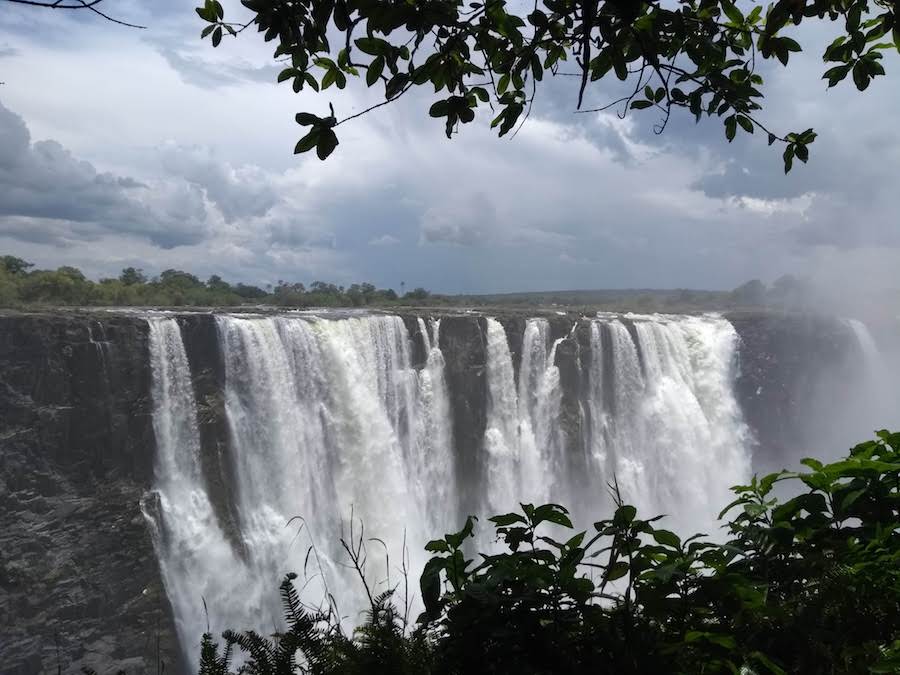
While the most famous landmark is Mosi-o-tunya (the smoke that thunders), most commonly referred to as Victoria Falls , there’s a plethora of pure beauty hidden in pockets spanning the country.
Zambia is about the size of Texas, but traveling between destinations can take much longer due to the road networks and conditions, but that means less construction and more natural landscapes. So even with the logistical challenges, those that choose to venture here will be rewarded with unique scenery and exciting wildlife among little to no tourist crowds.
Although there aren’t any beaches in the landlocked country, Zambia is drowning with rivers, lakes, waterfalls, and even a few natural hot springs.
Perhaps the best part about living in Zambia for the past two years has been getting to know some of the warmest people I’ve truly ever met. People are quick to smile and have taught me so much in terms of hard work, patience, and resilience. I must admit that Zambia is the most difficult place I’ve ever traveled due to the vast distances alone, but it is grossly underrated as a travel destination.
Zambia’s Highlights
Wildlife: Zambia is home to the all of the Big Five, in addition to an abundance of other majestic animals such as wild dogs. Some of the best places for wildlife viewing are South and North Luangwa National Parks , Lower Zambezi National Park , Kasanka National Park (specifically to experience the largest mammal migration in the world!), and Kafue National Park . One may find the safari costs and crowds much smaller than neighboring Tanzania.
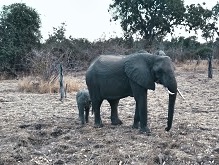
Water: Lake Tanganikya, Lake Bangweulu, and Lake Kariba are some of the large bodies of water suitable for swimming, fishing, boat rides, or just lazing at the beach. The Zambezi River is also a popular spot for water activities.
If you’re itching to chase more than one waterfall, Northern Zambia has got plenty. Kundalila, Chishimba, Kalambo, Kabweluma, and Lumangwe are a few noteworthy waterfalls , but there are plenty more in the watery north. Ngonye Falls is another impressive site with falls spanning 1km in Western Province. Getting to these waterfalls can be tricky as there is little public transport, so hitchhiking, hiring a private taxi, bicycling, or self-driving are the only options. You will be rewarded for these efforts by likely being the only people there to swim in the delightful falls! Most of these places have basic camp sites as well.
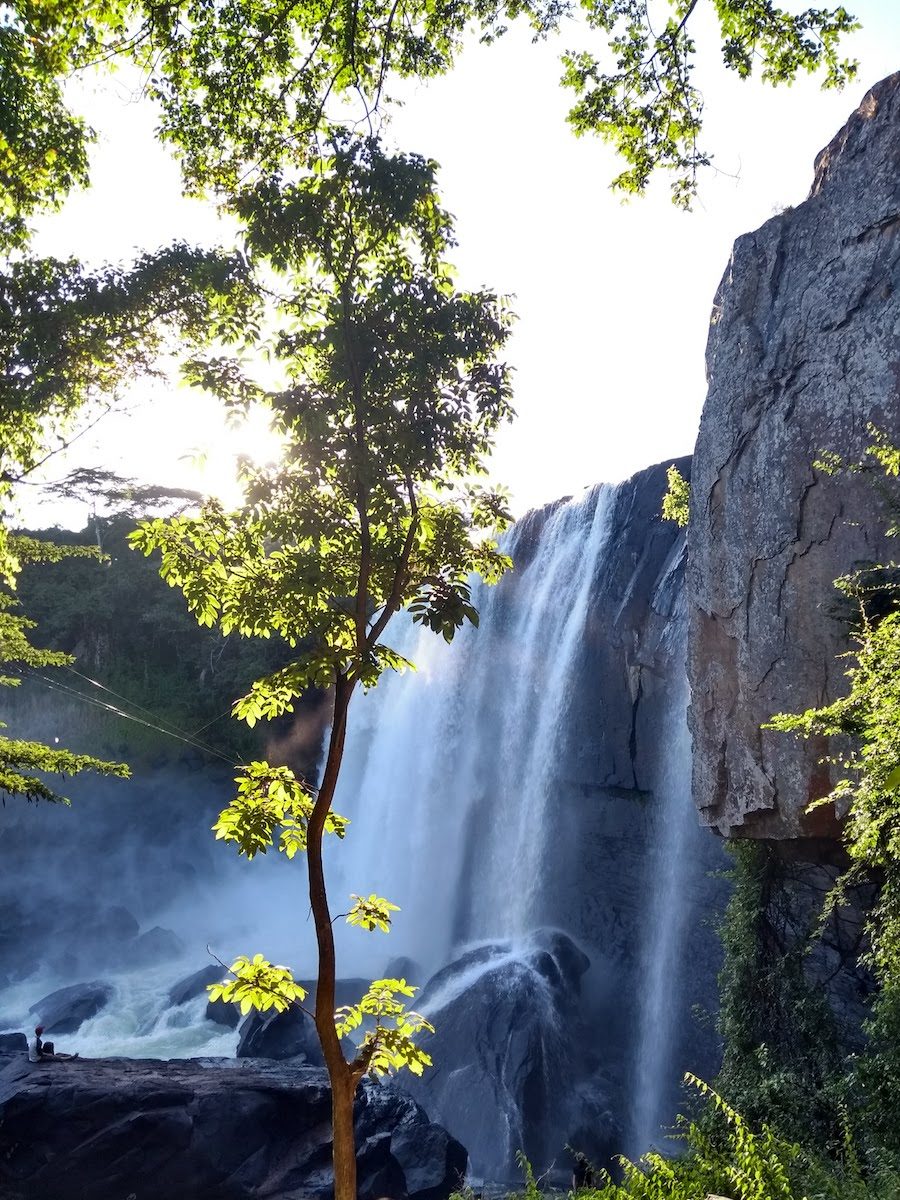
Culture: 73 languages are spoken in Zambia and they all come with their own cultures and traditions. Some tribes have annual festivals such as the Bemba festival (Ukusefya pa Ngwena) and Lozi Kuomboka ceremony. Check out the Zambia Tourism website for details.
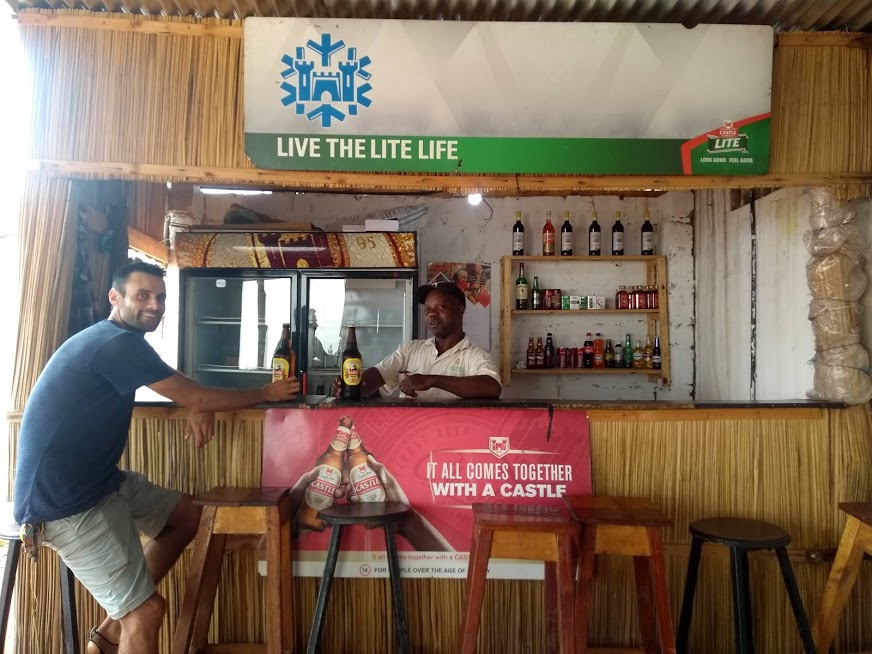
Where to Stay in Zambia
These are some of the best places to stay, recommended by Peace Corps Volunteers, around Zambia:
Where to stay in South Luangwa National Park: Marula Lodge – Affordable accommodations with a friendly staff and discounts for Peace Corps Volunteers!
Where to stay in Lusaka, Zambia: Lusaka Backpackers and Natwanga Backpakers are the most popular places for Peace Corps volunteers.
Where to stay in Livingstone, Zambia: Many of the backpacker places are more or less the same. Cafe Zambezi, Fawlty Towers, Jollyboys Backpackers, and Livingstone Backpackers are the most popular spots.
I recommend Fawlty Towers in Livingstone because they have a nice garden area and pool in the back and offer a free shuttle bus to Victoria Falls.
Where to stay in North Zambia: Lake Chila Lodge is a popular spot for the Mbala volunteers up North. It’s a good stopping point when visiting Lake Tanganikya and Kalombo Falls.
Samfya Marines Beach Lodge is popular amongst volunteers, but may be a bit on the expensive side. It has as private beach.
If you must stop in Nakonde , I recommend Muchinga Exquisite Lodge for a safe and cheap place. I don’t recommend Nakonde at all, but some people stop over en route to Tanzania if traveling by land and not the train.
Practical Zambia Travel Information
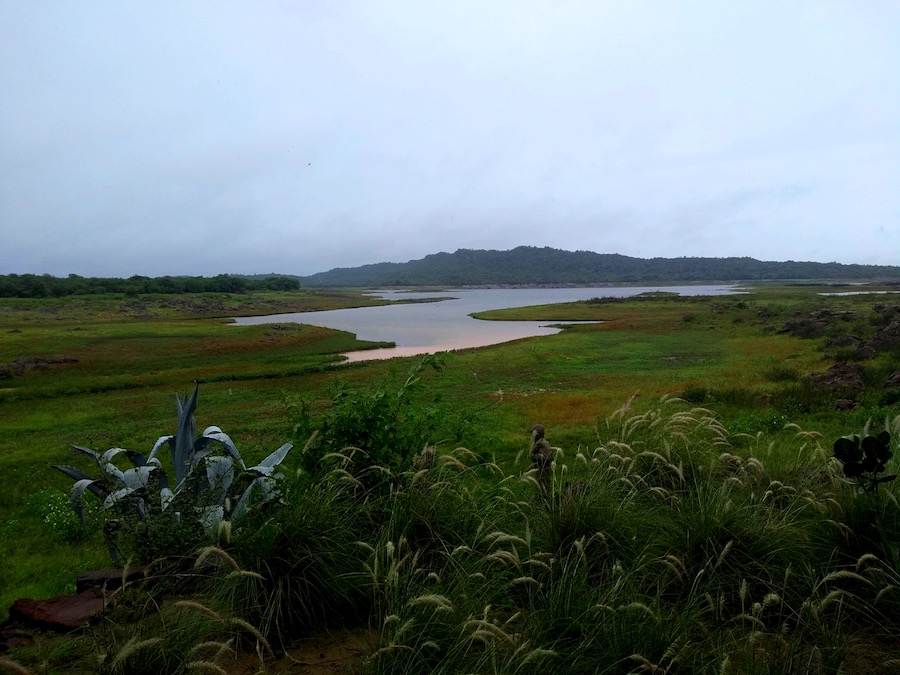
When to visit Zambia
May – July: Cool dry season. You won’t see a drop of rain, but it can get quite chilly at night in Lusaka. August – October: Hot dry season. Fields burn to prepare for planting season to add more to the heat. October is especially brutal, though the dry season is a good time for wildlife viewing. Victoria Falls may not be as powerful toward the end of the dry season. November: First half is dry and then the rains trickle in toward the end of the month, depending on the region (the north is wetter than the south). This is the best time to view the bat migration at Kasanka National Park. December – April: Rainy season. Vibrant green landscapes and mangoes litter the ground, though wildlife is more difficult to spot. Some unpaved roads become impassable during heavy rains.
Costs in Zambia
Like most destinations, budgets can vary wildly. Barebone backpackers can survive on as little as $30 USD per day but the sky is the limit for those seeking luxurious experiences. Most people will find a suitable budget to meet their comfort levels.
Average costs as of March 2020: A bottle of local beer: K10 ($0.66 USD) A filling Zambian meal of nshima (thick maize porridge), fish, and vegetables: K25-50 ($1.60 – $3.20 USD) A western meal: K60-150 ($4 USD – $10 USD) A bed in a dorm room: From K100 ($6.60 USD) A double bed in a very basic lodge: From K150 ($9.95 USD) A comfortable private room in a nicer lodge: From K300 ($19.90 USD) A bus from Livingstone to Lusaka: From K200 ($13.27 USD) but constantly changing due to gas prices
Communication: Cell phones in Zambia
If you have an unlocked phone, it’s easy to get a SIM card for less than a dollar, though you will need to show your passport. From there, you can buy Talk Time to add money for purchasing minutes and data at affordable prices. 4G is available in cities, but the network is spotty otherwise. Airtel and MTN are the two main providers. WiFi isn’t very common.
Getting Around Zambia
Transport will be a large chunk of your budget as well as time spent in the country. But remember that it’s all part of the journey and worth it if you have the time!
Bus: Large “luxury” buses shift people between all major cities with only a few stops, so moderate your fluids intake on long rides! They generally leave on time and it is advisable to purchase tickets at the station the day before. By law, buses are not allowed to operate at night for safety reasons. Gospel music is often played loudly on the bus, so bring some headphones or ear plugs if you are sensitive to loud music.
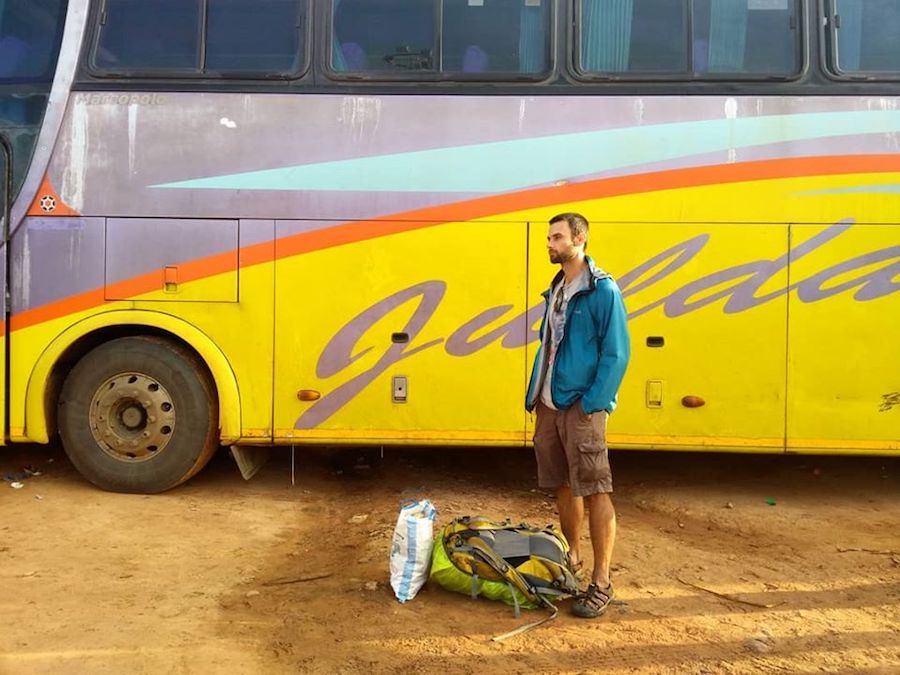
Mini-bus: They only leave when full and make frequent stops along the journey, so this option can be longer and less comfortable than the bus even though the prices are comparable.
Train: There are slow passenger trains from Livingstone to the Copperbelt as well as the TAZARA from Kapiri-mposhi all the way to Dar es Salaam, Tanzania. The trains are notorious for being late, but it is an affordable and safe option for those who have the time and genuinely enjoy train travel.
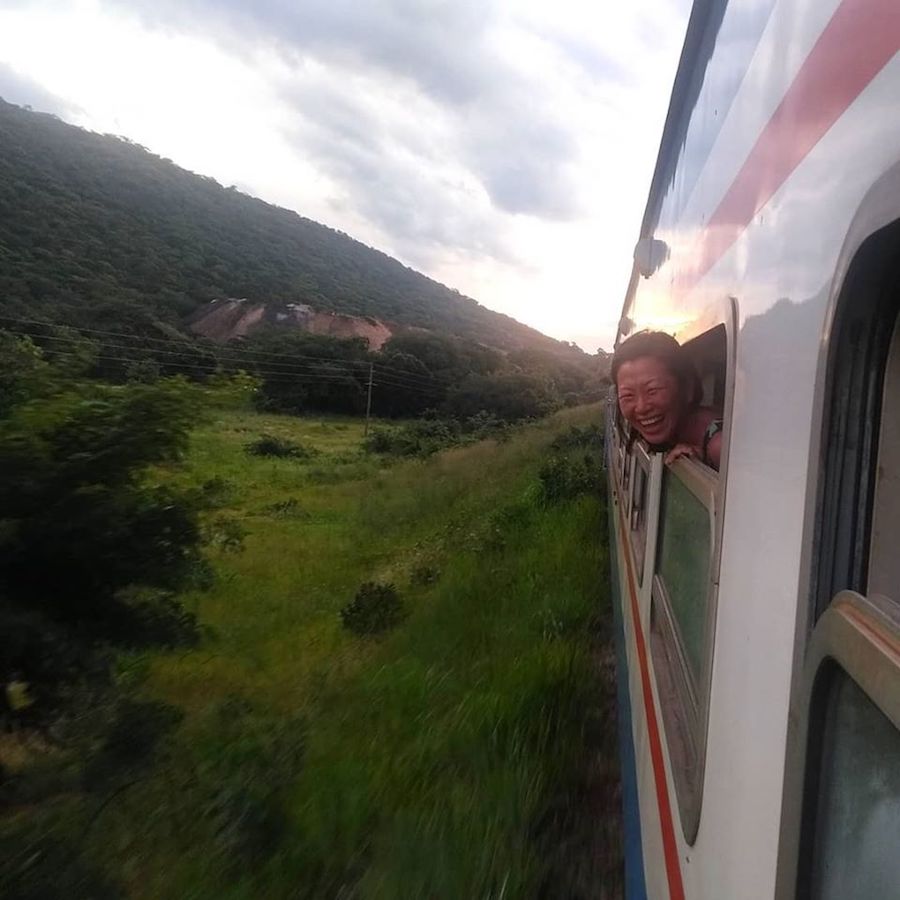
Air: Small planes fly between Lusaka and tourist spots like Livingstone and Mfuwe. It is also possible to charter flights if you’ve got the cash but not the time.
Taxi: Private taxis can be expensive, but cost-effective if split between a group. I recommend using the Ulendo app, which is similar to Uber, when moving within Lusaka.
Self-drive: For freedom and flexibility, rent a car to drive yourself. Some tarmac roads can be laden with potholes and are quite narrow, so it can be intimidating to share the road with semi-trucks. It is not advisable to drive at night. A 4WD is recommended if you plan to veer off the tarmac. Don’t always trust Google maps in terms of travel times – it often will be slower. And remember to drive on the left!
Hitchhiking: I don’t officially recommend hitchhiking, but if you are comfortable doing it and have prior experience, you’ll find it relatively easy and safe hitching in Zambia. Catching lifts is a common form of transportation among locals, especially in areas that lack sufficient public transport. It is standard to pay a fee to the driver, but it is often less than what the bus would cost and significantly more comfortable. Semi-truck drivers are the most likely to give lifts but private vehicles do as well. I’ve met some interesting people while hitchhiking around Zambia. As always, use your best judgment and exercise caution.
Zambia’s Languages
English is one of the official languages and should fare a traveler well in most towns and tourist places in Zambia. However, there are 73 local languages and cultures throughout the country. People generally appreciate it when a foreigner tries to speak the local language, but it can also be insulting to come at somebody using a language that they don’t speak.
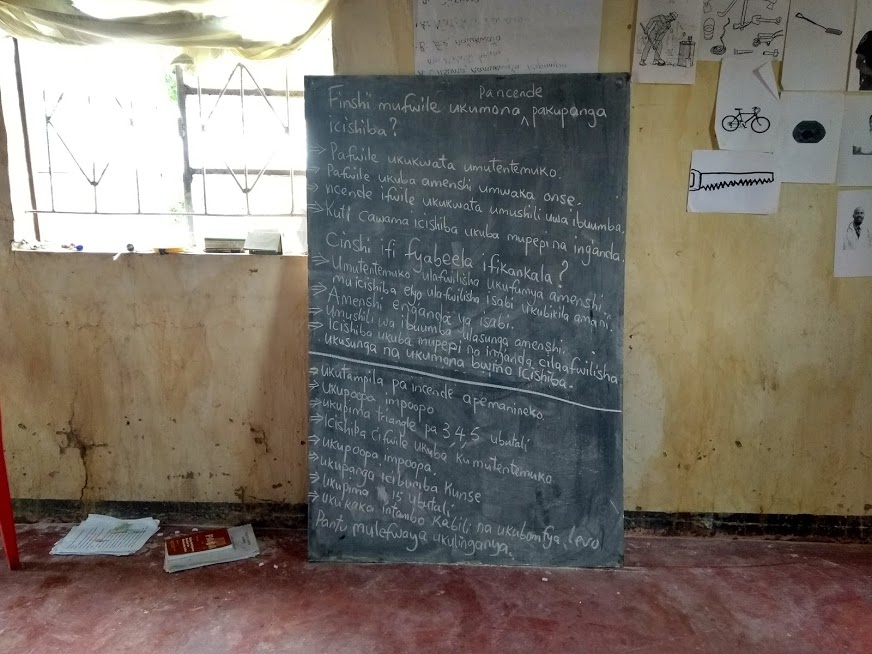
Here’s a general breakdown of the most popular languages in the regions that should be safe to use, but again, there is so much variation even within these provinces.
Lusaka: English, Nyanja. Honestly a little of everything! Southern Province: Tonga Western Province: Lozi Eastern Province: Nyanja Central, Luapula, Muchinga, Northern, and Copperbelt Provinces: Bemba Northwestern Province: Kaonde
Cultural things to know and travel etiquette in Zambia
Cultures vary greatly between tribes, but here are a few general tips that are useful for visitors to know:
– Traditionally, greetings are of utmost importance. When you pass someone in the rural area, acknowledge each other’s presence with a greeting. This isn’t practiced so much in towns, but it’s still important to say hello and how are you before getting right down to business.
– Both men and women should wear long skirts or pants as thighs are sexualized body parts.
– Zambia is a Christian nation, so transport can be trickier on Sundays and some businesses may be closed.
– Eat and shake hands with your right hand only.
– Tipping is not expected but always appreciated.
– If somebody calls you fat, it is a compliment, so try with all of your soul not to feel bad about it. I am a small Asian girl and got called fat on several occasions, though by people I know and not just strangers.
– Be mindful about taking photos of people. First, ask yourself what the purpose of the photo is, if you would take such a photo of a random person in your home country, and what will be done with that photo. Ensure you ask for consent.
Is Zambia safe for travelers?
Zambia is generally peaceful and a very safe place to be. Like anywhere, always exercise caution, especially in towns at nighttime. Try to avoid walking alone at night. Take trusted taxi drivers. Don’t flash around your valuables. You know, basic safety stuff you’d do at home!
It is pretty safe for a woman to travel solo in Zambia, but cat calling and harassment are not uncommon in busy areas. I sometimes feel uncomfortable being squished amongst men in public transport, so opt to sit in the front near the driver if possible. Befriending a woman nearby not only helps alleviate the situation if someone is bothering you, but Zambian women are generally strong and cool to get to know!
Homosexuality is illegal in Zambia unfortunately. LGBT travelers may find it difficult to have to hide their identity. Since I cannot speak to the experiences of LGBT individuals, I asked a friend what his advice would be for queer travelers in Zambia. He advised to avoid public displays of affection (this goes for hetero couples as well). If you want to be extra cautious, disable dating apps. He also mentioned that nose rings may be a signal for homosexuality, so taking it out may be a good idea, particularly if you are male-identifying.
Staying Healthy
I am not a doctor trained to give health advice, but it is a good idea to do your research and perhaps see a travel doctor before coming to the region. Some concerns travelers may encounter are malaria, tuberculosis, Bilharzia, giardia, and traveler’s diarrhea.
Some medications can be found locally and are cheaper here than your home country. Prevention is key! Opt to stay at places that have bed nets, drink clean water, and keep a small medical kit with a thermometer and malaria test kit. Oral rehydration solution packets can also be handy.
*Take 10% off any travel-size bug spray at rangerready.com with code IntentionalTravelers10 >

General Zambia Travel Tips
– Always travel with toilet paper, hand sanitizer, and small change. Sometimes it can be difficult to break 100 kwacha bills.
– Look out for citenge material or traditional fabric. You can get clothes and accessories tailored affordably. Makes for a great souvenir or gift!
– When at produce markets, it is standard to ask for a “top up” if you buy a lot of things. Just say “mbasela?” and the vendor may laugh and throw in an extra banana.
– You must pay for plastic bags at many supermarkets, so that’s another incentive to carry around a reusable bag!
– Download the iOverlander app for information about landmarks and accommodation. It’s helpful even if you are not driving in the region.
– Join the Mzungu group chats to connect with fellow travelers in the region.
– If you haven’t already, educate yourself about the white savior complex and poverty porn and keep these in mind if you are seeking to volunteer or go on “village tours” in the region.
Mwaiseni ku Zambia! Welcome to Zambia.
✈️ Protect your Zambia trip with Travel Insurance – We’ve started using Nomad Insurance by Safety Wing for affordable evacuation, international medical, and trip coverage.
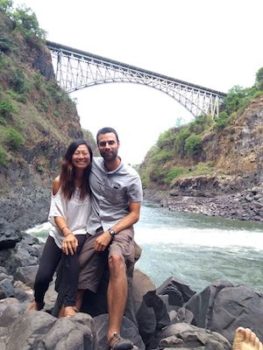
You might also like:
– 6 Places You Must Visit in Malawi – Off the Beaten Path Small Town Digital Nomad Destinations – A Quick Guide to Couchsurfing – 5 Selfish Benefits of Peace Corps
Like this post? Pin it for later or share with friends!
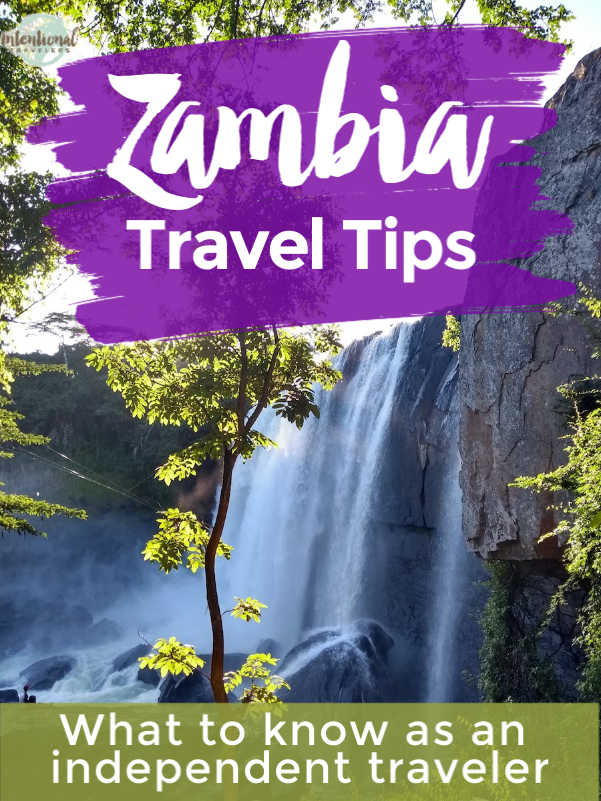
Similar Posts
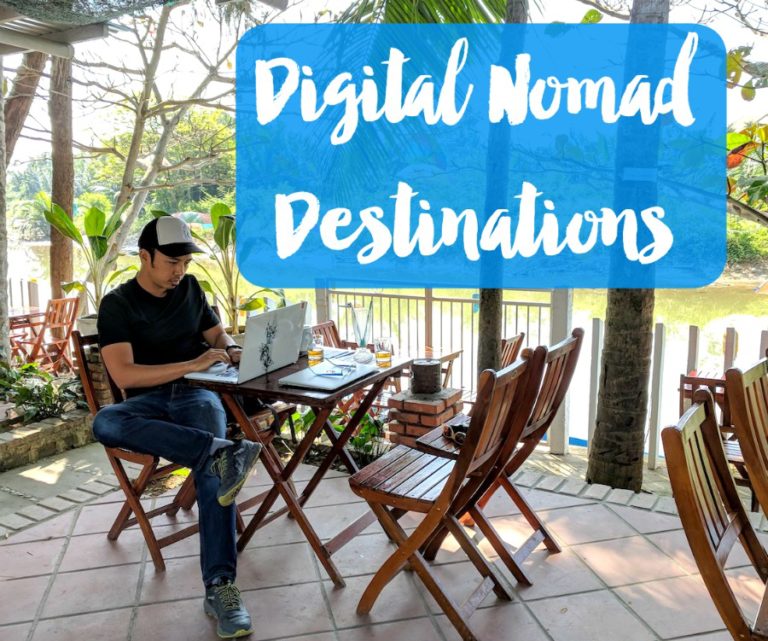
Off-the-beaten-path Small Town Digital Nomad Destinations
If you’re like us, finding the best small town destinations and off-the-beaten-path gems is a big reason why we love working remotely. Since becoming digital nomads in 2014 and trying out various places to live and work abroad, we’ve learned an important lesson: Some of the big “digital nomad hubs” are not really our style….
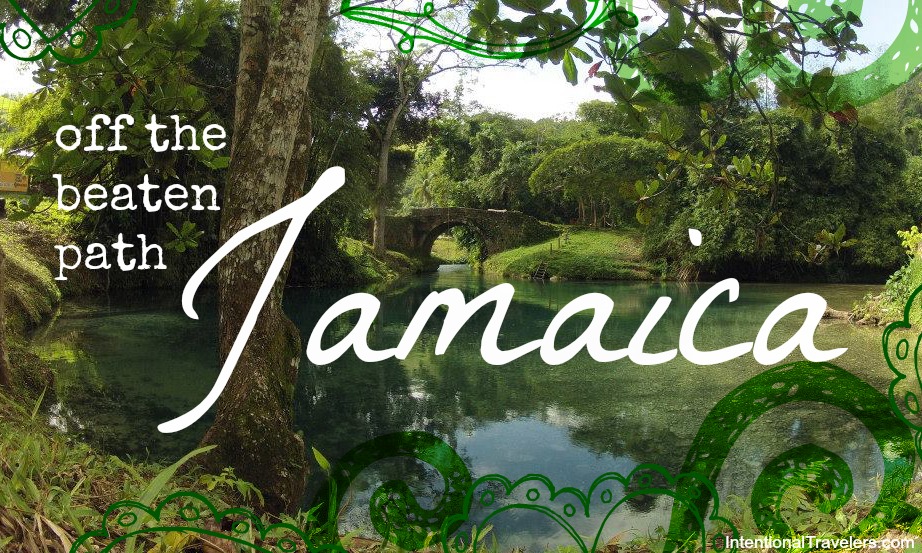
Favorite Places to Visit in Jamaica: Off the Beaten Path
Having lived and served as Peace Corps Volunteers for over two years in Jamaica, we’ve had the opportunity to explore a fair amount of the island. Our experiences ranged from weekend trips on our limited PC budget to the more indulgent vacation days shared with our visiting family and friends. With a strong Volunteer network…
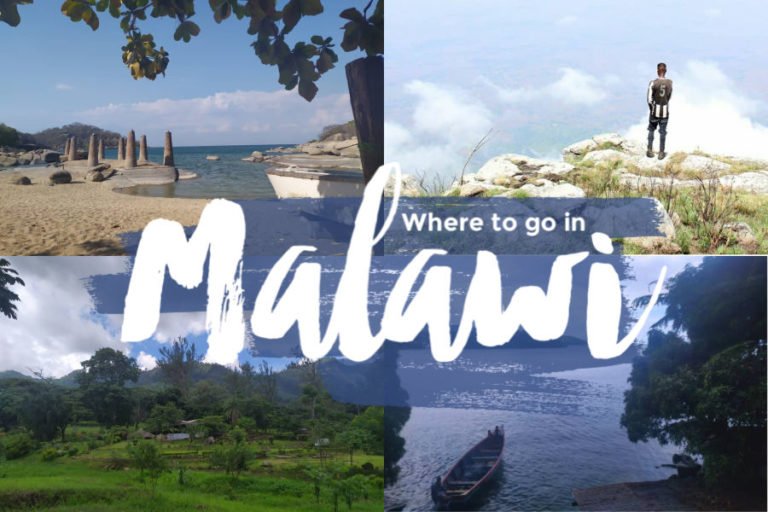
6 Places You Must Visit in Malawi
We are proud members of the U.S. Peace Corps community and love to partner with our fellow Peace Corps Volunteers, who often have some of the best insights into the culture and authentic travel experiences available in their host country. We asked Madisen Hughes, a former Volunteer and current resident in Malawi, to share her…
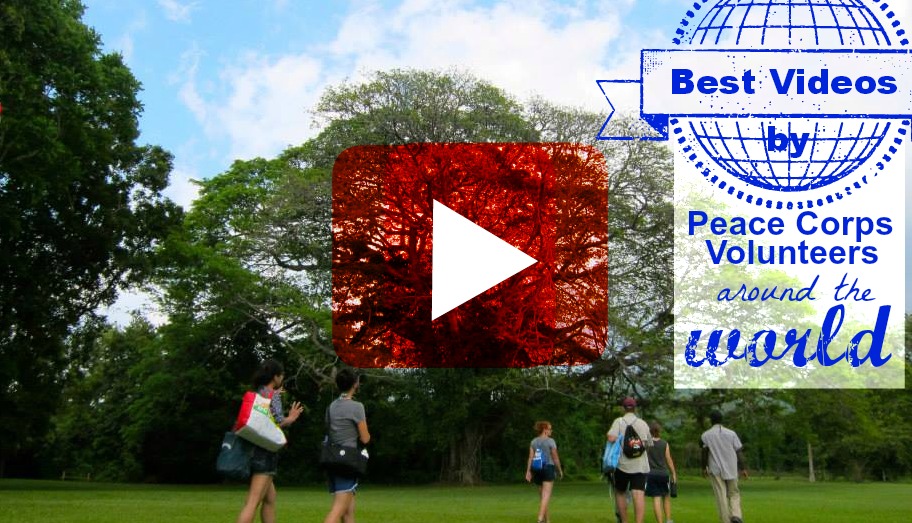
Best Videos by Peace Corps Volunteers Around the World
For decades, dedicated Peace Corps volunteers have ventured to all corners of the globe, bringing their passion, skills, and care to communities in need. Beyond their invaluable on-ground efforts, some volunteers have also captured their experiences in vivid detail, offering us a glimpse into the diverse cultures, challenges, and triumphs they encounter. As Returned Peace…
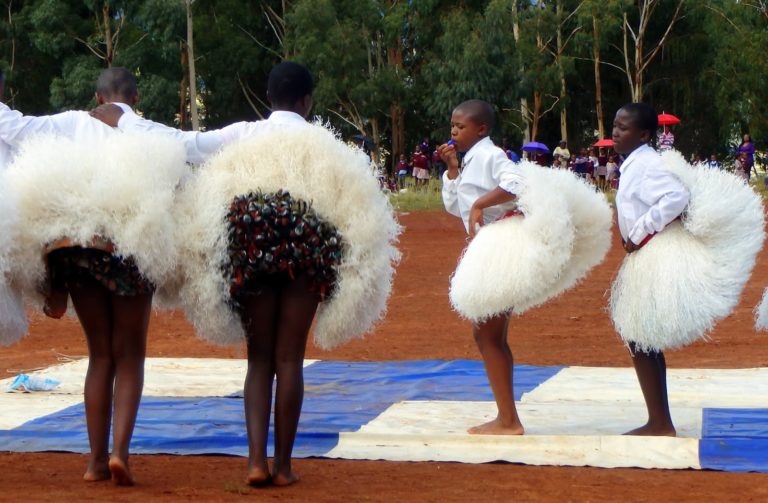
5 Lessons We Can Learn From Basotho Women
When we were Peace Corps Volunteers, our appreciation of cross-cultural exchange really grew. In fact, we’re taking on a new passion project related to better understanding others around the world (more on that soon!). In an effort to promote cross-cultural understanding through our blog, we’re periodically sharing posts from our fellow intentional travelers who have…
Zambia is the least place I would consider as a travel destination. However, your post has enlightened me on fun things to do on my visit
ZAMBIA is situated in Central Africa, your headline states east Africa.
Hi and thanks for visiting our blog and taking the time to write. Can you share more specifically where you are seeing that error in our post? I’m not finding it in the title, headings, or anywhere else in our text.
Leave a Reply Cancel reply
Your email address will not be published. Required fields are marked *
This site uses Akismet to reduce spam. Learn how your comment data is processed .
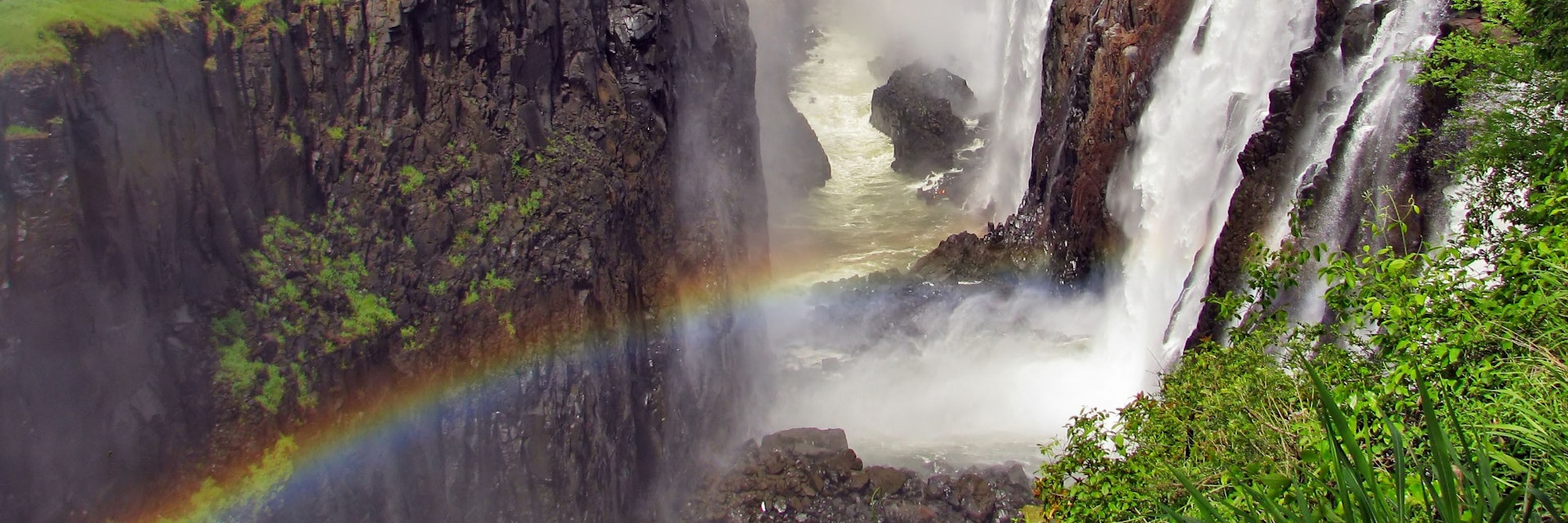
©Przemyslaw Skibinski/Shutterstock
The rewards of travelling in Zambia are those of exploring wilderness as full of an astonishing diversity of wildlife as any part of Southern Africa.
Best Things to Do
Leave the planning to a local expert.
Experience the real Zambia. Let a local expert handle the planning for you.
Attractions
Must-see attractions.
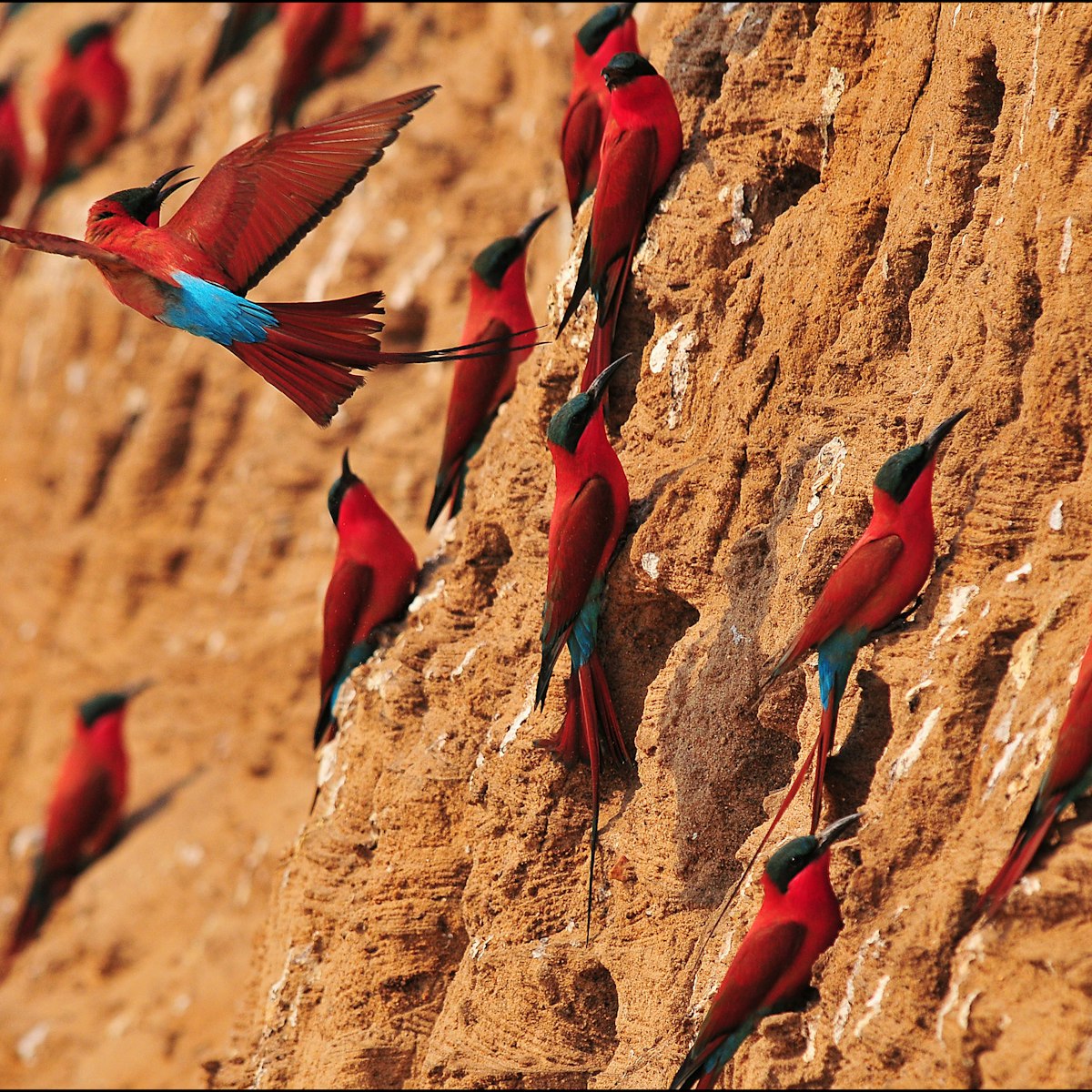
South Luangwa National Park
For scenery, variety and density of animals, South Luangwa is the best park in Zambia and one of the most majestic in Africa. Impalas, pukus, waterbucks,…
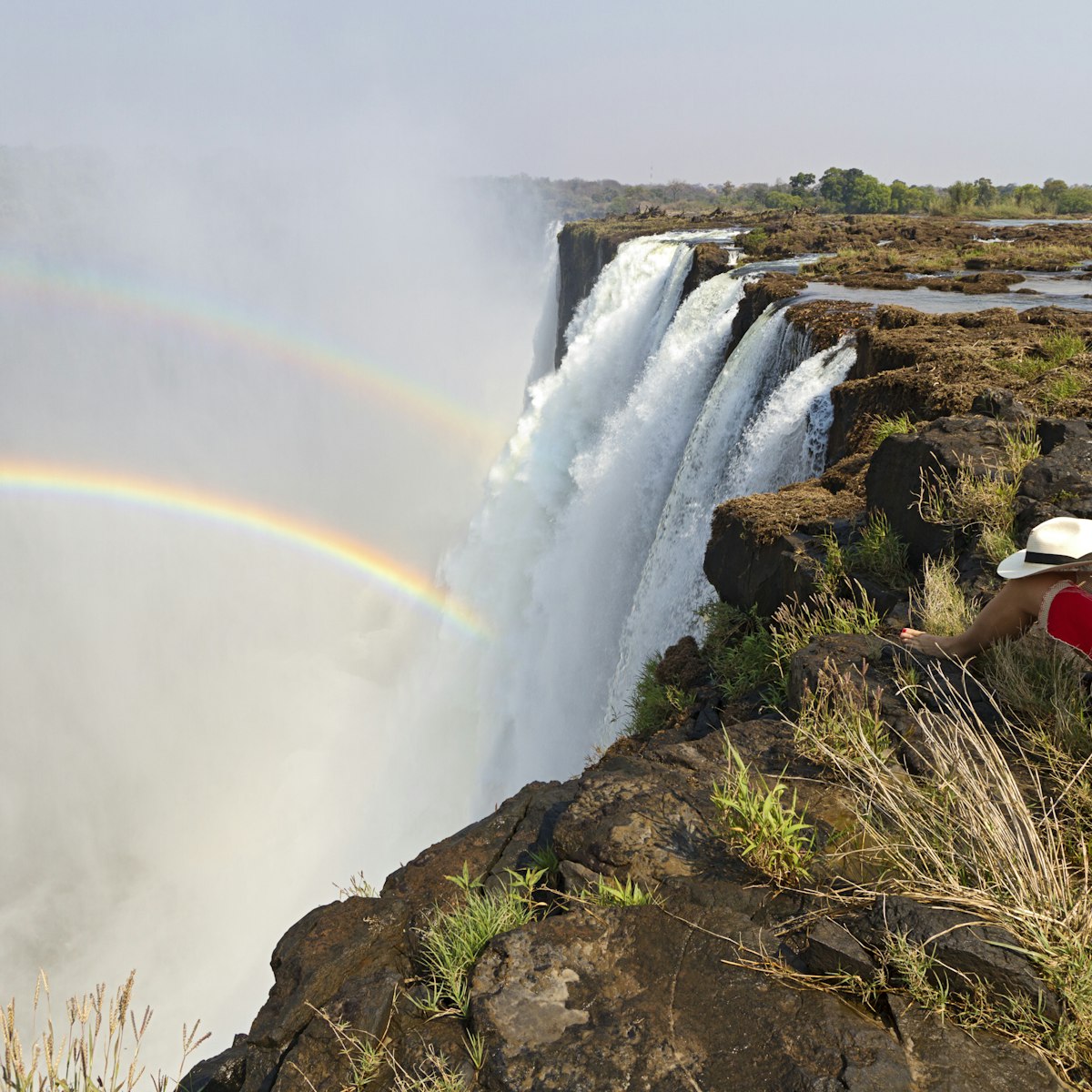
Devil's Pool
Livingstone
One of the most thrilling experiences – not only at the falls but in all of Africa – is the hair-raising journey to Livingstone Island. Here you will…

Victoria Falls World Heritage National Monument Site
This is what you're here for: the mighty Victoria Falls! It's a part of the Mosi-oa-Tunya National Park, located 11km outside town before the Zambia…

Lusaka National Park
The idea of seeing a rhino in the wild just 15km from the capital seems absurd, but this new national park (opened in 2015) allows you to do just that…

Wildlife Discovery Centre
On the southern outskirts of town is this elephant nursery set up by Game Rangers International (a Zambian conservationist NGO), which works with rescuing…
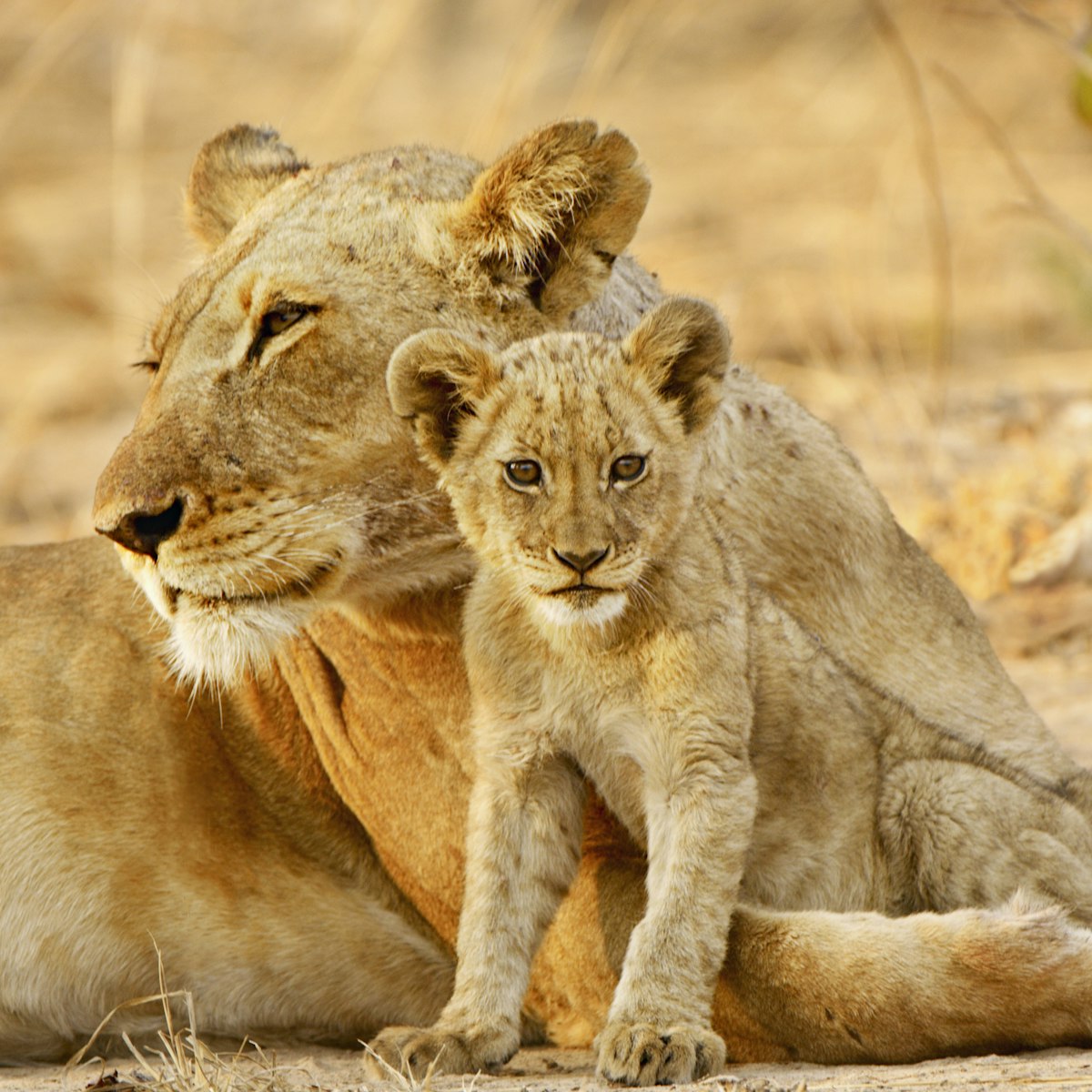
Kafue National Park
Covering more than 22,500 sq km (8687 sq mi), this is the largest park in Zambia and one of the biggest in the world. With terrain ranging from the lush…
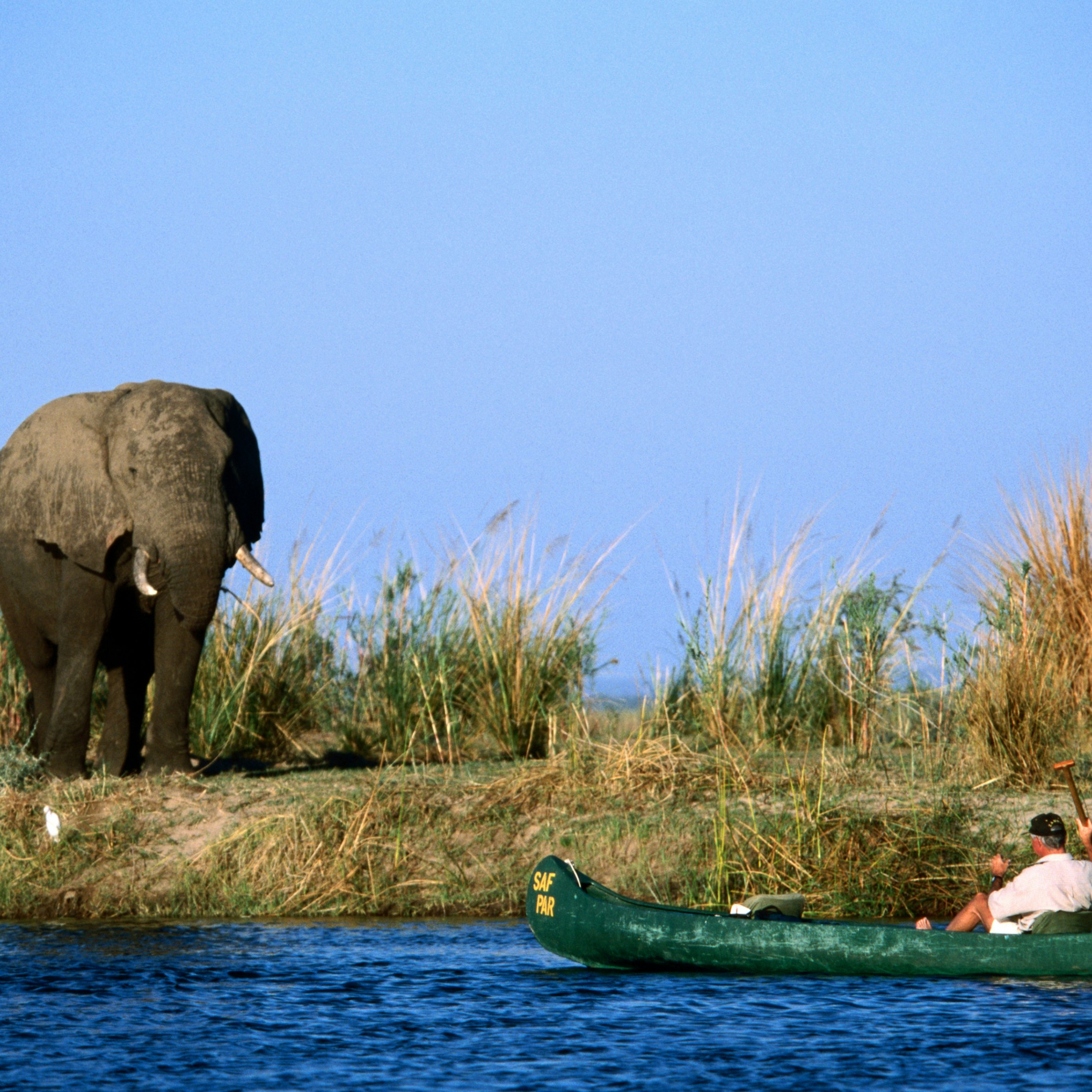
Lower Zambezi National Park
One of the country’s premier wildlife viewing areas, the Lower Zambezi National Park covers a large stretch of wilderness area along the northeastern bank…

Bangweulu Wetlands
The Bangweulu Wetlands is a watery wilderness of lakes, seasonally flooded grasslands, swamp and unspoiled miombo woodland that lies 50km to the north of…
Top picks from our travel experts
Top 8 things to do in zambia beyond going on safari.

Kapishya Hot Springs
Located on the premises of Kapishya Hot Springs Lodge, the setting here makes it a marvellous place to take a soak in its blue-green steaming lagoon of…

Hot Air Ballooning
Only available to guests staying in one of the Wilderness Safari lodges in the northwest section of Kafue National Park are hot-air balloon safaris that…

Ndole Bay Lodge
Set on a pretty beach just outside Nsumbu National Park, this family-owned lodge has several spacious chalets dotted around the grounds, all made from…
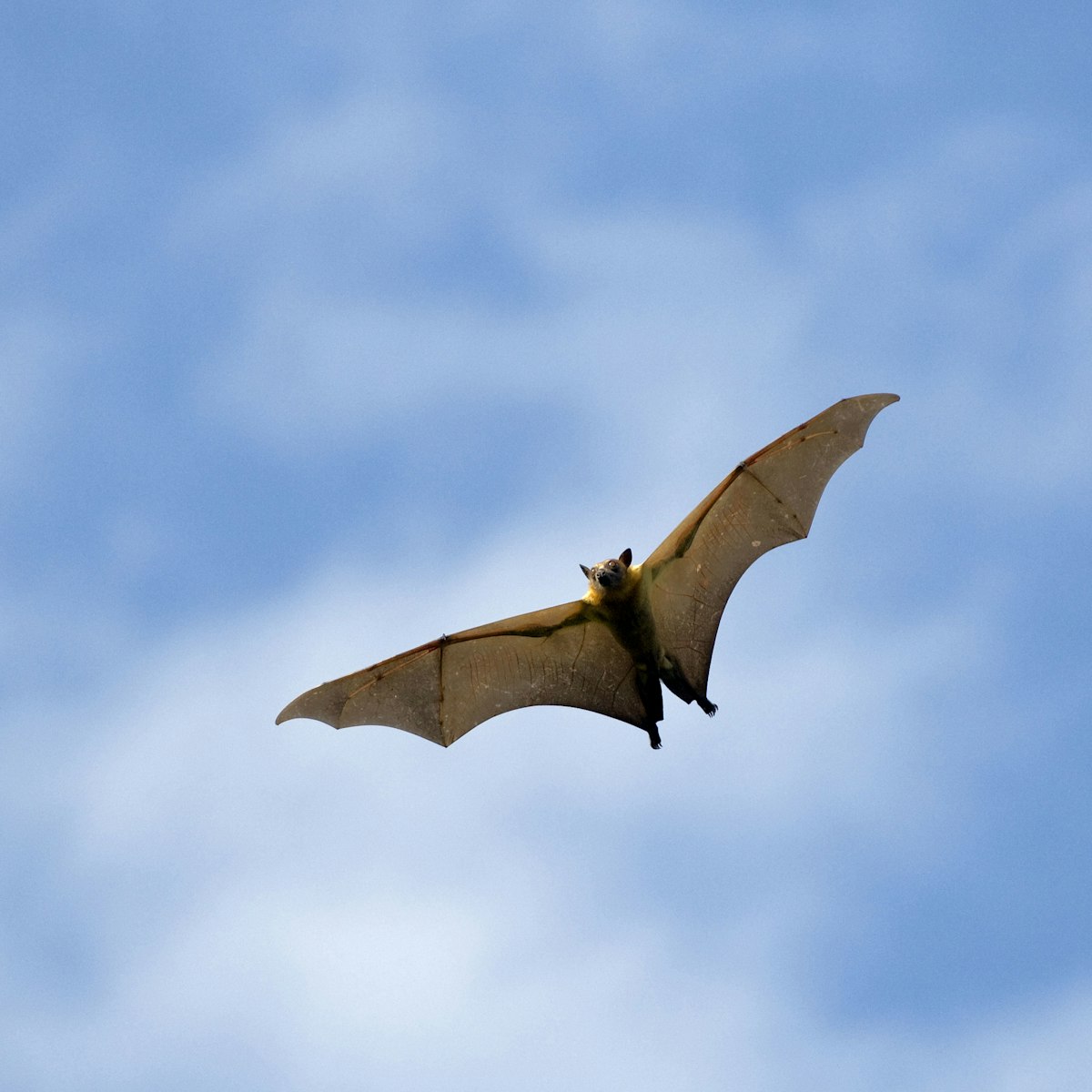
Kasanka National Park
One of Zambia’s least-known wilderness areas, and a real highlight of a visit to this part of the country, Kasanka National Park is most famous for its…

Mosi-oa-Tunya National Park
This park is divided into two sections: the Victoria Falls area and the wildlife sector. The latter is only 3km southwest of Livingstone, and most famous…
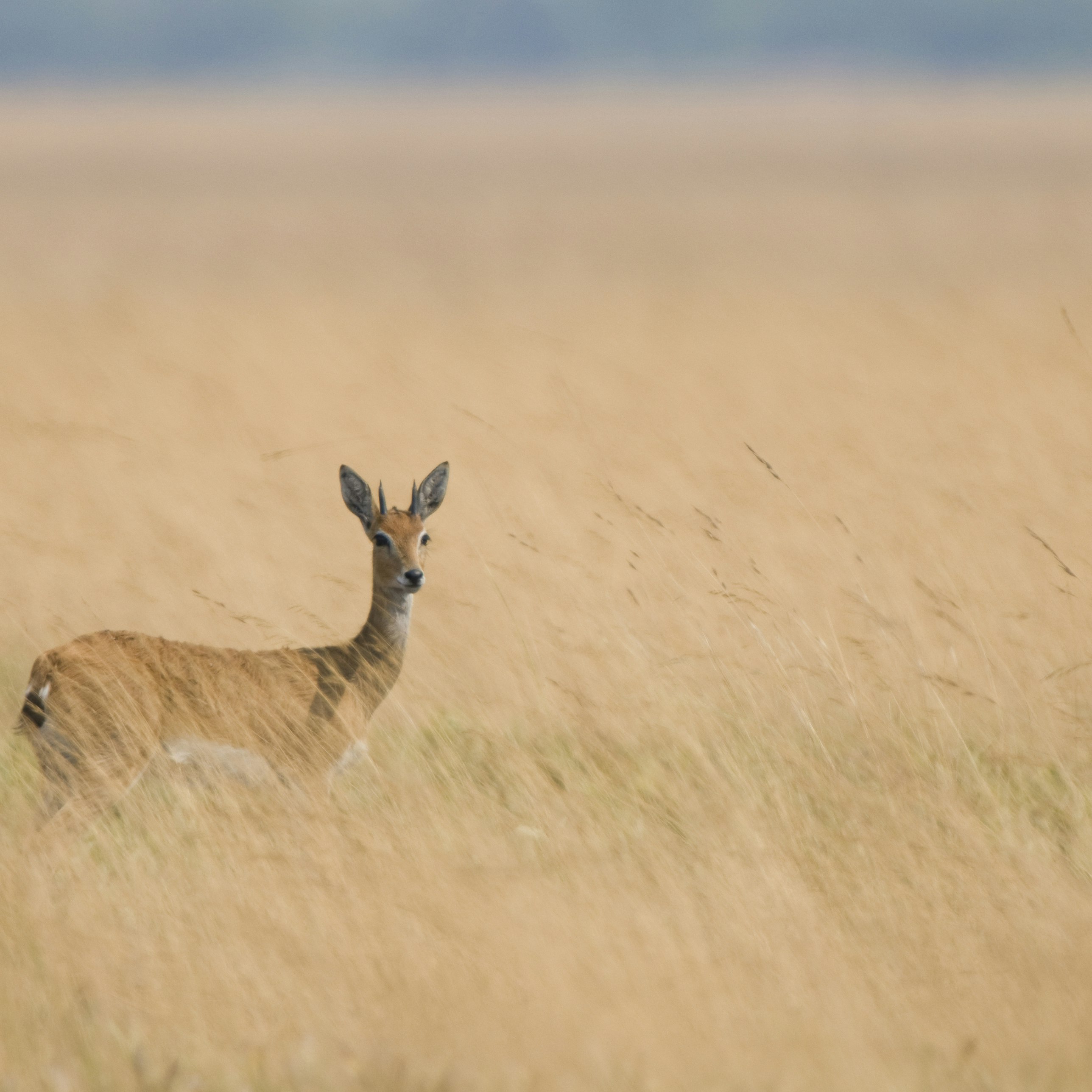
Liuwa Plain National Park
About 100km northwest of Mongu near the Angolan border, Liuwa Plain National Park is 3600 sq km of true wilderness. The remote park is characterised by…

The paintings here are thought to be at least 20,000 years old. Instead of the stick figures and animals usually associated with San paintings there are…
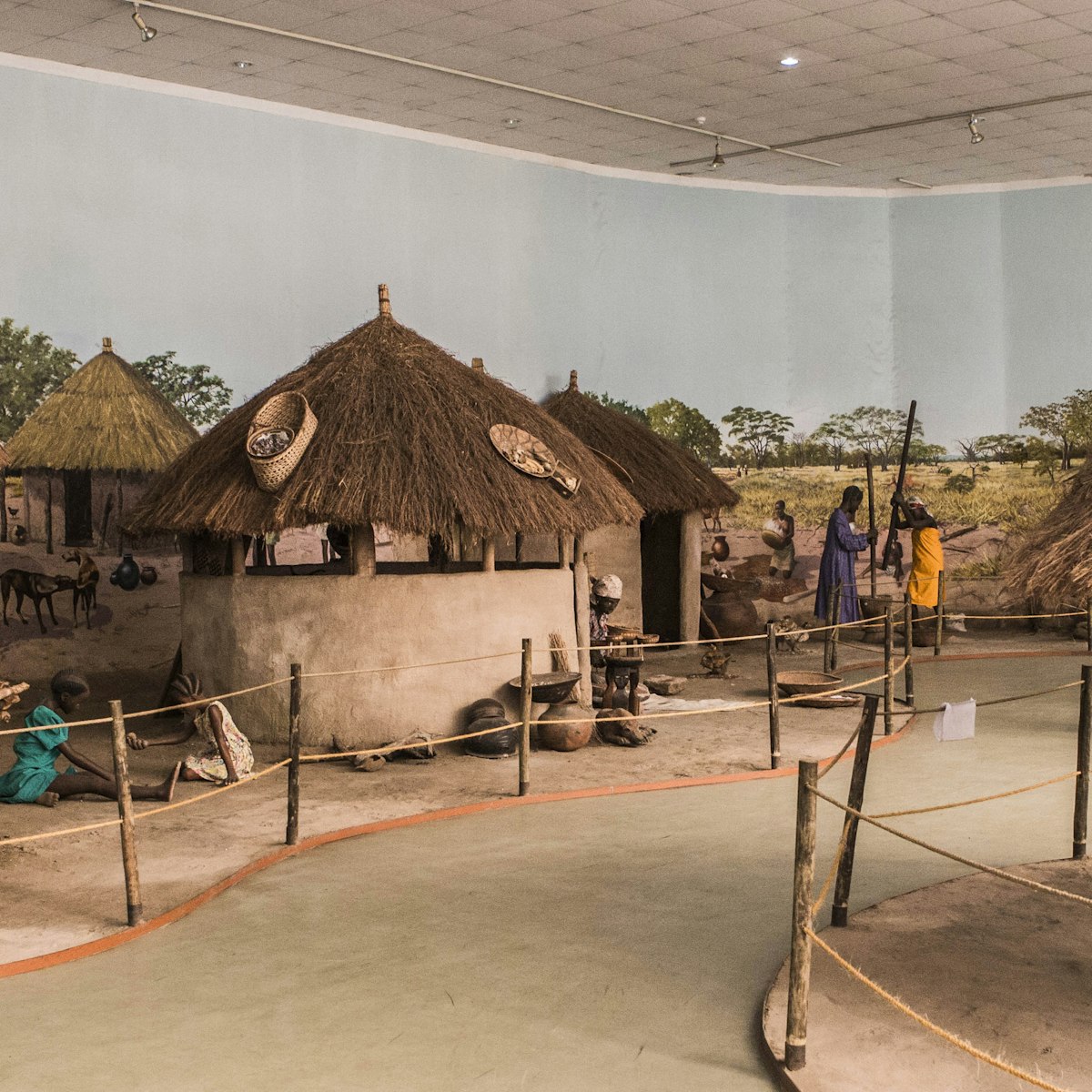
Lusaka National Museum
This big square box of a building resembling a Soviet-era Moscow ministry has upstairs galleries displaying exhibits on urban culture and Zambian history…

Nsumbu National Park
Hugging the southern shores of Lake Tanganyika, little-visited Nsumbu National Park is a beautiful 2020 sq km of hilly grassland and escarpment,…

Shiwa House
The main draw to the area is the surreal sight of Shiwa House, a massive English-style manor materialising seemingly out of nowhere in the middle of rural…
Plan with a local
Experience the real Zambia
Let a local expert craft your dream trip.
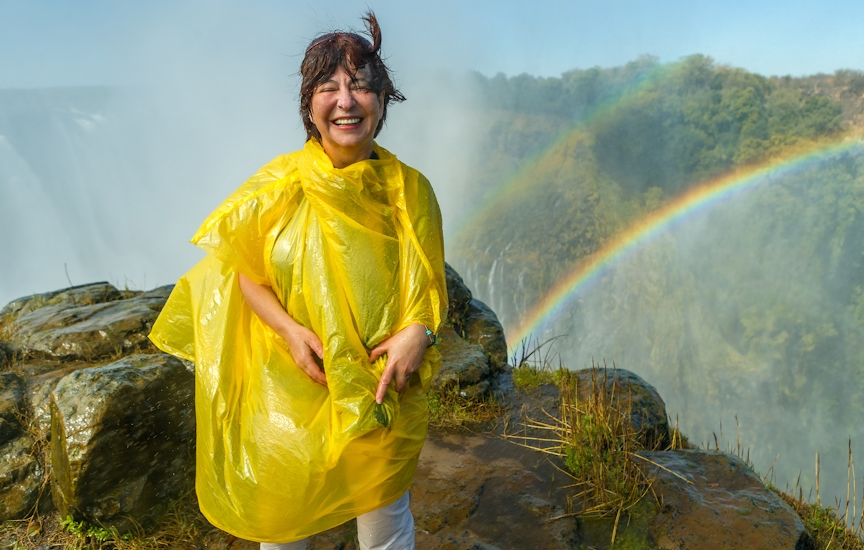
Latest stories from Zambia
Filter by interest:
- All Interests
- Adventure Travel
- Art & Culture
- Beaches, Coasts & Islands
- Food & Drink
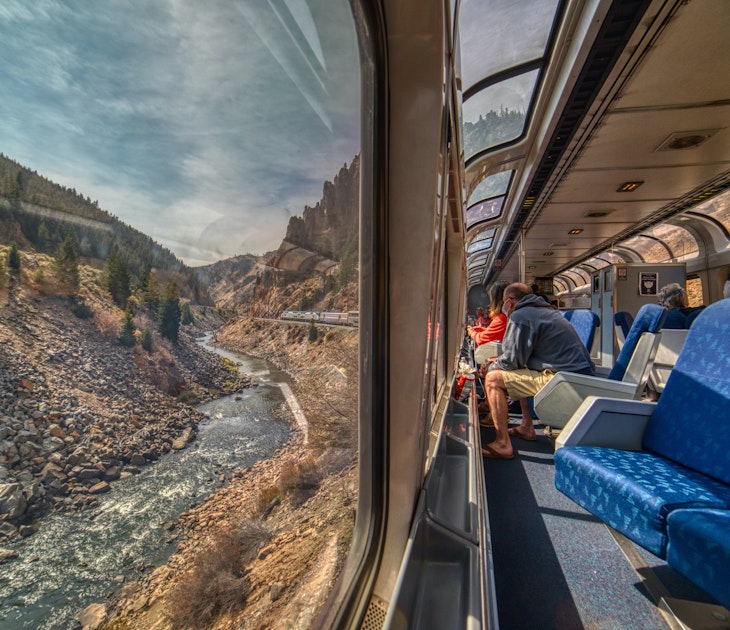
Sustainable Travel
Jan 2, 2024 • 11 min read
From cutting through the countryside to connecting cities, these 24 railway journeys offer entirely new perspectives on a destination.
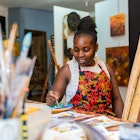
Nov 15, 2022 • 12 min read
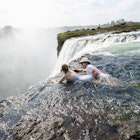
Oct 11, 2022 • 7 min read
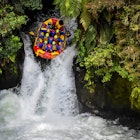
Sep 7, 2022 • 3 min read
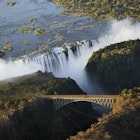
May 20, 2020 • 3 min read
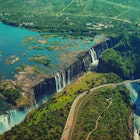
Dec 12, 2019 • 5 min read
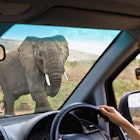
Oct 31, 2019 • 6 min read
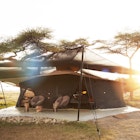
Oct 22, 2019 • 5 min read
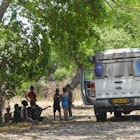
Oct 16, 2019 • 7 min read
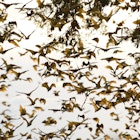
Oct 2, 2019 • 4 min read
in partnership with getyourguide
Book popular activities in Zambia
Purchase our award-winning guidebooks.
Get to the heart of Zambia with one of our in-depth, award-winning guidebooks, covering maps, itineraries, and expert guidance.
Zambia and beyond
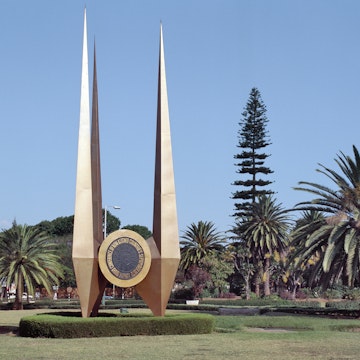

Zambia Travel Guide
Your ultimate zambia travel guide, with tips, ideas on things to do, and best things to see in zambia. great for first-time and returning travelers..
The Smoke that Thunders is a suitable name for this impressive waterfall.
You can hear the roar from afar and feel the power when you are up close. Located in Livingstone, Zambia on the Zambezi River, Victoria Falls is one of the top sites to see in all of Africa.
The world’s largest waterfall by sheer volume, it dwarfs our beloved Niagara Falls in Canada.
Zambia, once known as Northern Rhodesia, is a former British colony and also the adventure capital of Africa!
This Zambia travel guide will help you plan your next vacation.
Popular Guides
- Best of Victoria Falls
- Bucket List Travels
Our Highlight
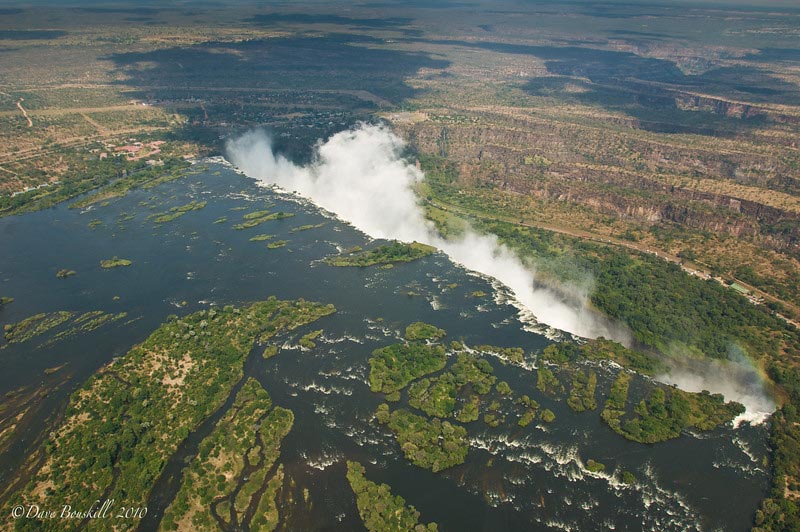
Table of contents
Table of Contents
Fast Facts about Zambia
- Zambia power voltage is 230V 50Hz; Plug C, D & G
- The Zambia currency is the Zambian kwacha and is around 5,000 ZMK to 1 USD
- Single and double entry visas can be obtained at the airport, border crossings or your local Zambian embassy. Multi-entry visas must be obtained in advance from an embassy.
- Beware of Chikungunya, a viral disease transmitted by the bite of infected mosquitoes. This outbreak continues to affect parts, Africa. Symptoms can take up to 12 days to appear but usually begin within 3-7 days after being bitten by an infected mosquito.
- Symptoms generally include fever and joint pain; other symptoms can include fatigue, headache, nausea, vomiting, muscle pain, and rash.
- Travelers spending a lot of time outdoors or visiting game parks have an increased risk of being bitten by a tsetse fly which can cause African Sleeping Sickness. Remember that these flies: bite during the day, are attracted to bright, dark colors and can bite through lightweight clothing.
- Camouflage or military clothing is not permitted so don’t pack it
- The water is not potable ; drink only bottled water.
- SIM Cards can be bought in major cities. Airtel, MTN and Vodafone are the carriers and prices are very reasonable.
Things to See and Do in Zambia
- We spent 3 days at the falls in Livingstone and we filled it with not stop thrills from start to finish. Dream Trip: Destination Victoria Falls
- Go on a walking safari to South Luangwa, which is one of the best places in Africa to spot big game on foot
- Go Whitewater rafting on the Zambezi River
- Sit at Devil’s Pool on the top of Victoria Falls
- Take a microlight flight or helicopter tour over Victoria Falls
Accommodation
Budget: You can find a variety of hostels and budget hotels for 185-550 ZMW per night. Enjoy hot showers, dorms or private rooms, shared kitchens, and nearby restaurants and shopping areas. Staff can sometimes help you out with finding good deals on local safaris or for general travel advice.
Mid-Range: For mid-range hotels, expect to pay around 660-1,800 ZMW per night. Amenities include rooms with flat-screen TVs and tea/coffee facilities, an outdoor pool with a lounge area, free breakfast, and a hotel restaurant and bar.
High-End: For five-star hotels, you will pay around 2,000-3,300 ZMW per night. These hotels come with private suites with terraces and living rooms, spa services, an outdoor pool with a poolside bar, a fitness center, multiple hotel restaurants, a polished bar, and room service.
Staples of Zambian cuisine include nshima (pounded white maize), vegetables, stews, fish, insects (especially caterpillars), and beer. Nshima is one of the most common items at any meal and is sometimes a meal itself with vegetables and meat or fish added to it. If you are near a market and want a treat, look for vitumbuwa (fried dough balls). Plan to spend around 160 ZMW per day on food.
The Best Ways to Get Around Zambia
Getting to zambia:.
Flights: The main airport to fly into is the Kenneth Kaunda International Airport, located 16 miles from the capital of Lusaka. Other airports include the Harry Mwanga Nkumbula International Airport in Livingstone, though it mainly takes African and British flights. You can check for the best flights to Zambia on Skyscanner .
Transportation:
Buses: Public buses are a cheap way to get around towns, though rides may be bumpy. Fares will cost about 40 ZMW. You can also look for private buses that go between major destinations (such as Lusaka to Livingstone for 120 ZMW) and are generally smoother rides. It is best to book at least one day in advance.
Taxis: Taxis are not metered, so make sure to check around to see what a fair price is. Licensed taxis will have the word “taxi” on the top of the vehicle with two stripes.
Car Rental: You might be able to find some cars, but driving is not as recommended if you do not know the roads. Many rental companies will not lend you a car if you do not have a chauffeur with you. It is best if you have transportation already provided for you, such as with a safari company. If you insist on a car, it can cost 4,750 ZMW per day.
Uber: There is no Uber, but there is Ulendo, a taxi app which operates similarly to Uber.
When to go To Zambia
The best time to go to Zambia is between the months of June and November. During this time, it is the dry season, temperatures are in the 80s to low 90s, and you have the best chance of seeing the most wildlife.
However, if you are an avid birdwatcher, March will give you great opportunities to see the most birds, though know that it is still the wet season.
Where to Stay in Zambia
Taj Pamodzi, Lusaka: Just a short trip to the Lusaka National Museum and the Kabwata Cultural Village, this is a great four-star hotel in Lusaka. Choose from a variety of rooms (standard rooms with flat-screen TVs and balconies to suites to whirlpool tubs and dining areas), and enjoy the numerous hotel amenities, including free breakfast, a squash court, a gym, an outdoor pool and hot tub, a hotel restaurant with a café and bar, a steam room, and a sauna.
Victoria Falls Waterfront : Stay just 5.5 miles from Victoria Falls at this hotel. Set on the Zambezi River, see the river from your hotel room while enjoying two outdoor pools, a riverside hotel and restaurant, a sauna, spa services, a fitness center, and a shuttle to Victoria Falls Airport.
Zikomo Safari Camp : If you’re heading to South Luangwa National Park, stay at this all-inclusive camp. Across the river from the National Park, stay in a chalet with a bathroom, electric fan, mosquito net, and a private deck. Activities include safari walks and tours of the South Luangwa National Park, as well as tours to the local village and nearby island.
Check out our favorite booking platforms Booking.com , Tripadvisor and VRBO for the best deals on accommodation.
What to Pack for Zambia
Zambia has a tropical climate modified by altitude (elevation).
It has a dry season from May to the end of October and a wet season from November to April.
During the wet season, some areas become inaccessible and many camps in Kafue, Lower Zambezi, and more remote parks are closed.
The dry season is divided into the cool dry season (May to August) and the hot dry season (September and October).
- Waterproof bag – the bag has two functions, protecting your stuff from the rain and also from the dust, especially if you’re traveling to drier regions.
- Footwear – especially important if going you are heading on a safari! Pack a pair of lightweight, durable, waterproof and comfortable shoes and also a pair of flip-flops or sandals that you can change into after a long day of sightseeing.
- Protection from the elements – pack sunscreen, sunglasses, a hat, a loose sarong or wrap to cover yourself from the sun and bug-spray to prevent getting bitten by a mosquito (that might have malaria!)
- Layers – pack the basic tropical clothes and make sure to include long pants, long-sleeve tops and some warm clothes for those chilly nights.
- Avoid packing dark colored clothes – tsetse flies are drawn to dark colors, like blue and black clothing, and their bite can give you African Sleeping Sickness. Stick to light, neutral colors but avoid packing white clothes as they will get dirty and dusty pretty quickly.
- Pack for Humidity – for humid weather it is best to pack fabrics that breathe as much as possible and natural fabrics, like cotton, linen or rayon (avoiding silk, wool and polyester). Clothing should be loose and comfortable to encourage the flow of air and allow moisture to evaporate
See our packing tips: packing list for smart travel.
See our packing tips: packing list for smart travel & How to Pack for a Safari
Zambia Travel Guide: Best Booking Resources
Whenever we travel to we make sure to start with these companies. We have tried a lot of different ones over the years and all of these have consistently proven to be the best when it comes to offering great prices.
We have used every one of these personally and continue to do so.
- Booking.com : This is our go site to when comparing prices for accommodation. It usually has the cheapest prices, especially in Europe and we love their interface. Not to mention you get free cancellation and you are guaranteed the best price.
- Trip Advisor : What we like about Trip Advisor is that we can look at all the reviews and then book our accommodation. TripAdvisor is where we go when we want to compare prices with multiple accommodation providers.
- VRBO : is the main search engine we use when we are looking for a home or apartment rental. It can sometimes be cheaper than hotels and it is the best way to stay in areas that offer a more local feel.
- Hostelworld : With one of the largest databases of hostels in the world, Hostelworld is the go-to site when you are looking for budget accommodation.
- Skyscanner : This is the first place we check for flights. It consistently comes back with the cheapest and best options. It allows us to compare a lot of airlines to get the best price.
- Rome 2 Rio : If you want to see how to get somewhere by plane, train, bus, ferry or car Rome2Rio lays it all out for you as well as related costs.I love how they show it all to you on a Google Map and it works offline.
- Get Your Guide: For all your day trip and city guide needs, we use Get Your Guide. It has the world’s largest collection of things to do with more than 30,000 activities in 7500 destinations.
- World Nomads Insurance: When traveling to Italy you should always have travel insurance. We have found the best bang for your buck is by far World Nomads.
Zambia Travel Guide: Related Articles
To browse all our articles and guides about Zambia click here.
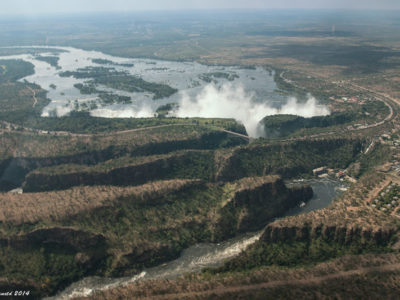
Incredible Things to Do in Victoria Falls, Zambia
Situation in Haiti April 5, 2024
U.s. citizens in haiti, update january 10, 2024, information for u.s. citizens in the middle east.
- Travel Advisories |
- Contact Us |
- MyTravelGov |

Find U.S. Embassies & Consulates
Travel.state.gov, congressional liaison, special issuance agency, u.s. passports, international travel, intercountry adoption, international parental child abduction, records and authentications, popular links, travel advisories, mytravelgov, stay connected, legal resources, legal information, info for u.s. law enforcement, replace or certify documents.
Before You Go
Learn About Your Destination
While Abroad
Emergencies
Share this page:
Travel Advisory July 31, 2023
Zambia - level 1: exercise normal precautions.
Reissued with obsolete COVID-19 page links removed.
Exercise normal precautions in Zambia.
Read the country information page for additional information about travel to Zambia.
If you decide to travel to Zambia:
- Enroll in the Smart Traveler Enrollment Program ( STEP ) to receive Alerts and make it easier to locate you in an emergency.
- Follow the Department of State on Facebook and Twitter .
- Follow the U.S. Embassy in Zambia on Facebook and Twitter .
- Review the Country Security Report for Zambia.
- Prepare a contingency plan for emergency situations. Review the Traveler’s Checklist .
- Visit the CDC page for the latest Travel Health Information related to your travel.
Embassy Messages
View Alerts and Messages Archive
Quick Facts
3 blank pages per entry for Zambia
Yellow fever, if entering from a yellow fever endemic country
Embassies and Consulates
U.s. embassy lusaka.
Subdivision694/Stand 100 Kabulonga District Ibex Hill Road Lusaka, Zambia Telephone: +(260) 211-357-000 Emergency After-Hours Telephone: +(260) 211-357-000 or +(260) 966-877-805 or +(260) 761-107-000 Fax: (+260) (0) 211-357-224 Email: [email protected]
Destination Description
Learn about the U.S. relationship to countries around the world.
Entry, Exit and Visa Requirements
A passport is required to enter Zambia. Passports must be valid for at least six months upon arrival and have at least three blank pages upon each entry. Travelers transiting other countries on the way to Zambia, particularly South Africa , should refer to their Country Information pages for additional blank page requirements. U.S. Passport holders do not require a visa to visit Zambia.
You must carry the original or a certified copy of your passport and immigration permit at all times. Certified copies must be obtained from the office that issued the permit. If your passport is lost or stolen, visit the Zambian Department of Immigration to obtain a replacement entry permit before attempting to depart the country.
Departure Tax/Security Charge: U.S. citizens must pay an airport departure tax in local currency. This tax is included in the cost of international flight tickets. For domestic flights, passengers pay a nominal charge in Zambian kwacha prior to entering the departure hall, only for chartered flights.
The U.S. Department of State is unaware of any HIV/AIDS entry restrictions for visitors to or foreign residents of Zambia.
Find information on dual nationality , prevention of international child abduction and customs regulations on our websites.
Safety and Security
Zambia has few major security concerns. Visitors can avoid criminal activity by utilizing common sense measures provided below.
Political activity, especially during national and local elections, can lead to civil unrest and low-level violence. Spontaneous demonstrations occasionally occur and are often exacerbated by police action. Even demonstrations intended to be peaceful can quickly turn confrontational and escalate into violence. To stay safe, you should:
- avoid large crowds, demonstrations, and political gatherings
- follow media coverage of local events
- be aware of your surroundings at all times
- exercise caution when traveling throughout the country
- avoid walking alone in the downtown areas, high-density residential compounds, public parks, and poorly lit areas—especially at night.
Crime: The most commonly reported crimes committed against Westerners in Lusaka are non-violent confrontations characterized as crimes of opportunity (theft of unattended possessions in public places or hotel rooms, confidence scams). Pickpockets operate in crowded markets and on public transportation, and visitors have reported snatch attacks of bags and smartphones on busy city streets as well as smash-and-grabs of valuables from vehicles idling in slow traffic and from parked cars. Other crimes, including thefts, violent attacks, including home invasions/robberies, and sexual assaults have occurred on many occasions. Victims are, on occasion, followed from banks, nightclubs, and ATMs and robbed at gunpoint, on the street, or upon arrival at their residence. Walking alone is not advisable in the downtown areas, high-density residential neighborhoods referred to locally as a “compound”, public parks, and other poorly illuminated areas, especially at night.
Be aware of:
- Pick-pockets operating in crowded markets and on public transportation;
- Snatch attacks of bags and smart phones on busy city streets;
- “Smash and grab” of valuables from vehicles idled in traffic and from parked cars;
- Thefts, violent attacks, home invasions/robberies; and
- Recent incidents involving sexual assaults.
Demonstrations occur frequently. They may take place in response to political or economic issues, on politically significant holidays, and during international events.
- Even demonstrations intended to be peaceful can turn confrontational and possibly become violent.
- Avoid areas around protests and demonstrations.
- Check local media for updates and traffic advisories.
International Financial Scams: See the Department of State Department of State and the FBI pages for information.
Internet romance and financial scams are prevalent in Zambia. Scams are often initiated through Internet postings/profiles or by unsolicited emails and letters. Scammers almost always pose as U.S. citizens who have no one else to turn to for help. Common scams include:
- Romance/Online dating
- Money transfers
- Contracts with promises of large commissions
- Work permits/job offers
Border Areas: Travelers should not drive off-road or in remote areas near the borders with the Democratic Republic of the Congo (DRC) and Angola because of the danger of undetected land mines and unexploded ordnance. If you must travel to these areas, you should drive in convoys and carry satellite telephones. Parts of the DRC border area can be plagued with unrest and/or armed criminal elements. See the Country Information pages for the DRC and Angola for additional information.
Victims of Crime:
U.S. citizen victims of sexual assault are encouraged to contact the U.S. Embassy for assistance. Report crime to the local police at 991 or 112 and contact the U.S. Embassy at + (260) 011-357-000 or + (260) 966-050-123.
Remember that local authorities are responsible for investigating and prosecuting crime.
See our webpage on help for U.S. victims of crime overseas .
- Help you find appropriate medical care
- Assist you in reporting a crime to the police
- Contact relatives or friends with your written consent
- Provide general information regarding the victim’s role during the local investigation and following its conclusion
- Provide a list of local attorneys
- Provide our information on victim’s compensation programs in the U.S .
- Provide an emergency loan for repatriation to the United States and/or limited medical support in cases of destitution
- Help you find accommodation and arrange flights home
- Replace a stolen or lost passport
Domestic Violence: U.S. citizen victims of domestic violence may contact the Embassy for assistance.
The legal age of marriage in Zambia is 16 for boys and girls with parental consent and 21 without consent. The law also prohibits Female genital mutilation or cutting (FGM/C) for women and girls and criminalizes rape and other sexual offenses, and courts have discretion to sentence convicted rapists to life imprisonment with hard labor. The law however does not include provisions for spousal rape. The penal code criminalizes domestic violence between spouses and among family members living in the same home. It also provides for prosecution of most crimes of gender-based violence, and penalties for conviction range from a fine to 25 years imprisonment, depending on the severity of injury and whether a weapon was used.
Tourism : The tourism industry is unevenly regulated, and safety inspections for equipment and facilities do not commonly occur. Hazardous areas/activities are not always identified with appropriate signage, and staff may not be trained or certified either by the host government or by recognized authorities in the field. In the event of an injury, appropriate medical treatment is typically available only in/near major cities and there are no trauma facilities in the country. First responders are generally unable to access areas outside of major cities and to provide urgent medical treatment. U.S. citizens are advised to purchase medical evacuation insurance .
Local Laws & Special Circumstances
Criminal Penalties: You are subject to local laws. If you violate local laws, even unknowingly, you may be expelled, arrested, or imprisoned. Individuals establishing a business or practicing a profession that requires additional permits or licensing should seek information from the competent local authorities, prior to practicing or operating a business.
Furthermore, some laws are also prosecutable in the United States, regardless of local law. For examples, see our website on crimes against minors abroad and the U.S. Department of Justice website.
Arrest Notification: If you are arrested or detained, ask police or prison officials to notify the U.S. Embassy immediately. See our webpage for further information.
Counterfeit and Pirated Goods: Although counterfeit and pirated goods are prevalent in many countries, they may still be illegal according to local laws. You may also pay fines or have to give them up if you bring them back to the United States. See the U.S. Department of Justice website for more information.
Drugs : Possession of small quantities of an illegal substance can constitute drug trafficking in Zambia. A list of controlled substances in Zambia is included in the Local Resources section of the U.S. Embassy Lusaka's webpage . When visiting Zambia, you should consider carrying any prescribed medications in their original bottles with a doctor’s prescription.
Wild Animal Products: It is illegal to purchase tortoise shells, rhino horns, elephant ivory, or any items made out of these materials. Other wildlife products, such as hippo teeth, crocodile teeth or skins, flat skins, horns, or animal bones, should only be purchased from animal product vendors licensed with Zambia’s Department of National Parks and Wildlife, which provide certification of purchase. Failure to produce a valid and legitimate certificate for these prescribed trophies can result in a five-year minimum prison sentence. Travelers must present the items and certification of purchase in person to Department of National Parks and Wildlife officials within 45 days of departure to obtain an export permit. Permits for items derived from CITES regulated species, such as hippo or crocodile, may take a number of days to obtain, may include additional fees, and may require an import permit from a destination country. Wildlife products with no export permit will be confiscated upon departure and the Government of Zambia will prosecute offenders to the fullest extent of the law with penalties ranging from large fines to minimum five-year prison sentences. It is illegal to export game meat in any form: dried, processed, or raw.
Faith-Based Travelers: See our following webpages for details:
- Faith-Based Travel Information
- International Religious Freedom Report – see country reports
- Human Rights Report – see country reports
- Hajj Fact Sheet for Travelers
- Best Practices for Volunteering Abroad
LGBTQI+ Travelers: Zambian law criminalizes consensual same-sex sexual activity and penalties for conviction of engaging in “acts against the order of nature” are 15 years to life imprisonment. The lesser charge of “gross indecency” carries penalties of up to 14 years imprisonment.
LGBTQI+ persons in particular are at risk of societal violence due to prevailing prejudices, misperceptions of the law, lack of legal protections, and inability to access health services.
See our LGBT QI+ Travel Information page and section 6 of our Human Rights report for further details.
Travelers with Disabilities: The law in Zambia prohibits discrimination against persons with physical, sensory, intellectual, or mental disabilities, but the law is not effectively enforced. The Zambia Agency for Persons with Disabilities was created to promote awareness relating to the prevention of disabilities and the care of persons with disabilities; to cooperate with other government ministries in providing preventive, educational, training, employment, and rehabilitation services for persons with disabilities. Cultural attitudes toward disability vary, but in general social acceptance of persons with disabilities in public is not as prevalent as in the United States. Despite some improvements in largely urban areas, physical accessibility to services remains a pervasive problem across most of Zambia. The most common types of accessibility may include accessible facilities, information, and communication/access to services/ease of movement or access. Expect accessibility to be limited in public transportation, lodging, communication/information, and general infrastructure. Contact the US Embassy in Zambia to receive a list of providers.
Students: See our Students Abroad page and FBI travel tips.
Women Travelers: See our travel tips for Women Travelers .
Private medical clinics in major cities provide reasonable care, but major medical emergencies usually require medical evacuation to South Africa, Europe, or the United States. The nearest air ambulances are based in South Africa. Government hospitals and clinics are often understaffed and lack supplies. Basic medical care outside of major cities is extremely limited. Doctors and hospitals expect immediate cash payment for health services.
For emergency services in Zambia, dial 999 for General Emergency, 991 for Police and 993 for Fire.
Ambulance services are:
- not widely available and training and availability of emergency responders may be below U.S. standards.
- not equipped with state-of-the-art medical equipment.
- not staffed with trained paramedics and often have little or no medical equipment.
- Injured or seriously ill travelers may prefer to take a taxi or private vehicle to the nearest major hospital rather than wait for an ambulance.
We do not pay medical bills. Be aware that U.S. Medicare does not apply overseas.
Medical Insurance: Make sure your health insurance plan provides coverage overseas. Most care providers overseas only accept cash payments. See our webpage for more information on insurance overseas. Visit the U.S. Centers for Disease Control and Prevention for more information on type of insurance you should consider before you travel overseas.
We strongly recommend supplemental insurance to cover medical evacuation.
Always carry your prescription medication in original packaging, along with your doctor’s prescription. Check the Dangerous Drugs Act , or consult the Zambia Medicines Regulatory Authority to ensure the medication is legal in Zambia.
The following diseases are prevalent:
- African trypanosomiasis
- Hepatitis A
- Hepatitis B
- African Tick-Bite Fever
- Chikungunya
- Tuberculosis
- Rift River Valley
- Ross River Virus Disease
- Leptospirosis
- Schistomsomiasis
Use the U.S. Centers for Disease Control and Prevention recommended mosquito repellents and sleep under insecticide-impregnated mosquito nets. Chemoprophylaxis is recommended for all travelers even for short stays.
HIV/AIDS : Zambia has a very high burden of HIV. Travelers are generally at low risk for getting HIV but certain practices such as having unprotected sex or sharing needles with people who are or might be infected with HIV can significantly increase the risk of HIV transmission. For more information on what you can do before and during travel to prevent HIV infection please visit the U.S. Centers for Disease Control and Prevention website.
There are shortages of medicine and medical supplies throughout Zambia.
Visit the U.S. Centers for Disease Control and Prevention website for more information about Resources for Travelers regarding specific issues in Zambia.
Vaccinations: Be up-to-date on all vaccinations recommended by the U.S. Centers for Disease Control and Prevention.
Further health information:
- World Health Organization
- U.S. Centers for Disease Control and Prevention (CDC)
Air Quality: Visit AirNow Department of State for information on air quality at U.S. Embassies and Consulates.
The U.S. Embassy maintains a list of doctors and hospitals here under "local resources." We do not endorse or recommend any specific medical provider or clinic.
Health facilities in general
- Public medical clinics lack basic resources and supplies.
- Private hospitals usually require advance payment or proof of adequate insurance before admitting a patient.
- Patients bear all costs for transfer to or between hospitals.
Pharmaceuticals
- Exercise caution when purchasing medication overseas. Pharmaceuticals, both over the counter and requiring prescription in the United States, are often readily available for purchase with little controls. Counterfeit medication is common and may prove to be ineffective, the wrong strength, or contain dangerous ingredients. Medication should be purchased in consultation with a medical professional and from reputable establishments.
- U.S. Customs and Border Protection and the Food and Drug Administration are responsible for rules governing the transport of medication back to the United States. Medication purchased abroad must meet their requirements to be legally brought back into the United States. Medication should be for personal use and must be approved for usage in the United States. Please visit the U.S. Customs and Border Protection and the Food and Drug Administration websites for more information.
Assisted Reproductive Technology and Surrogacy
- If you are considering traveling to Zambia to have a child through use of assisted reproductive technology (ART) or surrogacy, please see our ART and Surrogacy Abroad page .
Water Quality
- In many areas, tap water is not potable. Bottled water and beverages are generally safe, although you should be aware that many restaurants and hotels serve tap water unless bottled water is specifically requested. Be aware that ice for drinks may be made using tap water.
Adventure Travel
- Visit the U.S. Centers for Disease Control and Prevention website for more information about Adventure Travel .
Travel and Transportation
Road Conditions and Safety: Vehicle travel is extremely hazardous under normal conditions but particularly at night and in inclement weather.
When traveling in Zambia, please be aware:
- Secondary roads are not well maintained; use major roads whenever possible.
- Most roads do not have shoulders or sidewalks and are poorly lit.
- Pedestrians and livestock use the roadways.
- Passing another vehicle is dangerous given the general condition of roads.
- Lookout for tree branches or other debris which local drivers often place behind their cars to indicate a breakdown or trouble.
- Cars with non-functioning headlights and taillights are a common hazard.
- Night driving is discouraged.
- There are no emergency services for stranded or injured drivers.
- Auto accident victims are vulnerable to theft by those pretending to be helpful.
Traffic Laws:
- Vehicles drive on the left side of the road.
- Vehicles in traffic circles travel clockwise.
- It is illegal to turn left on a red light.
- Splashing a pedestrian as you drive through water is a traffic violation.
- You should come to a stop and pull to the side of the road if you hear sirens indicating an emergency vehicle or official motorcade.
- Use of seat belts is mandatory, as are helmets for motorcyclists.
- A child's seat is not mandatory by law but is recommended.
- It is illegal to use a cell phone while driving and the minimum fine if caught is equivalent to $60.
- The speed limit in Lusaka is 30 mph/50 km and 60 mph/100 km outside of city limits, unless otherwise indicated.
- If you are stopped by police and asked to pay a fine, you should obtain an official receipt or be directed to the nearest police station where you can make payment.
- Drivers under the influence of alcohol who are involved in accidents are tested at Lusaka's University Teaching Hospital (UTH) and then taken to court.
Public Transportation: City traffic is comprised mostly of cars and privately operated minibuses; motorcycles are rare. Some relatively nice buses travel between Lusaka and Livingstone and the Copperbelt. Minibuses serve as the primary means of intra-city travel in Zambia but are often overcrowded, poorly maintained, and seldom punctual.
See our Road Safety page for more information.
Aviation Safety Oversight: As there is no direct commercial air service to the United States by carriers registered in Zambia, the U.S. Federal Aviation Administration (FAA) has not assessed the Government of the Republic of Zambia’s Civil Aviation Authority for compliance with International Civil Aviation Organization (ICAO) aviation safety standards. Further information may be found on the FAA’s safety assessment page.
Please see Fact Sheet for this country/area.
For additional travel information
- Enroll in the Smart Traveler Enrollment Program (STEP) to receive security messages and make it easier to locate you in an emergency.
- Call us in Washington, D.C. at 1-888-407-4747 (toll-free in the United States and Canada) or 1-202-501-4444 (from all other countries) from 8:00 a.m. to 8:00 p.m., Eastern Standard Time, Monday through Friday (except U.S. federal holidays).
- See the State Department’s travel website for the Worldwide Caution and Travel Advisories .
- Follow us on Twitter and Facebook .
- See traveling safely abroad for useful travel tips.
Review information about International Parental Child Abduction in Zambia . For additional IPCA-related information, please see the International Child Abduction Prevention and Return Act (ICAPRA) report.
- Follow us on Twitter and Facebook .
Review information about International Parental Child Abduction in Zambia . For additional IPCA-related information, please see the International Child Abduction Prevention and Return Act ( ICAPRA ) report.
Travel Advisory Levels
Assistance for u.s. citizens, learn about your destination, enroll in step.

Subscribe to get up-to-date safety and security information and help us reach you in an emergency abroad.
Recommended Web Browsers: Microsoft Edge or Google Chrome.
Make two copies of all of your travel documents in case of emergency, and leave one with a trusted friend or relative.
Afghanistan
Antigua and Barbuda
Bonaire, Sint Eustatius, and Saba
Bosnia and Herzegovina
British Virgin Islands
Burkina Faso
Burma (Myanmar)
Cayman Islands
Central African Republic
Cote d Ivoire
Curaçao
Czech Republic
Democratic Republic of the Congo
Dominican Republic
El Salvador
Equatorial Guinea
Eswatini (Swaziland)
Falkland Islands
France (includes Monaco)
French Guiana
French Polynesia
French West Indies
Guadeloupe, Martinique, Saint Martin, and Saint Barthélemy (French West Indies)
Guinea-Bissau
Isle of Man
Israel, The West Bank and Gaza
Liechtenstein
Marshall Islands
Netherlands
New Caledonia
New Zealand
North Korea (Democratic People's Republic of Korea)
Papua New Guinea
Philippines
Republic of North Macedonia
Republic of the Congo
Saint Kitts and Nevis
Saint Lucia
Saint Vincent and the Grenadines
Sao Tome and Principe
Saudi Arabia
Sierra Leone
Sint Maarten
Solomon Islands
South Africa
South Korea
South Sudan
Switzerland
The Bahamas
Timor-Leste
Trinidad and Tobago
Turkmenistan
Turks and Caicos Islands
United Arab Emirates
United Kingdom
Vatican City (Holy See)
External Link
You are about to leave travel.state.gov for an external website that is not maintained by the U.S. Department of State.
Links to external websites are provided as a convenience and should not be construed as an endorsement by the U.S. Department of State of the views or products contained therein. If you wish to remain on travel.state.gov, click the "cancel" message.
You are about to visit:
Travel Vaccines and Advice for Zambia

Located in Southern Africa, Zambia is a gorgeous country that provides travelers with a glimpse at beautiful wilderness and wildlife.
Though the country is landlocked, there are three rivers flowing through Zambia. One of the most popular landmarks is Victoria Falls, which is one of the World’s Seven Natural Wonders and a UNESCO World Heritage Site. There are also safaris for travelers to visit, without the large crowds that often come with safaris in Kenya or South Africa.
In the cities, there are also bustling markets, delicious restaurants, and a lively nightlife.
Do I Need Vaccines for Zambia?
Yes, some vaccines are recommended or required for Zambia. The CDC and WHO recommend the following vaccinations for Zambia: hepatitis A , hepatitis B , typhoid , yellow fever , rabies , meningitis , polio , measles, mumps and rubella (MMR) , Tdap (tetanus, diphtheria and pertussis) , chickenpox , shingles , pneumonia and influenza .
COVID-19 vaccination is recommended for travel to all regions, both foreign and domestic. Check with your local Passport Health clinic if immunization is offered in your area.
See the bullets below to learn more about some of these key immunizations:
- COVID-19 – Airborne & Direct Contact – Recommended for all unvaccinated individuals who qualify for vaccination
- Hepatitis A – Food & Water – Recommended for most travelers
- Hepatitis B – Blood & Body Fluids – Recommended for travelers to most regions.
- Typhoid – Food & Water – Recommended for travelers to most regions.
- Yellow Fever – Mosquito – Required if traveling from a region with yellow fever. Recommended for all travelers over 9 months of age, except traveling to the North West and Western Provinces.
- Rabies – Saliva of Infected Animals – Moderate risk country. Vaccine recommended for certain travelers based on destination, activities and length of stay.
- Measles Mumps Rubella (MMR) – Various Vectors – Given to anyone unvaccinated and/or born after 1957. One time adult booster recommended.
- TDAP (Tetanus, Diphtheria & Pertussis) – Wounds & Airborne – Only one adult booster of pertussis required.
- Chickenpox – Direct Contact & Airborne – Given to those unvaccinated that did not have chickenpox.
- Shingles – Direct Contact – Vaccine can still be given if you have had shingles.
- Pneumonia – Airborne – Two vaccines given separately. All 65+ or immunocompromised should receive both.
- Influenza – Airborne – Vaccine components change annually.
- Meningitis – Airborne & Direct Contact – Given to anyone unvaccinated or at an increased risk, especially students.
- Polio – Food & Water – Considered a routine vaccination for most travel itineraries. Single adult booster recommended.
See the tables below for more information:
Malaria is a serious threat in Zambia. Antimalarial medication is recommended for all travelers to the region. Dengue and chikungunya are also present and can be prevented through proper use of mosquito repellents and netting.
Rabies poses some risk to travelers of various types. Consult with a travel health specialist to learn if this vaccine is right for your trip.
Visit our vaccinations page to learn more. Travel safely with Passport Health and schedule your appointment today by calling or book online now .
Do I Need a Visa or Passport for Zambia?
Travelers to Zambia must have a valid passport and visa to enter the country. It is best to get this visa before departing on your trip. Proof of yellow fever vaccination may be required based on your itinerary.
Passports should have six months’ validity and three empty pages for an entry stamp.
Sources: Embassy of Zambia and U.S. State Department
What Is the Climate Like in Zambia?
Zambia is a country in Africa that has many popular places to visit. Some of the most popular tourist destinations in Zambia are Victoria Falls, South Luangwa National Park, Lower Zambezi National Park and Lake Kariba. Each place has its own climate and weather patterns.
Victoria Falls is a big waterfall that has a lot of water during the rainy season from November to April. South Luangwa National Park and Lower Zambezi National Park are places where you can see wild animals like lions and elephants. The best time to visit these parks is during the dry season from May to October. Lake Kariba is a man-made lake that’s good for fishing and water sports. The best time to visit for these activities is during the dry season from May to October.
It’s important to check the weather forecast before you travel to any of these places in Zambia. The weather can be different than usual sometimes, so it’s good to be prepared.
How Safe Is Zambia?
Zambia is usually a safe place to travel to, but it’s important to be careful. Here are some tips to help you stay safe:
- Pay attention to your surroundings, especially in busy places. Look out for anything suspicious.
- Use taxis or ride-hailing services like Uber, especially at night. Don’t get into unmarked taxis or go with people you don’t know.
- Don’t show off valuable things like jewelry, cameras, or money.
- Keep your money and other valuables safe in a hidden pocket or money belt. Don’t show a lot of money in public.
- Follow local customs and laws. For example, some things that are okay where you live might not be okay in Zambia.
- Protect yourself from mosquitoes. They can carry diseases like malaria. Wear long clothes and use bug spray.
If you do these things, you can have a safe and fun trip to Zambia!
Visiting Victoria Falls
Avoid an embarrassing stop, over 70% of travelers will have diarrhea., get protected with passport health’s travelers’ diarrhea kit .
Victoria Falls is a big waterfall located on the border between Zambia and Zimbabwe. It is one of the biggest and most beautiful waterfalls in the world. People visit Victoria Falls to see this stunning natural wonder and to do fun activities there.
Some of the things that people can do include looking at the waterfall from different viewpoints, taking walks or hikes to see the waterfall and the plants and animals nearby, and going on water activities such as white-water rafting, kayaking or river cruises.
People can also take a helicopter ride to see the waterfall from above, or bungee jump off a bridge over the river for an exciting adventure. Victoria Falls has something for everyone, and it’s a great place to visit for a memorable experience.
What Should I Pack for Zambia?
When traveling to Zambia, it’s important to pack for the warm weather and be prepared for the country’s diverse terrain. Here are some important things to bring:
- Lightweight and breathable clothes made of natural fibers like cotton or linen. Bring a hat, sunglasses, and sunscreen.
- Insect repellent with DEET to protect against mosquitoes.
- Comfortable and sturdy shoes for walking or hiking. Closed-toe shoes are best for safaris.
- A camera and binoculars to capture Zambia’s amazing wildlife.
- A small first aid kit with basic supplies like band-aids, antiseptic cream, and pain relievers. Bring any prescription medications you need.
- Cash in the local currency (Zambian kwacha) or U.S. dollars, and travel documents like your passport and visa.
- A reusable water bottle to stay hydrated.
- A universal power adapter to charge your electronics.
By bringing these items, you’ll be prepared for a fun and comfortable trip to Zambia.
U.S. Embassy to Zambia
When traveling it is very helpful to find out exactly where the U.S. embassy or consulates are located. Keep the address written down in case you have a legal problem, you lose your passport, or you want to report a crime. Be sure to keep a copy of your passport with you in case you lose the original.
The U.S. embassy in Zambia offers different services for travelers. They can help U.S. citizens with things like getting a replacement passport or getting help during an emergency.
U.S. Embassy Lusaka Subdivision694/Stand 100 Kabulonga District Ibex Hill Road Lusaka, Zambia Telephone: +(260) 211-357-000 Emergency After-Hours Telephone: +(260) 211-357-000 or +(260) 966-877-805 or +(260) 761-107-000 Fax: (+260) (0) 211-357-224
Some of these services may be limited or suspended, it’s important to check the embassy’s website for the latest information.
Ready to start your next journey? Call us at or book online now !
Customer Reviews
Passport health – travel vaccines for zambia.
On This Page: Do I Need Vaccines for Zambia? Do I Need a Visa or Passport for Zambia? What Is the Climate Like in Zambia? How Safe Is Zambia? Visiting Victoria Falls What Should I Pack for Zambia? U.S. Embassy to Zambia
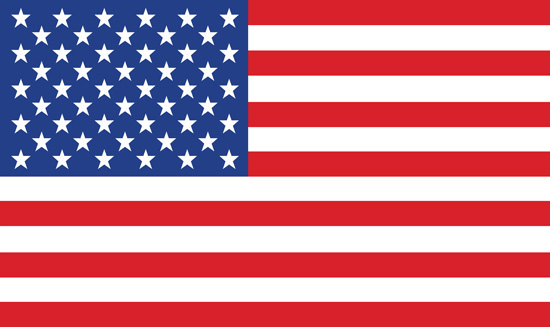
- Records Requests
- Passport Health App
- Privacy Center
- Online Store

Search Smartraveller

Latest update
Exercise normal safety precautions in Zambia.
Higher levels apply in some areas.
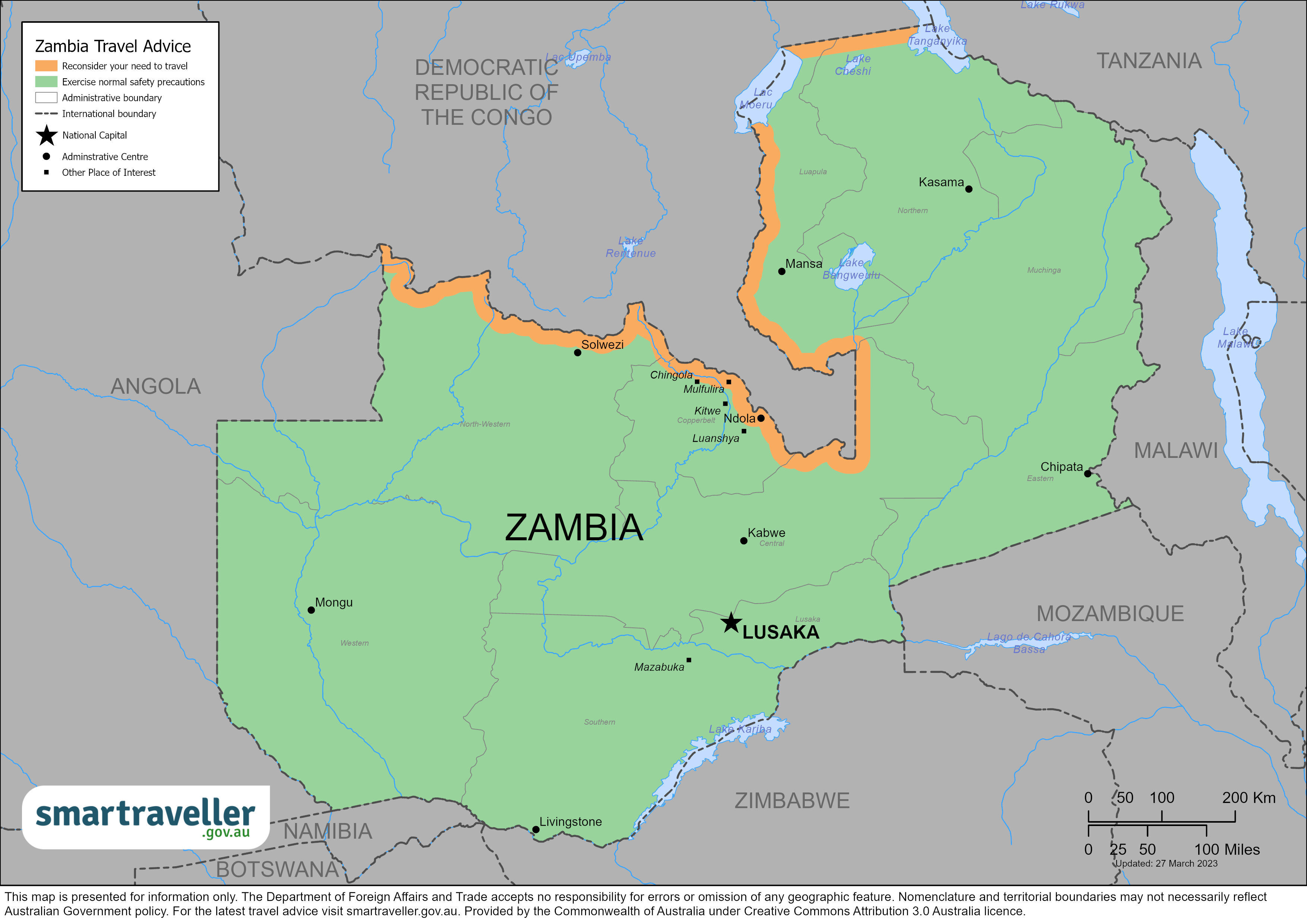
Zambia (PDF 317.92 KB)
Africa (PDF 1.68 MB)
Local emergency contacts
Fire and rescue services, medical emergencies.
Call 999 or go to the hospital.
Call 999 or go to the local police station.
Advice levels
Reconsider your need to travel to border areas with the Democratic Republic of the Congo.
Reconsider your need to travel to border areas with the Democratic Republic of the Congo due to the threat of armed criminal gangs.
- Opportunistic petty crime, including pickpocketing, bag snatching, and vehicle break-ins, is common. Security risks increase after dark, especially in tourist areas and city centres. Stay alert to your surroundings. Avoid walking alone or travelling after dark. Keep vehicle doors locked, windows up and valuables out of sight, even when moving.
- Spontaneous demonstrations are common, and even peaceful demonstrations can turn violent. Avoid all protests, political rallies and large public gatherings.
- Date-rape drugs have been used in bars and restaurants in Lusaka. Always keep a close eye on your food and drinks. If you're not sure it's safe, leave it.
- Thieves sometimes follow people after they withdraw money from ATMs. Avoid using ATMs at night, and be vigilant of your surroundings as you withdraw money.
Full travel advice: Safety
- Medications containing diphenhydramine, such as Benadryl, are illegal in Zambia.
- The rate of HIV/AIDS infection in Zambia is high. Take steps to reduce your risk of exposure to the virus. If you're the victim of a violent crime, see a doctor immediately.
- Malaria and other insect-borne diseases occur. Cholera and other infectious diseases are common. There are currently outbreaks of cholera and anthrax. Boil all drinking water or drink bottled water in rural areas. Avoid contact with animals and do not eat raw or uncooked meat. Don't swim in freshwater. Use insect repellent.
- The standard of medical facilities in Zambia is poor and medical supplies are limited. Make sure you know your blood type. Carry a medical kit.
Full travel advice: Health
- You are subject to all local laws and penalties.
- Zambian authorities don't always contact the Australian Embassy in Harare when they detain or arrest Australians. If you're detained, ask to contact an Australian Embassy consular official in Harare.
- Police and border officials can ask to see your passport and immigration stamp or visa at any time. They could detain or arrest you if you don't have them.
- Consensual sexual activity between individuals of the same sex is illegal in Zambia. If convicted, you could face long terms of imprisonment.
Full travel advice: Local laws
- Australians don't require a visa to enter Zambia.
- Ordinary visitors and tourists can enter for a 90-day visit in any period of 12 months from the day of first entry into Zambia, while business visitors can enter for 30 days in any period of 12 months.
- Entry and exit conditions can change at short notice. Further information on visas can be found at For Visitors – Zambia Department of Immigration (zambiaimmigration.gov.zm) , or you can contact the nearest high commission/embassy or consulate of Zambia for the latest details.
- You need a valid yellow fever vaccination certificate if you're arriving from a country with widespread yellow fever. If you're travelling from an Ebola-affected area, you may be subject to a medical check at the Zambian border.
Full travel advice: Travel
Local contacts
- The Consular Services Charter tells you what the Australian Government can and can't do to help when you're overseas.
- Australia doesn't have an embassy or consulate in Zambia. For consular help, contact the Australian Embassy in Harare .
- To stay up to date with local information, follow the Embassy’s social media accounts.
Full travel advice: Local contacts
Full advice
Crime persists throughout Zambia, including:
- armed robbery
- petty crime
- home break-ins
Security risks increase after dark, especially in tourist areas and city centres.
Pickpockets and bag snatchers target tourists.
Thieves also target travellers in:
- luxury 4WD vehicles
- bus and railway stations
- shopping areas
There have been violent robberies, some involving fatalities, in Lusaka and on the roads in the Copperbelt region.
To protect yourself from crime:
- stay alert to your surroundings
- avoid walking alone or travelling after dark
- keep vehicle doors locked, windows up and valuables out of sight, even when moving
- avoid changing money in busy public areas
Sexual crime
Date-rape drugs have been used in bars and restaurants in Lusaka.
To help protect yourself:
- always keep a close eye on your food and drinks
- never accept food, drink, chewing gum or cigarettes from strangers
- if you're not sure if it's safe, leave it
If you're the victim of a violent crime, including rape , see a doctor immediately. HIV/AIDS is common.
Business fraud scams are common in Zambia. People have been cheated after being persuaded to travel to Zambia on business.
To avoid a potential scam:
- be alert if you're approached by someone in Zambia who you don't know
- don't send money to anyone until you've made proper checks
If you're the victim of a scam, get legal help.
Don't travel to Zambia to get your money back.
Credit card fraud
Credit card fraud occurs.
To protect yourself from fraud:
- always keep sight of your card when paying for goods or services
- make sure credit cards are swiped no more than necessary
- check that carbon copies are destroyed
Cyber security
You may be at risk of cyber-based threats during overseas travel to any country. Digital identity theft is a growing concern. Your devices and personal data can be compromised, especially if you're connecting to Wi-Fi, using or connecting to shared or public computers, or to Bluetooth.
Social media can also be risky in destinations where there are social or political tensions or laws that may seem unreasonable by Australian standards. Travellers have been arrested for things they have said on social media. Don't comment on local or political events on your social media.
More information:
- Cyber security when travelling overseas
Civil unrest and political tension
Spontaneous demonstrations are common. Public protests and events that draw large groups of people can turn violent.
To protect yourself during a period of unrest:
- monitor the media for possible unrest
- avoid demonstrations, political rallies and large public gatherings
More information:
Demonstrations and civil unrest
Terrorism is a threat worldwide, including in Zambia.
Adventure activities and tours
Local transport and tour operators don't always follow safety and maintenance standards, including adventure activities like rafting at Victoria Falls.
If you plan to do an adventure activity :
- check if your travel insurance policy covers it
- ask about and insist on minimum safety requirements
- always use available safety gear, such as life jackets or seatbelts
If proper safety equipment isn't available, use another provider.
Wildlife safety
Getting too close to wildlife can be dangerous.
Swimming in lakes and rivers is unsafe because wildlife could attack you.
To protect yourself from wildlife:
- respect wildlife laws
- keep a safe and legal distance when looking at wildlife
- don't swim in lakes or rivers
- only use well-known and professional guides or tour operators
- follow park rules and the advice of wardens
Climate and natural disasters
Zambia experiences severe weather , including flooding.
The rainy season is from November to April. Roads may become impassable because of flooding.
To protect yourself if flooding occurs:
- keep your passport in a safe, waterproof place
- closely monitor local media and other sources, such as the Global Disaster Alert and Coordination System
- keep in touch with friends and family
- be ready to change your plans
- try to find higher ground if you can safely
Travel insurance
Get comprehensive travel insurance before you leave.
Your policy needs to cover all overseas medical costs, including medical evacuation. The Australian Government won't pay for these costs.
If you can't afford travel insurance, you can't afford to travel. This applies to everyone, no matter how healthy and fit you are.
If you're not insured, you may have to pay thousands of dollars up-front for medical care.
- what activities and care your policy covers
- that your insurance covers you for the whole time you'll be away
Physical and mental health
Consider your physical and mental health before you travel, especially if you have an existing medical condition.
See your doctor or travel clinic to:
- have a basic health check-up
- ask if your travel plans may affect your health
- plan any vaccinations you need
Do this at least eight weeks before you leave.
If you have immediate concerns for your welfare or the welfare of another Australian, call the 24-hour Consular Emergency Centre on +61 2 6261 3305 or contact your nearest Australian Embassy, High Commission or Consulate to discuss counselling hotlines and services available in your location.
The Australian Embassy in Harare provides consular services to Australians in Zambia.
- General health advice
- Healthy holiday tips (Healthdirect Australia)
Medications
Not all medication available over the counter or by prescription in Australia is available in other countries. Some may even be considered illegal or a controlled substance, even if prescribed by an Australian doctor.
Medications containing diphenhydramine, such as Benadryl, are regulated in Zambia.
If you plan to bring medication, check if it's legal in Zambia. Take enough legal medication for your trip.
If your medication is illegal in Zambia, ask your doctor in Australia about alternatives.
Always carry a copy of your prescription and a dated letter from your doctor saying:
- what the medication is
- your required dosage
- that it's for personal use
You could be arrested and jailed if you don't carry your prescription.
- Zambian Drug Enforcement Commission
Health risks
The rate of HIV/AIDS (World Health Organization) infection in Zambia is high.
Take precautions if engaging in activities that expose you to the virus.
Insect-borne diseases
There is a high risk of malaria throughout the year across Zambia. Consider medication to prevent malaria. Consult your doctor about which medication to take and for how long.
Other insect-borne diseases, including those listed by the World Health Organization:
- chikungunya
- African sleeping sickness
To protect yourself from disease:
- use insect repellent at all times
- wear long, loose, light-coloured clothing
- make sure your accommodation is mosquito-proof
Speak to a doctor if you develop a fever, muscle pain, a rash or severe headache.
Other health risks
Waterborne, foodborne and other infectious diseases are common, including these listed by the World Health Organization:
- tuberculosis
- viral haemorrhagic fevers
Serious outbreaks sometimes occur.
To protect yourself from illness:
- drink boiled water or bottled water with sealed lids in rural areas
- avoid ice cubes in rural areas
- avoid raw and undercooked food, such as salads
- avoid contact with animals
- don't swim in freshwater
If you're bitten or scratched by an animal, get medical help immediately.
- Get medical advice if you have a fever or diarrhoea.
There is currently an outbreak of anthrax in Zambia, affecting both rural and urban provinces. Avoid dead animals or carcasses. Purchase meat from reputable sources, and do not eat raw or undercooked meat. Avoid animal products that could have been sourced from animals that may have died of natural causes. If you suspect that you may have come into contact with anthrax, seek urgent medical advice.
Medical care
Medical facilities.
The standard of medical facilities in Zambia is poor, especially in rural areas.
Medical supplies are limited. Some prescription medicines may not be available.
Know your blood type. Carry a sterile medical kit, including needles and dressings.
Most doctors and hospitals require up-front cash payment.
If you become seriously ill or injured, you may need to be evacuated to a place with better facilities, such as South Africa, Europe or the United States. Medical evacuation can be very expensive.
You're subject to all local laws and penalties, including those that may appear harsh by Australian standards. Research local laws before travelling.
If you're arrested or jailed, the Australian Government will do what it can to help you under our Consular Services Charter . But we can't get you out of trouble or out of jail.
Zambian authorities don't always contact the Australian Embassy in Harare when they detain or arrest an Australian citizen.
If you're detained, you have the right to contact an Australian Embassy consular official in Harare.
- Arrested or jailed overseas
Possession of small quantities of an illegal substance can constitute drug trafficking in Zambia. Penalties for drug-related crimes are severe. They include long prison sentences and heavy fines.
- Carrying or using drugs
Police and border officials can ask to see your passport and immigration stamp or visa at any time. They could detain or arrest you if you don't have them.
Always carry your passport and visa or immigration permit. You can get certified copies from the issuing office.
In Zambia, it's illegal to:
- have pornographic material
- take photos of military areas, buildings or personnel
- buy or trade in endangered wildlife products, such as tortoise shells, ivory and rhino horn, or any products made of these materials without a licence
Consensual sexual activity between individuals of the same sex is illegal in Zambia. If convicted, you could be sentenced to long terms of imprisonment.
- Advice for LGBTI travellers
- Wildlife trade (Department of the Environment and Energy)
Australian laws
Some Australian criminal laws still apply when you're overseas. If you break these laws, you may face prosecution in Australia.
Staying within the law and respecting customs
Dual nationality
Officially, Zambia recognises dual nationals. In practice, authorities may not recognise a second nationality.
Dual nationals can't yet apply to have their other nationality recognised in Zambia.
Local authorities may consider you a Zambian national if you're both an Australian and Zambian national. This limits the consular services we can give if you're arrested or detained. Enter and exit on the same passport.
- Dual nationals
Visas and border measures
Every country or territory decides who can enter or leave through its borders. For specific information about the evidence you'll need to enter a foreign destination, check with the nearest embassy, consulate or immigration department of the destination you're entering.
Visa conditions
Australian passport holders do not require a visa to enter Zambia. Ordinary visitors and tourists can enter for 90 days in any period of 12 months from the day of first entry into Zambia.
Business visitors can enter for 30 days in any period of 12 months. Business visitors may be required to present a letter of invitation from the sponsoring organisation.
If arriving by air, you must have a valid return air ticket. If you're arriving by land or water, you must have enough funds for your stay and departure from Zambia.
A KAZA UNVISA is valid for travel between Zambia and Zimbabwe and day trips to Botswana through the Kaungula border. You can get a KAZA UNVISA if you enter via:
- Lusaka or Livingstone international airports
- Livingstone land border with Zimbabwe
- Kazungula land border with Botswana
You can also apply for a KAZA UNVISA online. It costs US$50 and is valid for 30 days.
Entry and exit conditions can change at short notice. Information on entry and visa requirements can be found at For Visitors – Zambia Department of Immigration (zambiaimmigration.gov.zm) , or contact the nearest high commission embassy or consulate of Zambia for details about visas, currency, customs and quarantine rules.
Permits and departure levy
To work in Zambia, including as a volunteer, you'll need an employment permit. For more details, please see the Zambian Department of Immigration .
To live in Zambia, you'll need a residence permit. For more details, see the Zambian Department of Immigration .
If you don't comply with these or other immigration rules, authorities may detain you.
Some Zambian immigration agents may issue fake documents. Make proper checks before and after using a local agent to get a visa or permit.
If you fly within or out of Zambia, you must pay the National Airports Corporation levy. The levy isn't often included in airline tickets. You'll have to pay the levy in US dollars or Zambian Kwacha.
- Zambian Department of Immigration
Other formalities
Yellow fever vaccination.
You'll need a valid yellow fever vaccination certificate if you're arriving from a country where there's widespread yellow fever.
- Countries with a risk of yellow fever
Ebola virus
If you're travelling from an Ebola-affected area, you may be subject to a medical check at the Zambian border.
Zambian authorities have refused entry to people arriving from Ebola-affected countries. If there's another outbreak, authorities may ban people arriving from affected areas.
To enter Zambia, you must have 6 months validity on your passport and have at least 3 blank pages. If you don't, you may be denied entry.
Some foreign governments and airlines apply the rule inconsistently. Travellers can receive conflicting advice from different sources.
You can end up stranded if your passport is not valid for more than 6 months.
The Australian Government does not set these rules. Check your passport's expiry date before you travel. If you're not sure it'll be valid long enough, consider getting a new passport .
Lost or stolen passport
Your passport is a valuable document. It's attractive to people who may try to use your identity to commit crimes.
Some people may try to trick you into giving them your passport. Always keep it in a safe place.
If your passport is lost or stolen, tell the Australian Government as soon as possible:
- In Australia, contact the Australian Passport Information Service .
- If you're overseas, contact the nearest Australian embassy or consulate .
Travel via South Africa
If you're travelling through South Africa, you'll need a full Australian passport. South Africa does not accept temporary travel documents.
- Travel advice for South Africa
Passport with 'X' gender identifier
Although Australian passports comply with international standards for sex and gender, we can't guarantee that a passport showing 'X' in the sex field will be accepted for entry or transit by another country. Contact the nearest embassy, high commission or consulate of your destination before you arrive at the border to confirm if authorities will accept passports with 'X' gender markers.
- LGBTI travellers
The local currency is the Zambia Kwacha (ZMW).
Declare any ZMW and foreign currency over USD5000 when you arrive and depart. This covers all forms of currency, not only cash.
You must use ZMW to pay in Zambia. It's against the law to quote or pay in foreign currency for local goods or services. If you do, you could be fined or jailed for 10 years.
Use well-known banks or currency exchange companies to change or withdraw money. Fake USD100 and ZMW notes are common.
Zambian banks and foreign exchange agents won't accept US banknotes issued before 2000.
Zambia revalued its currency in 2013. Old notes are not accepted. Make sure you receive correct and legal notes.
Only ATMs in Lusaka accept international cards.
Some hotels, restaurants and shops in major urban centres accept credit cards. Many companies charge a fee to use a credit card.
Credit card fraud occurs in Zambia. See Safety
Local travel
Local restrictions.
Land borders may be closed to non-essential traffic with little or no notice.
Border areas
There may be landmines and other explosives near Zambia's borders with:
- Democratic Republic of Congo (DRC)
These may not be marked.
Off-road travel in these areas is dangerous.
If you travel to these border areas despite the risks, ask local authorities about the safest routes.
Driving permit
To drive in Zambia, you need both:
- a valid Australian driver's licence
- an International Driving Permit (IDP)
You must get your IDP before leaving Australia.
Road travel
You're more likely to be killed in a motor vehicle accident in Zambia than in Australia.
Hazards include:
- poor driving habits
- pedestrians and animals on roads
- poorly maintained vehicles and roads
- not enough lighting
Traffic accidents often happen along the Great East Road in Lusaka.
Cars in Zambia must carry two metallic emergency triangles with white reflective stickers on the front. Red reflective stickers must appear on the back.
Drivers must carry identity documents.
You must get a temporary import permit if you want to take a vehicle into Zambia.
You'll also need to buy third-party insurance at the border. If you're not the vehicle owner, you must have a letter from the owner saying you can use the vehicle in Zambia.
Police roadblocks are common.
If you plan to drive:
- check you have enough insurance cover
- get to know local traffic laws and practices
- if you hire a vehicle, make sure it has emergency triangles
- avoid driving after dark in rural areas
Always carry your ID, such as your driver's licence, when driving.
- Driving or riding
Motorcycles
Ask your travel insurer if your policy covers you using a motorbike or similar vehicle. Your policy may not cover you for accidents in these vehicles.
Always wear a helmet.
Only use registered taxis and limousines, preferably arranged through your hotel.
Public transport
There's no reliable public transport in Zambia.
Avoid long-distance buses. They are poorly maintained and often overloaded.
Boat travel
Travelling on riverboats is dangerous. They can be overloaded and lack necessary lifesaving gear.
Always wear a life jacket, even if others don't.
- Travelling by boat
DFAT doesn't provide information on the safety of individual commercial airlines or flight paths.
Check Zambia's air safety profile with the Aviation Safety Network.
Emergencies
Depending on what you need, contact your:
- family and friends
- travel agent
- insurance provider
Police response, particularly outside major cities, may be slow due to lack of resources.
Always get a police report when you report a crime.
Your insurer should have a 24-hour emergency number.
Consular contacts
Read the Consular Services Charter for what the Australian Government can and can't do to help you overseas.
Australia has an Honorary Consulate in Lusaka, Zambia. It can provide limited consular help.
Australian Honorary Consulate, Lusaka
Dr Tiza Chipungu May and Company, Glass House, 759 Independence Avenue, Roundabout 50975 Lusaka, Zambia
Phone: (+260) 779 108 449 Email: [email protected]
The Australian Embassy in Harare, Zimbabwe, can also provide consular assistance to Australians in Zambia.
Australian Embassy, Harare
1 Green Close Borrowdale Harare, Zimbabwe
Phone: +263 24 2853 235 55 or +263 24 2852 4716 Fax: +263 24 2870 566
Website: zimbabwe.embassy.gov.au Email: [email protected]
Facebook: Australian Embassy, Zimbabwe X (Twitter): @AusEmbZim
Check the Embassy website for details about opening hours and any temporary closures.
24-hour Consular Emergency Centre
In a consular emergency, if you can't contact an embassy, call the 24-hour Consular Emergency Centre on:
- +61 2 6261 3305 from overseas
- 1300 555 135 in Australia

Travelling to Zambia?
Sign up to get the latest travel advice updates..
Be the first to know official government advice when travelling.
This website uses cookies to ensure you get the best experience on our website. Learn more

Information on how to stay safe and healthy abroad. About us.
- Destinations
- Asia (Central)
- Asia (East)
- Australasia & Pacific
- Central America
- Europe & Russia
- Middle East
- North America
- South America & Antarctica
Zambia (Africa)
Advice for all destinations.
Read the information on the COVID-19: Health Considerations for Travel page for advice on travelling during the COVID-19 pandemic.
Vaccinations and malaria risk
Review both the Vaccination and Malaria sections on this page to find out if you may need vaccines and/or a malaria risk assessment before you travel to this country.
If you think you require vaccines and/or malaria risk assessment, you should make an appointment with a travel health professional:
- How to make an appointment with a travel health professional
A travel health risk assessment is also advisable for some people, even when vaccines or malaria tablets are not required.
- Do I need a travel health risk assessment?
Risk prevention advice
Many of the health risks experienced by travellers cannot be prevented by vaccines and other measures need to be taken.
Always make sure you understand the wider risks at your destination and take precautions, including:
- food and water safety
- accident prevention
- avoiding insect bites
- preventing and treating animal bites
- respiratory hygiene
- hand hygiene
Our advice section gives detailed information on minimising specific health risks abroad:
- Travel Health Advice A-Z
Other health considerations
Make sure you have travel insurance before travel to cover healthcare abroad.
Find out if there are any restrictions you need to consider if you are travelling with medicines .
Know how to access healthcare at your destination: see the GOV.UK English speaking doctors and medical facilities: worldwide list
If you feel unwell on your return home from travelling abroad, always seek advice from a healthcare professional and let them know your travel history.
Vaccinations
- Confirm primary courses and boosters are up to date as recommended for life in Britain - including for example, seasonal flu vaccine (if indicated), MMR , vaccines required for occupational risk of exposure, lifestyle risks and underlying medical conditions.
- Courses or boosters usually advised: Hepatitis A; Poliomyelitis; Tetanus.
- Other vaccines to consider: Diphtheria; Hepatitis B; Rabies; Typhoid.
- Selectively advised vaccines - only for those individuals at highest risk: Cholera; Yellow Fever.
Yellow fever vaccination certificate required for travellers aged 1 year or over arriving from countries with risk of yellow fever transmission and for travellers having transited for more than 12 hours through an airport of a country with risk of yellow fever transmission.
Notes on the diseases mentioned above
Risk is higher during floods and after natural disasters, in areas with very poor sanitation and lack of clean drinking water.
- Diphtheria : spread person to person through respiratory droplets. Risk is higher if mixing with locals in poor, overcrowded living conditions.
Risk is higher where personal hygiene and sanitation is poor.
Risk is higher for long stays, frequent travel and for children (exposed through cuts and scratches), those who may require medical treatment during travel.
- Tetanus : spread through contamination of cuts, burns and wounds with tetanus spores. Spores are found in soil worldwide. A total of 5 doses of tetanus vaccine are recommended for life in the UK. Boosters are usually recommended in a country or situation where the correct treatment of an injury may not be readily available.
- Typhoid : spread mainly through consumption of contaminated food and drink. Risk is higher where access to adequate sanitation and safe water is limited.
- Yellow Fever : spread by the bite of an infected, day-biting mosquito. The disease is mainly found in rural areas of affected countries but outbreaks in urban areas do occur. Vaccination is usually recommended for all those who travel into risk areas. (View yellow fever risk areas here), and areas where there is an outbreak ongoing (check the 'news' section for outbreaks). In addition, certain countries may want to see proof of vaccination on an official yellow fever vaccination certificate - check above under Immunisations .
Malaria is a serious and sometimes fatal disease transmitted by mosquitoes.You cannot be vaccinated against malaria.
Malaria precautions
- Malaria risk is high throughout the year in all areas including Lusaka.
- Malaria precautions are essential. Avoid mosquito bites by covering up with clothing such as long sleeves and long trousers especially after sunset, using insect repellents on exposed skin and, when necessary, sleeping under a mosquito net.
- Check with your doctor or nurse about suitable antimalarial tablets.
- See malaria map – additional information can be found by clicking on the Regional Information icon below the map.
- High risk areas: atovaquone/proguanil OR doxycycline OR mefloquine is usually advised.
- If you have been travelling in a malarious area and develop a fever seek medical attention promptly. Remember malaria can develop even up to one year after exposure.
- If travelling to an area remote from medical facilities, carrying standby emergency treatment for malaria may be considered.
Other Health Risks
Schistosomiasis.
There is a risk of exposure to coronavirus (COVID-19) in this country.
Please be aware that the risk of COVID-19 in this country may change at short notice and also consider your risk of exposure in any transit countries and from travelling itself.
- The 'News' section on this page will advise if significant case increases or outbreaks have occurred in this country.
Prior to travel, you should:
- Check the latest government guidance on the FCDO Foreign travel advice and country specific pages for travel to this country and the rules for entering the UK on return.
- Ensure you are up to date with UK recommendations on COVID-19 vaccination.
- You can check this in the FAQ's.
- If you are at increased risk of severe COVID-19 you should carefully consider your travel plans and consider seeking medical advice prior to making any decisions.
For further information, see Coronavirus disease (COVID-19) and COVID-19: Health Considerations for Travel pages.
Polio Vaccination Exit Recommendations
If you are visiting this country for longer than 4 weeks, you may be advised to have a booster dose of a polio-containing vaccine if you have not had one in the past 12 months. You should carry proof of having had this vaccination. Please speak to a travel health professional to discuss.
Zika Virus Infection
This country has been categorised as having a risk of Zika (ZIKV) virus transmission.
ZIKV is mainly spread through mosquito bites. The mosquito responsible most commonly bites during daylight hours and is common in towns and cities.
The illness is usually mild but infection during pregnancy may lead to babies being born with birth defects. There is no vaccine currently available against ZIKV.
Advice for All Travellers
You should practice strict mosquito bite avoidance at all times. Do not travel without adequate travel insurance . Seek pre-travel health advice from a travel health professional 6 to 8 weeks in advance of travel.
Additional recommendations for pregnant travellers or those planning pregnancy
If you are planning pregnancy in the very near future you should consider whether you should avoid travel to this country.
- contact your GP, obstetrician or midwife for further advice, even if you have not been unwell or had any symptoms of ZIKV infection
- use barrier methods of contraception during and after travel and for the duration of your pregnancy, even in you have not been unwell or had any symptoms of ZIKV infection
- If you develop symptoms of ZIKV infection, it is recommended that you avoid becoming pregnant for a further 2 months following your recovery
- 2 months afterwards if you are female
- 3 months afterwards if you are male or if both partners travelled
These measures reduce the chance of sexual transmission of ZIKV and/or the risk of ZIKV infection in pregnancy.
For further information, see Zika virus infection page.
- 58 additional items in the news archive for this country
back to top

Chat to an expert
Get advice and recommendations for your trip.
Our guests rate us 5 out of 5 stars
Read what they say
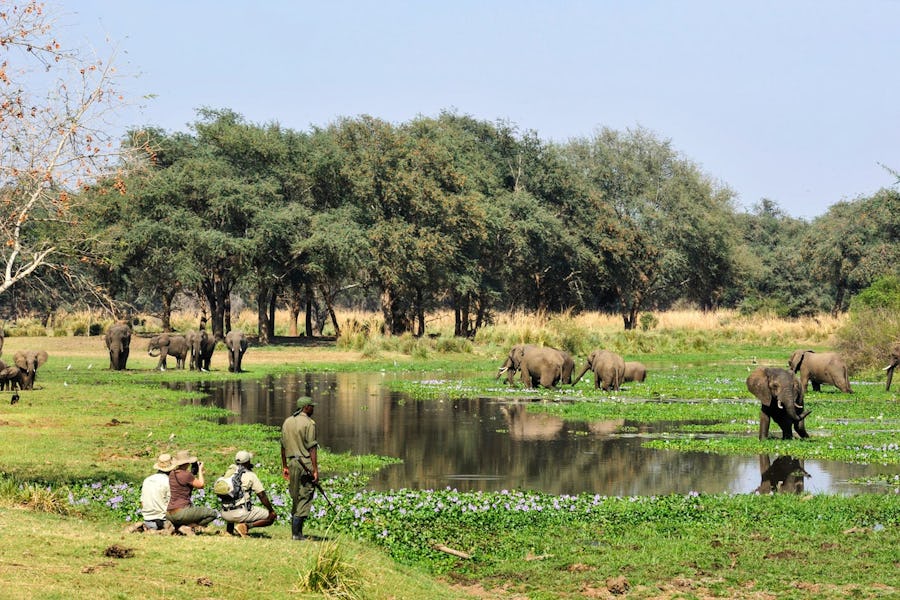
Zambia Travel Tips
We don’t like to have star pupils, but Zambia is up there with our favourite destinations on the continent. Subject to a whole host of (unfair) rumours, we’re here to dispel every single one of them and impart some of our pearls of wisdom for planning a Zambia safari whilst we’re at it. If you haven’t yet decided what time of the year or where to go in Zambia , have a peek at our mini-guides first, and then delve into our Zambia travel tips below. If one thing’s for certain, you’ll be fully equipped to ready, set, BOOK!
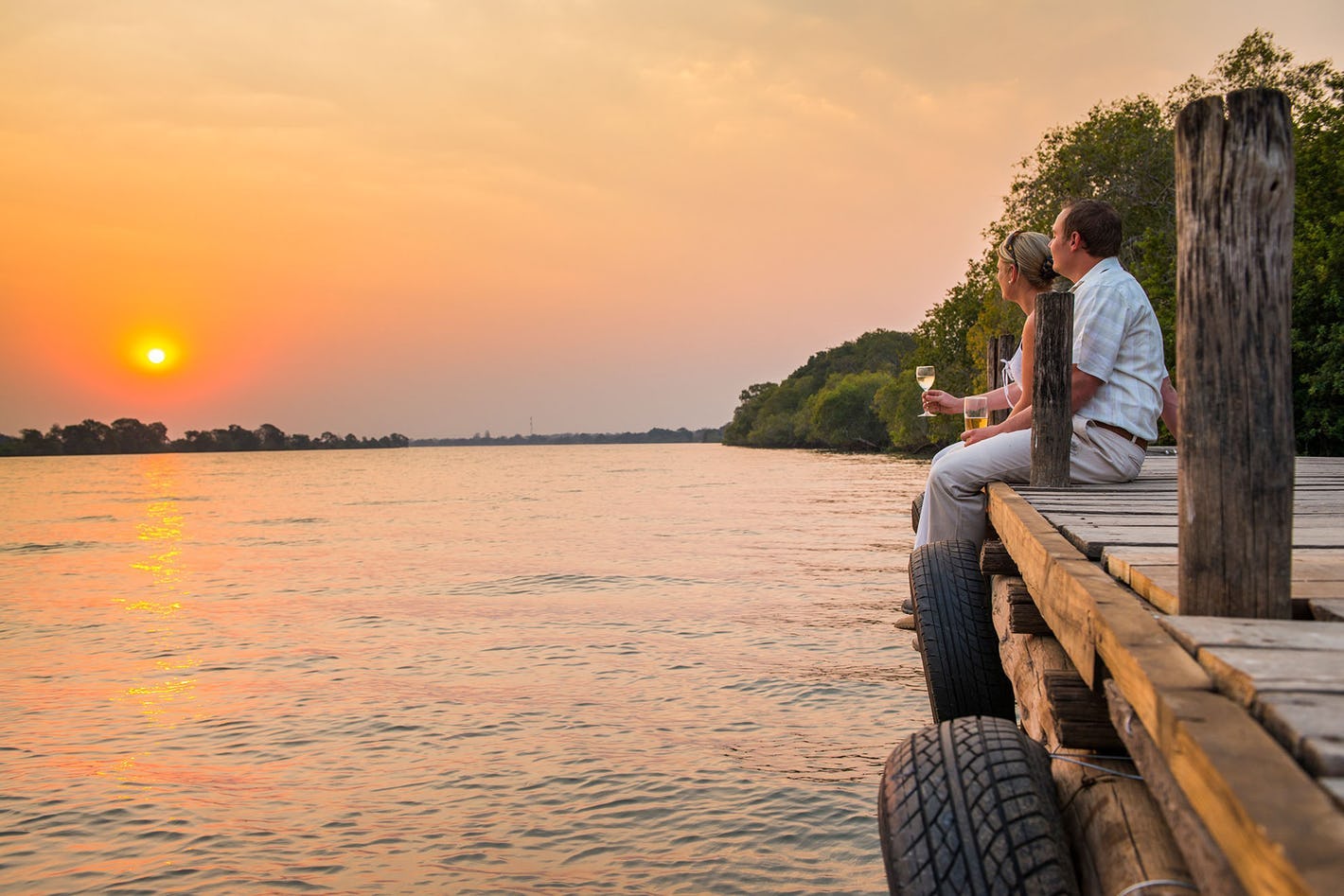
How to get there
The first of our Zambia travel tips is a big one: international flights. To start your adventure, you’ll need to fly to the capital Lusaka , the arrival and departure point of all long-haul flights. Emirates have one flight a day from Dubai, which connects nicely with flights to the major safari destinations on national airline Proflight Zambia. They’ll also allow you a larger luggage limit if you book on the same ticket (win) and they’ll help you if any flights are delayed (win win). Other options are to fly to Nairobi on Kenya Airways, or Johannesburg on BA or South African Airways, and connect to Lusaka.
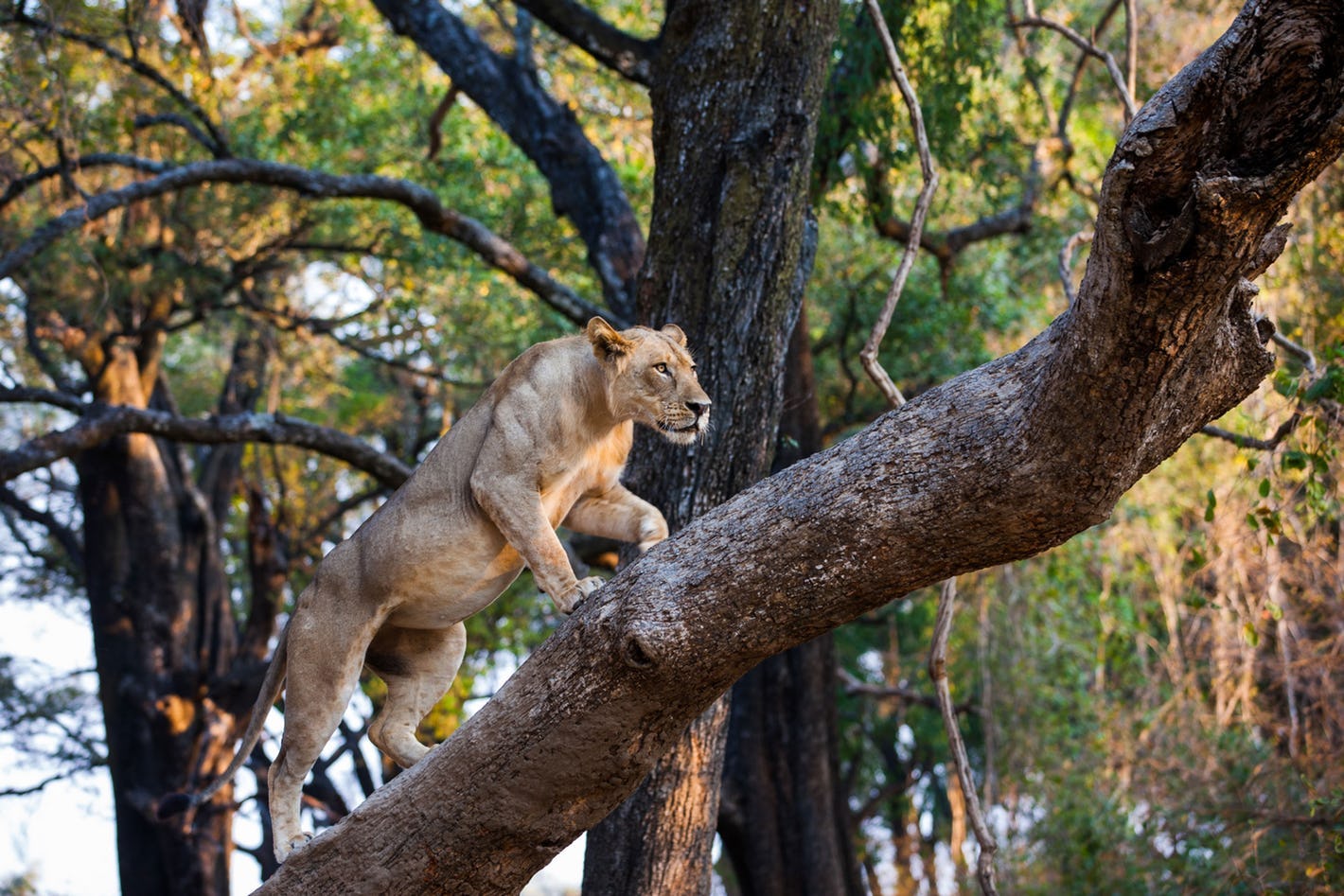
Internal flights
The good news is that national (and only) airline Proflight Zambia flies to every major safari park, so combining different destinations in Zambia really couldn’t be easier. The catch is that most flights arrive and depart from Lusaka so you’ll fly back to the capital and swap planes on almost every journey. That said, Proflight has introduced direct flights from the South Luangwa (Mfuwe airstrip) to the Lower Zambezi (Jeki), so change is in the air. If you do, however, have to connect in Lusaka, it’s a simple process and the wait time is short. Alternatively, if the timings just aren’t working out, have a look at chartering your own plane. No, we don’t think you’re a millionaire, but chartering a plane isn’t as expensive as you might think and can often save a lot of time and hassle – which is exactly what makes it one of our top Zambia travel tips.
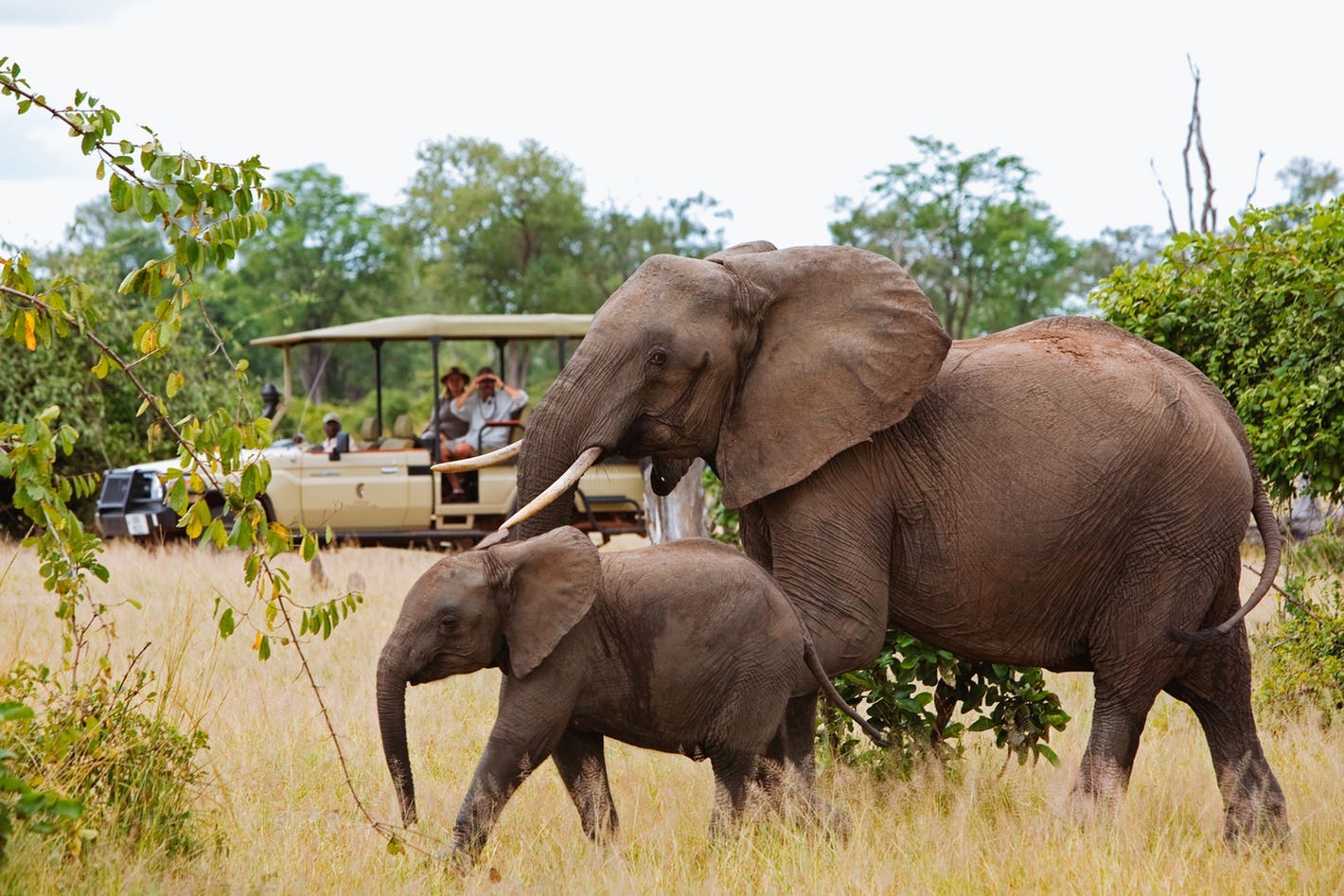
How long should I go for?
It’s one of our most commonly asked questions and only right that we should address it on our list of Zambia travel tips. Generally when it comes to safari, the longer you can travel for, the better! In Zambia, there’s an enormous variety of camps and lodges , safari styles and activities and to stay for only one night in each place simply wouldn’t be worth the effort. A classic, 10-day trip, like this one here , is our typical starting point for Zambia and includes some time at world-famous Victoria Falls , the Lower Zambezi and two different destinations in the South Luangwa . But, if six days is all you have, you can make that work too. Simply choose one or two locations that work well together and do what’s important to you, like this short but sweet trip to the South Luangwa.
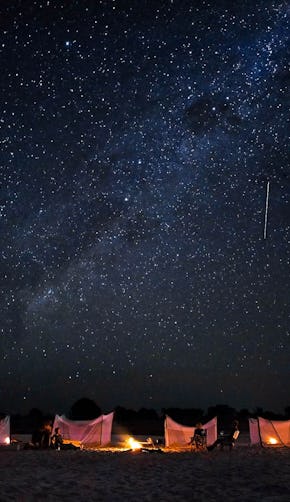
A note on seasons
The weather. Always important yet never guaranteed and the one thing that everyone seems to disagree on. Luckily, Zambia has quite a distinct ‘safari season’ (see our month-by-month guide for a more in-depth look at this), of June to October. The majority of the parks and reserves (bar Liuwa Plain , which is all but closed in August and September) are in their most iconic states and even the tiniest of bush camps are open. It’s the perfect weather for walking safaris and big game viewing and a lovely time to visit. Conversely, Victoria Falls is in full flow from January to June, and if you’re in the market for boating safaris , February and March in the South Luangwa will be your best bet. The moral of the story? There’s something fabulous to see in almost every month of the year – you just need to decide what suits you best.
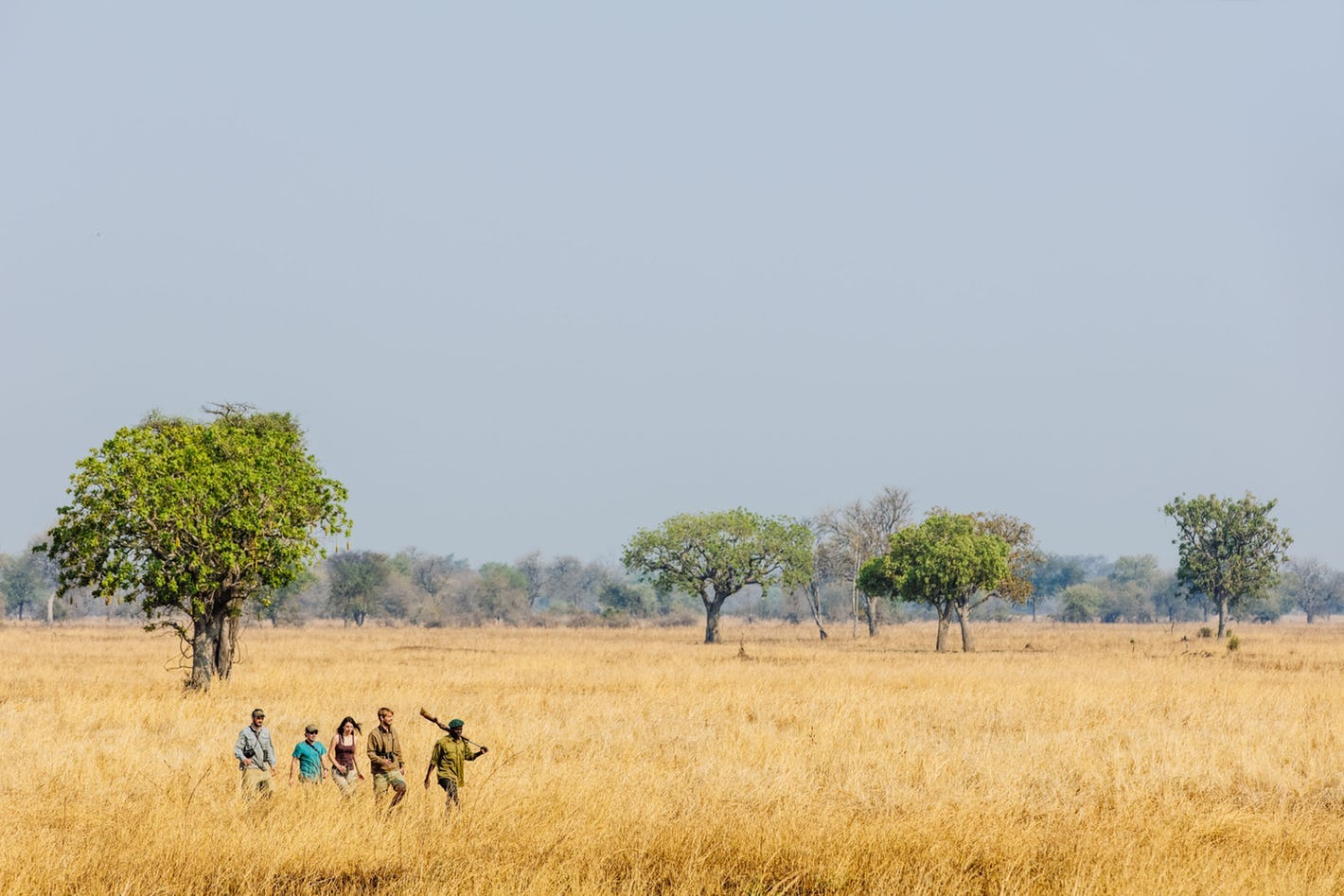
Family friendly
Next on our list of Zambia travel tips is not to rule out the country for a fantastic family safari. East Africa often takes the top spot for multi-generational trips, but over the last few years a crop of new houses have popped up in Zambia that cater brilliantly to families of all ages. In the South Luangwa , Flatdogs Crocodile Nest is one of the best family houses we’ve come across, and Chongwe River House in the Lower Zambezi is a practical yet incredibly stylish choice. Lodges in Zambia don’t necessarily have ‘Kids Programmes’ but the majority of guides are family men (and belly-achingly funny) and have a knack of making the bush come alive for children. The only rule to note is that officially, children under the age of 12 cannot go on a walking safari.
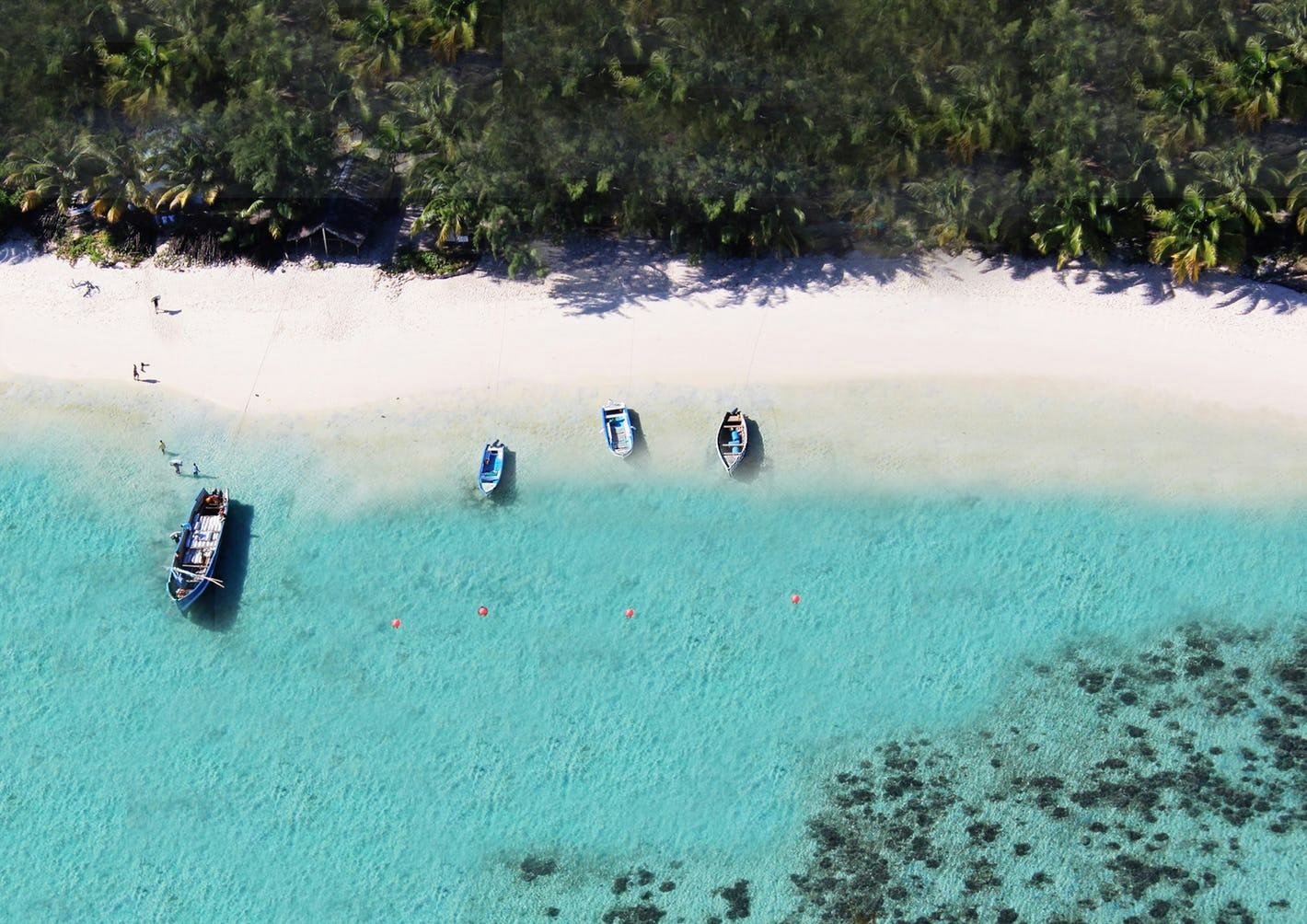
How to combine the beach
Our last Zambia travel tip is all about the beach. Well, sort of. Zambia is a landlocked country and the closest coastline is the Indian Ocean on the eastern side of the continent. Getting here isn’t out of the ordinary; you’ll simply fly from Lusaka to Johannesburg (an overnight may be involved) and then on to your next destination, whether that’s picture-perfect Mauritius or an off-the-beaten track gem on Mozambique’s untouched coast. Time + Tide, famous for their Zambia lodges, also have sister lodge Miavana in Madagascar , offering a lovely (if expensive!) ‘bush and beach’ choice for Zambia. Our favourite option is, however, Lake Malawi . Dotted with hidden beaches and dreamy coves, spending some time by the shimmering water feels like the best type of beach break and, depending on which lodge you choose, there are plenty of activities on offer too. Have a look at this itinerary for how to incorporate it to your Zambia safari and try adding Kaya Mawa , an idyllic retreat on a mango-strewn island in the middle of the lake – you won’t look back!
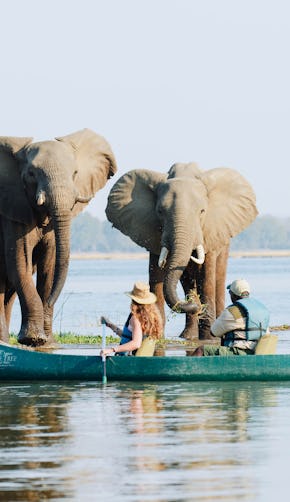
Not sure where to go?
Try our trip wizard to find your dream trip

Winter is here! Check out the winter wonderlands at these 5 amazing winter destinations in Montana
- Travel Tips
The Ultimate Zambia Travel Guide
Published: October 15, 2023
Modified: January 3, 2024
by Haleigh Kopp
- Plan Your Trip
- Travel Guide
Introduction
Welcome to the ultimate Zambia travel guide! Located in the heart of southern Africa, Zambia is a breathtaking destination that offers an array of natural wonders, cultural experiences, and thrilling adventures. From the majestic Victoria Falls to the rich wildlife reserves, this landlocked country has something to captivate every traveler.
Whether you’re an adventure enthusiast seeking adrenaline-fueled activities or a nature lover yearning to explore the diverse ecosystems, Zambia has it all. Immerse yourself in the stunning landscapes, encounter unique wildlife species, and embrace the warmth of Zambian hospitality.
In this comprehensive travel guide, we’ll provide you with invaluable tips and insights to make the most of your trip to Zambia. From the best time to visit to visa requirements, local cuisine to accommodation options, and everything in between, we’ve got you covered.
Discover the hidden gems of Zambia by embarking on wildlife safaris in the iconic South Luangwa National Park or Lower Zambezi National Park. Indulge your adventurous side with heart-pounding activities like bungee jumping, white-water rafting, and walking safaris. Immerse yourself in the vibrant Zambian culture by visiting local villages and participating in traditional ceremonies.
Whether you’re planning a family vacation, a romantic getaway, or a solo expedition, Zambia offers a unique blend of nature, culture, and adventure. So, fasten your seatbelts and get ready for an unforgettable journey through the unspoiled beauty of Zambia.
Best Time to Visit Zambia
Planning your trip to Zambia? Consider the best time to visit, as the weather and wildlife sightings vary throughout the year. The peak travel seasons in Zambia fall between May and October, during the dry winter months when the weather is mild, and wildlife concentrations are high.
May to August is an ideal time to explore Zambia, as the weather is cooler, and the landscapes are lush and vibrant. It is also the prime time for wildlife viewing, as animals gather around water sources, making it easier to spot them during game drives and boat safaris. However, do note that popular parks like South Luangwa and Lower Zambezi can get crowded during this period.
For those seeking a more exclusive experience, consider visiting in the shoulder seasons of April and September. The weather is still pleasant, and the parks are less crowded. This allows for a more intimate encounter with the wildlife and a chance to explore the parks in a more tranquil setting.
From November to March, Zambia experiences its rainy season, characterized by high temperatures and frequent downpours. While this is generally considered the low season, it does have its own unique charm. The lush green landscapes, blooming flora, and baby animals make it an enchanting time for photography enthusiasts and nature lovers.
However, keep in mind that some remote areas may become inaccessible due to flooding, and certain lodges and camps might be closed during this period. It’s essential to check with your travel operator and plan accordingly.
Overall, when planning your visit to Zambia, consider the activities you want to engage in, your tolerance for crowds, and your preferences for weather conditions. With careful consideration, you’ll be able to choose the perfect time to experience Zambia’s natural beauty and wildlife in all its glory.
Getting to Zambia
When it comes to getting to Zambia, there are several convenient options for travelers. The country is served by international airlines, and there are direct flights from major cities in Africa, Europe, and other parts of the world.
Most international visitors arrive at Kenneth Kaunda International Airport (LUN) in Lusaka, the capital city of Zambia. This airport is well-connected to various destinations, making it an accessible entry point. From there, you can easily connect to other domestic airports or continue your journey to different regions of Zambia.
If you’re planning to visit the iconic Victoria Falls, you may consider flying directly to Harry Mwanga Nkumbula International Airport (LVI) in Livingstone, which is located near the falls. This airport receives both international and domestic flights, and it offers a convenient gateway to explore the wonders of the Zambezi River.
For those traveling from neighboring countries, road transportation is an option. Zambia has a well-maintained road network, and you can enter the country through border crossings with Tanzania, Malawi, Zimbabwe, Namibia, Botswana , and Angola. However, keep in mind that road travel can be time-consuming and may require multiple visa entries, depending on your itinerary.
Once you arrive in Zambia, various transportation options are available to help you navigate the country. Domestic flights are offered by local airlines, connecting major cities and popular tourist destinations. This is a convenient option if you want to save time and cover long distances.
If you prefer a more scenic and immersive experience, consider using the extensive bus network in Zambia. Buses are affordable and connect major cities and towns, allowing you to witness the landscapes and interact with locals along the way.
In urban areas like Lusaka and Livingstone, you’ll find taxi services and ride-hailing apps like Uber. Car rental services are also available if you prefer the freedom and flexibility of having your own vehicle.
Before traveling to Zambia, it’s essential to check the latest travel advisories, visa requirements, and transportation options available. Adequate planning and research will ensure a smooth and seamless journey to this captivating African destination.
Visa Requirements
Before traveling to Zambia, it’s crucial to familiarize yourself with the visa requirements to ensure a hassle-free entry into the country. The visa regulations may vary depending on your nationality, so it’s essential to check with the Zambian diplomatic mission or consulate in your home country for the most up-to-date information.
Many nationalities can obtain a visa upon arrival at the international airports in Lusaka and Livingstone. This visa allows for a single entry and is valid for a specific duration, usually up to 90 days. Payment for the visa can be made in cash or by card, and it’s advisable to have the exact amount in US dollars or Zambian Kwacha.
If you prefer to have your visa arranged in advance, you can apply for an e-Visa through the Zambian Immigration Department’s official website. The e-Visa allows for single or multiple entries and has a validity period of up to 90 days.
For those planning an extended stay or multiple visits to Zambia, it’s advisable to apply for a visa at a Zambian embassy or consulate prior to your arrival. This will allow for a longer validity period and multiple entries, if needed.
When applying for a visa, you will typically be required to provide a completed application form, a valid passport with at least six months of validity, recent passport-sized photographs, proof of accommodation in Zambia, a return or onward ticket, and evidence of sufficient funds to support your stay.
It’s important to note that visa regulations are subject to change, so it’s advisable to check for any updates or changes in the visa requirements before you travel. Additionally, some nationalities may be exempt from visa requirements or may be eligible for visa waivers based on bilateral agreements.
For travelers planning to visit Zambia in combination with other countries in the region, such as Zimbabwe or Botswana, you may consider obtaining a multi-entry visa or a UniVisa. This special visa allows for multiple entries into both Zambia and Zimbabwe and is valid for up to 30 days. It offers a convenient option for exploring the breathtaking Victoria Falls from both sides of the border.
Remember, it is always better to be well-prepared and have the appropriate visa in advance to ensure a smooth and stress-free entry into Zambia, allowing you to focus on enjoying your incredible adventure in this beautiful country.
Currency and Exchange Rates
The currency of Zambia is the Zambian Kwacha (ZMW). When visiting Zambia, it’s important to familiarize yourself with the local currency and exchange rates to ensure a smooth financial experience during your trip.
Exchanging foreign currency into Zambian Kwacha is relatively easy, as there are several banks and authorized foreign exchange bureaus located in major cities and towns. The exchange rates may vary slightly between different establishments, so it’s advisable to compare rates and fees before making any transactions.
It’s recommended to carry some cash in the form of US dollars or euros as these currencies are widely accepted and can be easily exchanged into Zambian Kwacha. Credit and debit cards are also widely accepted in most hotels, restaurants, and larger establishments, but it’s always a good idea to carry some cash for smaller transactions and in case of any unforeseen circumstances.
ATMs are available in major cities and towns, and they dispense cash in Zambian Kwacha. However, it’s important to note that some ATMs may have limitations on the maximum withdrawal amount, so it’s advisable to check with your bank regarding any international withdrawal limits or fees that may apply.
When using your credit or debit card in Zambia, inform your bank or card provider about your travel plans in advance to avoid any unexpected issues with your transactions. Additionally, be cautious when using your card at smaller establishments or in more remote areas, as card payment facilities may be limited.
It’s also worth noting that the use of traveler’s cheques in Zambia is not very common, and it can be challenging to find establishments that accept them. Therefore, it’s generally more convenient to rely on cash or card payments.
Lastly, it’s important to be aware of current exchange rates and be cautious when exchanging money with unauthorized individuals or street vendors. It’s always best to use reputable establishments and banks to ensure fair rates and avoid any scams or counterfeit currency.
By familiarizing yourself with the currency and exchange rates in Zambia, you’ll be well-prepared to handle your financial transactions and make the most of your trip without any concerns or inconveniences.
Transportation in Zambia
When it comes to getting around in Zambia, there are several transportation options available to suit different preferences and budgets. Whether you’re exploring the cities or venturing into the wilderness, here are some common modes of transportation in Zambia:
1. Public Buses: Public buses, known locally as “minibuses” or “kombis,” are a popular and affordable mode of transportation in Zambia. These minibuses operate on fixed routes and can be crowded, but they provide a convenient way to travel between cities and towns. Keep in mind that schedules may not always be reliable, so it’s important to plan accordingly.
2. Taxis: Taxis are readily available in urban areas like Lusaka and Livingstone. Some taxis operate with meters, while others require negotiation of fares upfront. It’s advisable to use reputable taxi services or ride-hailing apps for a more reliable and safer experience.
3. Car Rental: Renting a car gives you the freedom to explore Zambia at your own pace. Several car rental companies operate in major cities and at airports. It’s important to have a valid driver’s license and familiarize yourself with the local traffic rules and road conditions before embarking on a self-drive adventure.
4. Domestic Flights: If you’re looking to save time and cover long distances, domestic flights are available between major cities and popular tourist destinations. Local airlines offer regular flights, allowing you to reach your desired destinations quickly and conveniently.
5. Boats and Ferries: Zambia is home to stunning rivers and lakes, including the Zambezi River and Lake Kariba. Boats and ferries provide scenic transportation options, particularly for reaching remote areas or crossing bodies of water.
6. Guided Tours: Booking guided tours with reputable tour operators is a popular choice for exploring national parks, wildlife reserves, and cultural attractions in Zambia. These tours often include transportation, accommodation, and knowledgeable guides who can enhance your experience.
It’s important to note that transportation options may vary depending on your specific destination and the remoteness of the area you plan to visit. If you’re unsure about the best mode of transportation for your trip, consult with local tour operators or seek advice from fellow travelers who have visited Zambia.
Remember to plan your transportation in advance, especially during peak travel seasons, and always prioritize safety by choosing reputable transportation providers. With the right transportation choices, you can easily navigate Zambia and make the most of your journey in this vibrant and diverse country.
Top Tourist Attractions in Zambia
Zambia is famous for its exceptional natural beauty and diverse wildlife, offering visitors a plethora of captivating attractions. Whether you’re a nature lover, adventure enthusiast, or culture seeker, there’s something for everyone in this remarkable country. Here are some of the top tourist attractions in Zambia:
1. Victoria Falls: Located on the border between Zambia and Zimbabwe, Victoria Falls is one of the most awe-inspiring natural wonders in the world. Also known as “The Smoke That Thunders,” the waterfall is a UNESCO World Heritage Site and a must-visit destination. Experience the power and beauty of the falls through activities like a guided tour, scenic helicopter flights, or adrenaline-pumping white-water rafting.
2. South Luangwa National Park: Recognized as one of Africa’s premier wildlife sanctuaries, South Luangwa National Park is a haven for wildlife enthusiasts. Embark on thrilling game drives or walking safaris to spot an abundance of wildlife, including elephants, lions, leopards, and hippos. The park’s picturesque landscapes and diverse ecosystems make it a paradise for photographers and nature lovers.
3. Lower Zambezi National Park: Nestled along the banks of the mighty Zambezi River, the Lower Zambezi National Park offers a pristine wilderness experience. Encounter herds of elephants, graceful giraffes, and elusive predators while exploring the park on game drives, walking safaris, or canoeing trips. The park’s scenic landscapes and beautiful river views provide a truly immersive African safari experience.
4. Kafue National Park: Covering a massive area of over 22,000 square kilometers, Kafue National Park is one of the largest national parks in Africa. Its diverse habitats support a wide range of wildlife, including big cats, antelopes, and over 400 bird species. Take a boat safari on the Kafue River or explore the park on a guided game drive to witness the incredible biodiversity of this untouched wilderness.
5. Livingstone: Named after the legendary explorer Dr. David Livingstone, the town of Livingstone is the gateway to the Victoria Falls. Explore the colonial-era architecture, visit the Livingstone Museum to learn about the region’s history, or embark on thrilling activities such as bungee jumping, microlight flights, or sunset cruises on the Zambezi River.
6. Lake Kariba: Created by the Kariba Dam on the Zambezi River, Lake Kariba is a vast man-made reservoir known for its serene beauty and excellent fishing opportunities. Enjoy boat cruises, fishing trips, or simply relax on the shores, taking in the stunning sunset views.
These are just a few of the many remarkable attractions that Zambia has to offer. From its natural wonders to its cultural heritage, Zambia will captivate you with its beauty, adventure, and warm hospitality. So, pack your bags and get ready to create unforgettable memories in this extraordinary African destination.
Wildlife Safaris in Zambia
Zambia is a paradise for wildlife enthusiasts, offering incredible opportunities to witness diverse species in their natural habitats. With its vast national parks and wildlife reserves, the country is renowned for its authentic and immersive wildlife safaris. Here’s everything you need to know about wildlife safaris in Zambia:
1. South Luangwa National Park: Considered one of Africa’s greatest wildlife sanctuaries, South Luangwa National Park offers exceptional game viewing opportunities. Explore the park on thrilling game drives led by experienced guides, and spot a wide variety of animals, including elephants, lions, leopards, buffaloes, and zebras. Night drives provide a chance to encounter elusive nocturnal creatures and witness the park come alive after dark.
2. Lower Zambezi National Park: Nestled along the Zambezi River, Lower Zambezi National Park is famous for its scenic beauty and diverse wildlife. Embark on game drives, walking safaris, or boat cruises to witness elephants bathing in the river, hippos lazing in the water, and predators on the prowl. Canoeing trips offer a unique perspective, allowing you to experience the park’s wildlife up close while gliding silently on the water.
3. Kafue National Park: Covering a vast area, Kafue National Park is known for its abundant wildlife and diverse ecosystems. Game drives in Kafue offer opportunities to spot lions, cheetahs, leopards, and antelopes. Birdwatching enthusiasts will be delighted by the park’s rich avian population, with over 400 bird species calling Kafue home.
4. Liuwa Plain National Park: For an off-the-beaten-path safari experience, visit Liuwa Plain National Park. This remote and untouched park is famous for its large wildebeest migration, attracting predators like lions and hyenas. Witness the vast herds across the open grasslands and marvel at the stunning sunsets that the park is known for.
5. North Luangwa National Park: For an adventurous and remote safari experience, North Luangwa National Park is the place to be. This park offers walking safaris, providing an up-close and intimate encounter with the wildlife. Immerse yourself in the sights, sounds, and smells of the bush as you track animals on foot, guided by expert rangers.
When embarking on a wildlife safari in Zambia, it’s important to respect the animals and their natural habitats. Follow the guidance of your experienced guides, keep a safe distance from wildlife, and adhere to the park regulations to ensure the animals’ welfare and your own safety.
With its untamed beauty and remarkable wildlife, Zambia guarantees an unforgettable safari experience that will leave you in awe of the natural world. So, pack your binoculars, camera, and a sense of adventure, and prepare for an incredible journey through Zambia’s mesmerizing wilderness.
Adventure Activities in Zambia
Zambia is not only a destination for wildlife enthusiasts but also an adventure lover’s playground. With its diverse landscapes and thrilling natural wonders, the country offers a wide range of exhilarating activities for adrenaline junkies. Here are some top adventure activities to experience in Zambia:
1. Bungee Jumping at Victoria Falls: For an adrenaline rush like no other, take a leap of faith and bungee jump off the famous Victoria Falls Bridge. Plummet 111 meters towards the rushing Zambezi River, with the iconic waterfall as your backdrop.
2. White-Water Rafting: Ride the rapids of the Zambezi River for an unforgettable white-water rafting experience. The powerful currents and breathtaking scenery create an exhilarating adventure as you navigate through the Batoka Gorge, tackling thrilling rapids along the way.
3. Canoeing Safaris: Explore the tranquil waterways of the Zambezi River or the Lower Zambezi National Park on a canoeing safari. Paddle along the river, encountering elephants, hippos, crocodiles, and a rich variety of birdlife. It’s an immersive and serene way to connect with nature.
4. Walking Safaris: Get up close and personal with Zambia’s wildlife on a walking safari. Accompanied by professional guides, explore the untamed wilderness on foot, observing animals in their natural habitats, learning about the local flora and fauna, and experiencing the thrill of being in the midst of the African bush.
5. Microlight Flights: Soar above the magnificent landscapes of Livingstone and the Victoria Falls on a microlight flight. Feel the wind in your face as you enjoy breathtaking aerial views of the falls, the Zambezi River, and the surrounding wilderness. It’s a unique perspective that offers a truly unforgettable experience.
6. Helicopter Tours: Take to the skies in a helicopter and marvel at the sheer scale and beauty of the Victoria Falls. Enjoy panoramic views as you fly over the cascading waters, capturing stunning photographs and memories from a bird’s-eye view.
7. Zip-lining and Canopy Tours: Swing through the treetops and soar across the lush landscapes on a thrilling zip-lining or canopy tour. Traverse between platforms and walkways, taking in the beauty of the forest canopy and enjoying an adrenaline-pumping adventure.
These are just a few examples of the many exciting adventures that await in Zambia. Whether you’re seeking heart-pounding thrills, breathtaking natural beauty, or a unique perspective on the country’s wonders, Zambia has it all for the adventurous soul.
Cultural Experiences in Zambia
Immerse yourself in the rich cultural heritage of Zambia and discover the vibrant traditions, customs, and history of its diverse ethnic groups. From engaging with local communities to witnessing traditional ceremonies, Zambia offers a multitude of cultural experiences. Here are some captivating cultural activities to enjoy:
1. Visit Traditional Villages: Journey off the beaten path and visit traditional villages to gain insights into the daily lives of Zambian communities. Interact with locals, learn about their customs, and witness traditional practices such as basket weaving, pottery making, or traditional cooking methods.
2. Attend a Traditional Ceremony: Zambia is known for its vibrant cultural festivals and ceremonies that showcase the customs and beliefs of various ethnic groups. From the Kuomboka ceremony of the Lozi people to the Lwiindi Gonde ceremony of the Tonga people, attending these events offers a unique window into Zambian traditions and rituals.
3. Explore Livingstone Museum: Located in the town of Livingstone, the Livingstone Museum is the oldest and largest museum in Zambia. It houses a remarkable collection of artifacts, exhibits, and historical information that delve into the country’s cultural and natural heritage, providing valuable insights into the diverse ethnic groups of Zambia.
4. Traditional Music and Dance: Experience the vibrant rhythms and energetic dances of Zambia through traditional music and dance performances. Local musicians and dancers showcase their talent and cultural expressions, often accompanied by traditional instruments such as drums, xylophones, and thumb pianos.
5. Taste Zambian Cuisine: Sample the flavors of Zambia by indulging in traditional Zambian cuisine. From nshima (a staple made from maize meal) to traditional stews and grilled meats, the local cuisine reflects the country’s cultural diversity and agricultural heritage. Don’t miss the opportunity to try local delicacies such as bream fish from Lake Kariba or caterpillar sautéed with spices.
6. Arts and Crafts: Explore local markets and artisan workshops to discover a wide array of Zambian arts and crafts. From intricate wood carvings to vibrant textiles, hand-woven baskets, and beautiful beadwork, these crafts reflect the creativity and craftsmanship of Zambian artisans.
Engaging in these cultural experiences allows you to connect with the people of Zambia, gain a deeper appreciation for their traditions, and contribute to the preservation of their cultural heritage. By embracing the diverse cultures of Zambia, you will leave with unforgettable memories and a greater understanding of this fascinating country.
Accommodation Options in Zambia
Whether you prefer luxury lodges or budget-friendly options, Zambia offers a variety of accommodation choices that cater to different needs and preferences. From wilderness camps to riverside lodges, you’ll find a place to rest and rejuvenate after your adventures. Here are some popular accommodation options in Zambia:
1. Luxury Lodges: Zambia is home to several luxury lodges that provide an indulgent and exclusive experience. These lodges often offer spacious and elegantly-appointed rooms, gourmet dining options, spa facilities, and personalized services. Many luxury lodges are situated in prime wildlife viewing areas, allowing guests to enjoy game drives and other activities in style and comfort.
2. Wilderness Camps: For a more rustic and immersive experience, consider staying at one of the wilderness camps in national parks and wildlife reserves. These camps are designed to blend seamlessly with the natural surroundings and provide an authentic African bush experience. Accommodations range from comfortable tents with en-suite facilities to rustic chalets or thatched-roof huts.
3. Safari Lodges: Safari lodges are a popular choice for those seeking a balance between comfort and authenticity. These lodges often offer spacious rooms with en-suite bathrooms, dining facilities, and common areas where guests can relax and share their safari experiences. Many safari lodges are strategically located for easy access to wildlife-rich areas.
4. Guesthouses and B&Bs: In urban areas and smaller towns, guesthouses and bed and breakfasts offer affordable and comfortable accommodation options. These establishments provide cozy rooms and often include breakfast in the rate. Staying at a guesthouse or B&B allows you to interact with locals and get a glimpse of everyday Zambian life.
5. Camping: For adventurous travelers, Zambia offers various camping options. National parks and private campsites provide facilities for both self-catering and fully serviced camping experiences. Camping allows you to immerse yourself in the wilderness and fall asleep to the sounds of nature.
6. Eco-Lodges: As sustainability becomes increasingly important, eco-lodges have gained popularity in Zambia. These lodges focus on environmentally friendly practices and providing a low-impact experience. Eco-lodges often incorporate renewable energy sources, organic food options, and local community involvement.
With the range of accommodation options available, it’s advisable to book in advance, especially during the high season, to secure your preferred choice. Consider your budget, location preferences, and desired level of comfort when selecting your accommodation in Zambia. Regardless of your choice, you’ll find warm Zambian hospitality and the chance to unwind amidst the country’s breathtaking natural beauty.
Local Cuisine and Dining in Zambia
Zambian cuisine is a true reflection of the country’s rich cultural diversity and agricultural abundance. From traditional dishes to international flavors, the food in Zambia is flavorful, hearty, and often includes fresh local ingredients. Here’s a glimpse into the local cuisine and dining experiences in Zambia:
Nshima: Nshima is the staple food of Zambia and is similar to a thick porridge made from maize meal. It is typically served as a accompaniment to various dishes and is enjoyed with your hands by rolling it into small balls and dipping it into different sauces.
Grilled Meats: Zambia is renowned for its delicious grilled meats. From succulent beef and tender pork to flavorful game meat like crocodile, impala, and warthog, you’ll find a variety of roasted and barbecued meats served with side dishes.
Kapenta: Kapenta is a small, dried fish that is a popular ingredient in Zambian cuisine. It is often cooked with tomatoes, onions, and spices, and served with nshima or as a relish.
Chikanda: Chikanda, also known as African polony or African sausage, is a unique Zambian delicacy. It is made from ground wild orchid tubers, peanuts, and spices and is typically served as a snack or appetizer.
Ifisashi: Ifisashi is a traditional Zambian dish made from vegetables such as pumpkin leaves or spinach, cooked in a peanut-based sauce. It is commonly served with nshima and provides a flavorful and nutritious vegetarian option.
Mbuzi Choma: Mbuzi Choma, or roasted goat meat, is a popular delicacy in Zambia. The meat is marinated with local spices, grilled over an open fire, and often enjoyed as a festive celebration or special occasion dish.
Fruits and Vegetables: Zambia is blessed with an abundance of fresh fruits and vegetables. From juicy mangoes and sweet pineapples to flavorful avocados, you’ll find an array of tropical fruits to enjoy. Local markets are a great place to explore and sample the diverse selection of seasonal produce.
When dining out in Zambia, you’ll find a range of options from casual eateries and street food stands to fine dining restaurants. In urban areas like Lusaka and Livingstone, you’ll find a variety of international cuisines alongside Zambian dishes, offering a fusion of flavors for all tastes and preferences.
Don’t forget to also try traditional beverages such as maheu (a fermented maize drink) or refreshing fruit juices made from local fruits. And for those seeking a traditional Zambian social experience, visit one of the local drinking establishments known as “shebeens” to enjoy a cold beer and interact with the friendly locals.
Exploring the local cuisine in Zambia is not only a treat for your taste buds but also an opportunity to immerse yourself in the country’s cultural fabric and culinary traditions. So, don’t be afraid to indulge in the hearty and flavorful dishes that Zambia has to offer.
Health and Safety Tips for Travelers in Zambia
Ensuring your health and safety should be a top priority when traveling to Zambia. By following these important tips, you can have a safe and enjoyable trip:
1. Vaccinations and Health Precautions: Before traveling to Zambia, consult with a travel health professional to receive all necessary vaccinations such as typhoid, hepatitis A and B, measles, and yellow fever. Malaria is prevalent in Zambia, so it’s essential to take malaria prophylaxis and use mosquito repellent, especially in high-risk areas.
2. Safe Food and Water: To avoid foodborne illnesses, choose reputable restaurants and eateries that maintain proper hygiene standards. Drink only bottled water or water that has been properly treated, and avoid consuming raw or undercooked food, unpeeled fruits, and street food that may not be properly prepared or cooked.
3. Personal Safety: Like any travel destination, practicing personal safety precautions is important. Be aware of your surroundings, especially in crowded areas, and avoid flaunting valuable belongings. It’s advisable to use secure transportation, especially at night, and to keep your passport and important documents in a safe place.
4. Wildlife Safety: When on wildlife safaris or visiting national parks, always follow the instructions of your guide and keep a safe distance from wild animals. Respect their space and refrain from feeding or approaching them. It’s also crucial to adhere to park rules and regulations to ensure your safety and the conservation of wildlife.
5. Sun Protection: Zambia can have high temperatures and intense sunlight. Protect yourself from the sun by wearing sunscreen with a high SPF, a hat, sunglasses, and lightweight, loose-fitting clothing. Stay hydrated by drinking plenty of water, especially during outdoor activities.
6. Respect Local Customs: Zambia has a rich cultural heritage, and it’s important to respect local customs and traditions. Dress modestly, especially when visiting religious sites or attending traditional ceremonies. Always ask for permission before taking photographs of people or their properties.
7. Travel Insurance: It is highly recommended to have comprehensive travel insurance that covers medical expenses, trip cancellation or interruption, and personal belongings. Ensure that your insurance policy is valid in Zambia and covers any adventurous activities you plan to engage in.
8. COVID-19 Precautions: In light of the ongoing COVID-19 pandemic, stay updated on the latest travel advisories and follow all health protocols and guidelines issued by local authorities. This may include wearing masks, practicing social distancing, and frequent handwashing or sanitizing.
Remember, it’s always important to stay informed about the current situation in Zambia by checking travel advisories and consulting reliable sources of information. By taking these health and safety precautions, you can have a worry-free trip and fully enjoy the wonders that Zambia has to offer.
Essential Packing List for Zambia
When traveling to Zambia, it’s important to pack appropriately for the climate, activities, and cultural customs. Here’s a checklist of essential items to pack:
1. Lightweight Clothing: Pack lightweight, breathable clothing suitable for warm weather. Include shorts, t-shirts, lightweight pants, and skirts or dresses. Remember to dress modestly when visiting religious sites or participating in cultural activities.
2. Layered Clothing: Evenings and early mornings in Zambia can be cool, so pack a lightweight jacket, long-sleeved shirts, and a pair of long pants for added comfort.
3. Comfortable Walking Shoes: Bring comfortable walking shoes or hiking boots, especially if you plan to explore national parks or participate in walking safaris. Sandals or flip-flops are also useful for relaxing or walking around town.
4. Hat and Sunglasses: Protect yourself from the sun’s rays by packing a wide-brimmed hat and a pair of sunglasses with UV protection.
5. Swimwear: If you plan to visit the lakes, rivers, or swimming pools, don’t forget to pack your swimwear.
6. Insect Repellent: Mosquitoes are prevalent in Zambia, so bring a reliable insect repellent containing DEET or another effective ingredient to protect yourself from mosquito bites.
7. Sunscreen: The sun in Zambia can be intense, so pack a high SPF sunscreen to protect your skin from sunburn.
8. Medications and First Aid Kit: If you take any prescription medications, be sure to pack an ample supply for the duration of your trip. A basic first aid kit with band-aids, antiseptic lotion, pain relievers, and any necessary personal medications is also essential.
9. Travel Adapters and Chargers: Zambia uses Type C, D, and G electrical outlets, so bring the appropriate travel adapters and chargers for your electronics.
10. Travel Documents: Don’t forget to pack your passport, visa, travel insurance documents, and any other necessary identification or travel documents.
11. Cash and Cards: While you can find ATMs in major cities, it’s advisable to carry enough cash, preferably in small denominations, for smaller expenses and in case of any unforeseen situations. Additionally, bring a debit or credit card for larger purchases or emergencies.
12. Reusable Water Bottle: Stay hydrated by carrying a reusable water bottle and refill it from filtered water sources to minimize plastic waste.
13. Photography Gear: If you enjoy photography, don’t forget to pack your camera, extra batteries, memory cards, and any necessary accessories for capturing the stunning landscapes and wildlife in Zambia.
Remember to check the current weather forecast for your travel dates and pack accordingly. It’s also a good idea to leave some space in your luggage for any souvenirs or items you may purchase during your trip. By packing these essential items, you’ll be well-prepared for your journey and able to fully enjoy the wonders of Zambia.
As we wrap up this ultimate Zambia travel guide, we hope that you are now equipped with the knowledge and insights to plan an incredible journey to this captivating country. Zambia offers a combination of breathtaking landscapes, rich wildlife, vibrant cultural experiences, and thrilling adventures that will leave you with unforgettable memories.
From the majestic Victoria Falls to the abundant national parks such as South Luangwa and Kafue, Zambia’s natural wonders are a sight to behold. Embark on a wildlife safari, spot diverse animal species, and immerse yourself in the untouched beauty of the African bush. Engage with locals, attend traditional ceremonies, and savor the flavors of Zambian cuisine for a truly immersive cultural experience.
While exploring Zambia, prioritize your health and safety by taking necessary vaccinations, practicing safe food and water precautions, and respecting local customs. Remember to pack appropriate clothing, including sunscreen and insect repellent, as the climate can be hot and mosquitoes are prevalent.
Whether you’re seeking adventure activities like bungee jumping and white-water rafting or prefer a more tranquil experience like canoeing on the Zambezi River, Zambia has something to offer all types of travelers. Choose from a variety of accommodation options, ranging from luxury lodges to wilderness camps, to suit your preferences and budget.
As you embark on your Zambia adventure, be open to the unexpected, embrace the warmth and hospitality of the Zambian people, and marvel at the untamed beauty of the country’s landscapes and wildlife. The memories you create in Zambia will stay with you long after you leave.
So, pack your bags, put on your adventurous spirit, and get ready to explore the wonders of Zambia. From walking in the footsteps of explorers to encountering the Big Five in their natural habitats, Zambia is a destination that will leave you mesmerized and longing to return.

- Privacy Overview
- Strictly Necessary Cookies
This website uses cookies so that we can provide you with the best user experience possible. Cookie information is stored in your browser and performs functions such as recognising you when you return to our website and helping our team to understand which sections of the website you find most interesting and useful.
Strictly Necessary Cookie should be enabled at all times so that we can save your preferences for cookie settings.
If you disable this cookie, we will not be able to save your preferences. This means that every time you visit this website you will need to enable or disable cookies again.

Zambia Travel Advice and Travel Advisories
Zambia travel vaccines and advice.

Whether you are a history enthusiast or not, come and marvel at the prehistoric sites of Zambia. Nestled in the heart of Central Africa, this country will fascinate every visitor. Dive into discovering the destination’s past by visiting the Zintu Community Museum and the Cathedral of the Holy Cross. The rare natural beauty and outdoor activities will be sure to impress you on this destination. You’ll have adrenaline-fuelled experiences and adventure are at the tip of your fingertips, such as taking an iconic safari trip through the plains. If you are a fan of meditation and are looking for tranquillity, there are plenty of calm activities or regions. Do not deprive yourself of grandiose landscapes, perfect for hiking opportunities.
/Zambia (5).jpg)
Recommended travel vaccinations for Zambia
Recommended medication for travelling to zambia, current weather in zambia, medical care in zambia.
Zambia suffers with relation to its sanitary facilities. Even in public hospitals, medical care proves limited. However, small clinics in Lusaka and other major cities can provide adequate routine care. You can also be treated at Coptic Hospital , Saint John’s Medical Center and Lusaka Trust Hospital.
Locating quality medications and supplies proves almost impossible, especially in remote regions. In order to make up for this scarcity, you should carry a first aid kit with you containing all of your usual medicines and pharmaceutical products.
Medical assistance can be obtained by dialing 991 orr 995 . If you are suffering from a more serious illness, you will need to be evacuated by airplane. St John’s ambulance service can also be reached at 0211-241823, +260 973 60 3393 or +260 962 26 2283.
Is Zambia Safe for Travel?
Do i need a visa to visit zambia.
Prior to travel, make sure you check with your transportation company about any passport requirements. This is important as in some cases their regulations on passport validity may be more strict than those of the destination country.
Both, a visa and a passport are required to enter Zambia. The passport must be valid for at least 6 months beyond the date of departure .
Please click here for more information.
Embassy of Canada to Zambia information
When travelling to another country, it is important to know where the Canadian embassy is located in the event of:
- A legal problem
- A lost passport
- The need to report a crime
It is advisable to make a copy of your original passport in case you lose it.
Canadian High Commission to Zambia Street Address: 5210 Independance Avenue, Lusaka, Zambia
Tel.: 260 (211) 25-08-33/39-85-00
Email: [email protected]
Click here to access the consulate’s website
Travel Advice for Zambia
Going to Zambia and need to know about the latest government travel advice for Zambia? Find the updated travel advice and travel warnings for Zambia from governments around the world, here.
General Travel Advice and Warnings for Zambia
The decision to go to Zambia is your decision and you are in charge of your personal safety whilst in Zambia.
The content on this page is given information only and compiled from travel advice and warnings for Zambia by governments all over the world to their citizens.
While we make every effort to offer you accurate travel advice information, it is given on an “as is” basis without warranty of any kind, expressed or implied.
This owners of this web site does not assume responsibility and will not be liable for any damages in connection to the information supplied.
General Cautions Travellers Need to Bear In Mind When Taking a Trip in Zambia
Crime – Petty criminal activities such as pick pocketing in a jampacked surrounding to sexual assault and robberies do happen in bigger cities of Zambia. Make sure that all your personal possessions, such as passports and other travel documents, are safe at all times.
Terrorism – Always be aware of your surroundings when in public areas. Be particularly alert if attending sporting events and during religious holidays and various other public celebrations, as terrorists frequently use such celebrations to mount attacks.
Demonstrations and Protests – Demonstrations may take place. Even peaceful demonstrations can turn violent any time. They can also result in disruptions to traffic and public transport. It is in your interest of safety to keep away from locations where demonstrations and big events are taking place and comply with the instructions of local authorities. Monitor local media in Zambia for information on ongoing protests in Zambia.
Scams – Exercise caution in crowded tourist locations in Zambia, where scammers target travellers. If you’ve been scammed in Zambia, reach a safe place immediately; take note, as soon as possible of the name and address of the facility where you were held; alert the police in Zambia and obtain a report and if your credit card is used by the scammer call your credit card provider to report the scam; they will likely request a copy of the police report to cancel the financial transaction.
Spiked Food and Beverages – Never leave food or drinks unattended or in the care of complete strangers when travelling in Zambia or anywhere else. Watch out for accepting snacks, drinks, chewing gum or cigarettes from new acquaintances. These items might contain drugs that could put you in danger of sexual assault and robbery.
What is the entry/exit requirements for Zambia?
Every country or territory chooses who can enter or exit through its borders, in the same manner Zambia determines exactly who enter its territories. The Government of your home country can not interfere on your behalf if you do not satisfy your Zambia’s entry or exit requirements.
To read more regarding the entry/exit requirement for Zambia go to visa requirements for Zambia or obtain the most recent info with the visa office at the Zambian consulate in your home country.
Travel insurance for Zambia
Travel health cover is just one of the main reasons visitors get travel insurance. It will not stop you getting ill or seriously injured, though it can prevent you being affected financially. Medical assistance overseas can be very expensive.
You need to pay for all healthcare you get overseas. You can not expect to get free or subsidised treatment through your Zambia’s public health system, like you would in your home country.
If you can’t pay, local authorities can apprehend you. The government from your home country can’t pay you medical costs for you, loan you cash or get you out of jail.
You require travel insurance for travelling to Zambia . You also need to see to it you choose a plan that is right for you.
Read the small print of your travel insurance policy.
Declare all pre-existing conditions to your travel insurance company upfront. If you don’t, you might invalidate your travel insurance plan.
Inform your travel insurer the activities you intend to do, prior to you go. Many common activities like snowboarding are left out in basic policies. You may need to pay additional.
Check if you have free credit card travel insurance policy. Some cards include travel insurance policy cover. Nevertheless, they frequently have different conditions than paid policies. Be aware of the differences.
If you’re travelling to Zambia from a country that has a reciprocal health care agreement, you still need travel health insurance. Agreements are limited in what they’ll will cover.
If you have an incurable illness, you may not be able to get standard travel insurance. Nevertheless you might be able to get a specialised insurer that covers you for health, accidents or property issues unrelated to your disease. Speak with your insurance firm to learn.
Learn more about getting international travel insurance policy for Zambia prior to you go.
© 2021 Government Travel Advice
- Terms and Conditions
- Privacy Policy
- Company History
- Mission Statement
- Philippines
- South Africa
- Afghanistan
- American Samoa
- Antigua and Barbuda
- British Virgin Islands
- Burkina Faso
- Canary Islands
- Cayman Islands
- Central African Republic
- Christmas Island
- Cocos (Keeling) Islands
- Cook Islands
- Cote d'Ivoire
- Democratic Republic of the Congo
- Dominican Republic
- Easter Island
- El Salvador
- Equatorial Guinea
- Falkland Islands
- Faroe Islands
- French Guiana
- French Polynesia
- Guinea-Bissau
- Liechtenstein
- Madeira Islands
- Marshall Islands
- Netherlands
- New Caledonia
- New Zealand
- Norfolk Island
- North Korea
- North Macedonia
- Northern Mariana Islands
- Palestinian Territories
- Papua New Guinea
- Pitcairn Islands
- Puerto Rico
- Republic of the Congo
- Saint Barthelemy
- Saint Helena
- Saint Kitts and Nevis
- Saint Lucia
- Saint Martin
- Saint Pierre-et-Miquelon
- Saint Vincent and the Grenadines
- Sao Tome and Principe
- Saudi Arabia
- Sierra Leone
- Sint Eustatius
- Solomon Islands
- South Georgia and the South Sandwich Islands
- South Korea
- South Sudan
- Switzerland
- Trinidad and Tobago
- Turkmenistan
- Turks and Caicos Islands
- U.S. Virgin Islands
- United Arab Emirates
- United Kingdom
- United States
- Wake Island
- Western Sahara
- Travel Vaccines
- Travel Health Consultations
- Travellers’ Diarrhea Kits
- Dengue Fever Prevention
- Malaria Prevention
- Chikungunya Prevention
- Zika Prevention
- Ebola Virus
- Yellow Fever
- Hepatitis A
- Japanese Encephalitis
- Hepatitis B
- Tickborne Encephalitis (TBE)
- Tetanus-Diphtheria-Pertussis
- Measles-Mumps-Rubella
- Influenza (Flu)
- Blood Tests
- Vitamin Injections
- Physician Referral Program
- London – Euston Travel Clinic
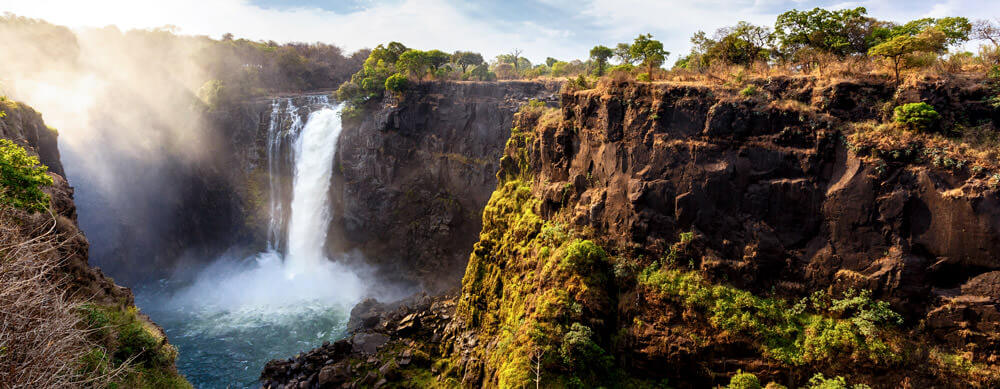
Travel Vaccines and Advice for Zambia

Located in Southern Africa, Zambia is a gorgeous country that provides travellers with a glimpse at beautiful wilderness and wildlife.
Though the country is landlocked, there are three rivers flowing through Zambia. One of the most popular landmarks is Victoria Falls, which is one of the World’s Seven Natural Wonders and a UNESCO World Heritage Site. There are also safaris for travellers to visit, without the large crowds that often come with safaris in Kenya or South Africa.
In the cities, there are also bustling markets, delicious restaurants, and a lively nightlife.
Do I Need Vaccines for Zambia?
Yes, some vaccines are recommended or required for Zambia. The National Travel Health Network and Centre and WHO recommend the following vaccinations for Zambia: hepatitis A , hepatitis B , typhoid , cholera , yellow fever , rabies , polio and tetanus .
See the bullets below to learn more about some of these key immunisations:
- Hepatitis A – Food & Water – Recommended for most travellers to the region, especially if unvaccinated.
- Hepatitis B – Blood & Body Fluids – Recommended for travellers to most regions.
- Tetanus – Wounds or Breaks in Skin – Recommended for travellers to most regions, especially if not previously vaccinated.
- Typhoid – Food & Water – Recommended for travellers to most regions.
- Cholera – Food & Water – Recommended for travel to most regions.
- Yellow Fever – Mosquito – Required if travelling from a region with yellow fever. Recommended for all travellers over 9 months of age, except travelling to the North West and Western Provinces.
- Rabies – Saliva of Infected Animals – High risk country. Vaccine recommended for long-stay travellers and those who may come in contact with animals.
- Polio – Food & Water – Considered a routine vaccination for most travel itineraries. Single adult booster recommended.
See the tables below for more information:
Malaria is a serious threat in Zambia. Antimalarial medication is recommended for all travellers to the region. Dengue and chikungunya are also present and can be prevented through proper use of mosquito repellents and nettings.
Rabies poses some risk to travellers of various types. Consult with a travel health specialist to learn if this vaccine is right for your trip.
Visit our vaccinations page to learn more. Travel safely with Passport Health and schedule your appointment today by calling or book online now .
Do I Need a Visa or Passport for Zambia?
A visa is needed to enter Zambia. Be sure to check your visa documents, as 90 days is standard but many travellers will be authorized for less. Passports must have at least six months validity. Proof of yellow fever vaccination may be required if you are travelling from a region where yellow fever is present.
Sources: Embassy of Zambia and GOV.UK
What is the Climate Like in Zambia?
Zambia is a tropical country, meaning it is warm and receives a fair amount of rain. The dry season runs from May to October, meaning there is little rain and low humidity. From November to April is the wet season. During this time, you’ll experience mostly afternoon rains and high humidity.
Areas situated in lower-lying valleys, as opposed to the elevated areas in central and southern Zambia, are much hotter.
How Safe is Zambia?
Travel to areas bordering the Democratic Republic of Congo and Angola should be limited due to border conflicts and undetected land mines.
Major cities are safe during the day. But, there have been violent attacks reported. Theft or pick-pocketing is common. Travellers should be cautious whilst in-country and should stay in groups when possible.
Visiting Victoria Falls
Victoria Falls is one of the most popular destinations in Zambia. Over one hundred million cubic meters of water fall over the edge of each minute during the rainy season.
The adventurous can bungee jump off the Victoria Falls bridge, zip line across the Batoka Gorge, white water raft below the fall, experience tandem kayaking or take a beautiful helicopter flight to see the river and the land around it.
What Should I Pack for Zambia?
While an amazing country, a trip to Zambia does need some extra packing:
- Sun Cream – Zambia is very warm and travellers will likely be outside exploring the water or safaris.
- Swimsuit – Most visitors will want to visit at least one of three rivers in the country, making a kit fit for water a must.
- Money for Taxes – When leaving the country, travellers will need to pay departure taxes and security charges.
Embassy of the United Kingdom in Zambia
If you are in Zambia and have an emergency (for example, been attacked, arrested or someone has died) contact the nearest consular services. Contact the embassy before arrival if you have additional questions on entry requirements, safety concerns or are in need of assistance.
British High Commission Lusaka 5210 Independence Avenue, P.O. Box 50050 15101 Ridgeway Lusaka 10101 Zambia Telephone: +260 211 423 200 Emergency Phone: +260 211 423 200 Fax: +260 211 423 278 Email: [email protected]
Ready to start your next journey? Ring us up at or book online now !
On This Page: Do I Need Vaccines for Zambia? Do I Need a Visa or Passport for Zambia? What is the Climate Like in Zambia? How Safe is Zambia? Visiting Victoria Falls What Should I Pack To Zambia? Embassy of the United Kingdom in Zambia
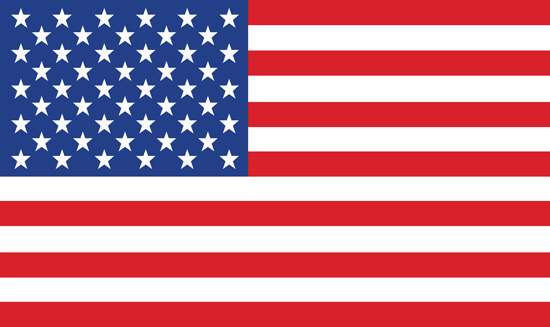
- Privacy Policy
- Automatic Data Collection Statement
Cookies on GOV.UK
We use some essential cookies to make this website work.
We’d like to set additional cookies to understand how you use GOV.UK, remember your settings and improve government services.
We also use cookies set by other sites to help us deliver content from their services.
You have accepted additional cookies. You can change your cookie settings at any time.
You have rejected additional cookies. You can change your cookie settings at any time.
beta This is a test version of the layout of this page. Take the survey to help us improve it
- Help and services around the world
- UK help and services in Zambia
Travelling to Zambia
Includes travel advice and how to get married abroad.
Subscriptions
- Get emails for this topic Travelling to Zambia
Getting married abroad
Requirements, paperwork and processes for weddings and civil partnerships overseas - registration, restrictions, fees
Reduce your risk from terrorism while abroad
How to minimise your risk, and what to do if there's a terrorist attack.
Zambia travel advice
FCDO travel advice for Zambia. Includes safety and security, insurance, entry requirements and legal differences.
Is this page useful?
- Yes this page is useful
- No this page is not useful
Help us improve GOV.UK
Don’t include personal or financial information like your National Insurance number or credit card details.
To help us improve GOV.UK, we’d like to know more about your visit today. We’ll send you a link to a feedback form. It will take only 2 minutes to fill in. Don’t worry we won’t send you spam or share your email address with anyone.

IMAGES
COMMENTS
Monitor travel advisories and alerts and read travel tips from the US Department of State. Enroll in the Smart Traveler Enrollment Program (STEP). Leave a copy of your itinerary, contact information, credit cards, and passport with someone at home. ... Use the Healthy Travel Packing List for Zambia for a list of health-related items to consider ...
10 April 2024. Updated: 2 February 2024. Latest update: Information that British passport holders do not need a visa to enter Zambia ('Entry requirements' page). The Foreign, Commonwealth ...
Travellers are cautioned to avoid contact with animals, including dogs, livestock (pigs, cows), monkeys, snakes, rodents, birds, and bats, and to avoid eating undercooked wild game. Closely supervise children, as they are more likely to come in contact with animals. Cutaneous anthrax.
Reissued with obsolete COVID-19 page links removed. Exercise normal precautions in Zambia. Read the country information page for additional information about travel to Zambia.. If you decide to travel to Zambia: Enroll in the Smart Traveler Enrollment Program to receive Alerts and make it easier to locate you in an emergency.; Follow the Department of State on Facebook and Twitter.
General Zambia Travel Tips. - Always travel with toilet paper, hand sanitizer, and small change. Sometimes it can be difficult to break 100 kwacha bills. - Look out for citenge material or traditional fabric. You can get clothes and accessories tailored affordably. Makes for a great souvenir or gift!
Zambia Travel Advice. There's nothing like up-to-date, relevant travel information direct from the experts - get Go2Africa's essential Zambia travel advice before you go. Money & Spending. Zambia's unit of currency is the Zambian Kwacha although US Dollars are widely accepted at lodges and hotels throughout the country. If you plan on ...
FCDO travel advice for Zambia. Includes safety and security, insurance, entry requirements and legal differences.
From cutting through the countryside to connecting cities, these 24 railway journeys offer entirely new perspectives on a destination. Best in Travel - 2023. 8-day journey through Zambia. Nov 15, 2022 • 12 min read.
FCDO travel advice for Zambia. Includes safety and security, insurance, entry requirements and legal differences. ... is valid for unlimited travel between Zambia and Zimbabwe and for day trips to ...
Your ultimate Zambia travel guide, with tips, ideas on things to do, and best things to see in Zambia. Great for first-time and returning travelers. The Smoke that Thunders is a suitable name for this impressive waterfall. You can hear the roar from afar and feel the power when you are up close. Located in Livingstone, Zambia on the Zambezi ...
Reissued with obsolete COVID-19 page links removed. Exercise normal precautions in Zambia. Read the country information page for additional information about travel to Zambia.. If you decide to travel to Zambia: Enroll in the Smart Traveler Enrollment Program to receive Alerts and make it easier to locate you in an emergency.; Follow the Department of State on Facebook and Twitter.
Advice. Travelers'. Diarrhea Kits. Available. Located in Southern Africa, Zambia is a gorgeous country that provides travelers with a glimpse at beautiful wilderness and wildlife. Though the country is landlocked, there are three rivers flowing through Zambia. One of the most popular landmarks is Victoria Falls, which is one of the World's ...
Boil all drinking water or drink bottled water in rural areas. Avoid contact with animals and do not eat raw or uncooked meat. Don't swim in freshwater. Use insect repellent. The standard of medical facilities in Zambia is poor and medical supplies are limited. Make sure you know your blood type. Carry a medical kit.
TRAVEL ADVISORY FACTS Interesting facts and information about Zambia Read more INSURANCE Vehicle, travel and medical insurance Read more VISA INFORMATION Visa requirements and exemptions Read more TRAVEL TO ZAMBIA By bus, train,
FCDO travel advice for Zambia. Includes safety and security, insurance, entry requirements and legal differences.
Advice for All Destinations COVID-19. Read the information on the COVID-19: Health Considerations for Travel page for advice on travelling during the COVID-19 pandemic.. Vaccinations and malaria risk. Review both the Vaccination and Malaria sections on this page to find out if you may need vaccines and/or a malaria risk assessment before you travel to this country.
The first of our Zambia travel tips is a big one: international flights. To start your adventure, you'll need to fly to the capital Lusaka, the arrival and departure point of all long-haul flights. Emirates have one flight a day from Dubai, which connects nicely with flights to the major safari destinations on national airline Proflight Zambia.
Here are some of the top tourist attractions in Zambia: 1. Victoria Falls: Located on the border between Zambia and Zimbabwe, Victoria Falls is one of the most awe-inspiring natural wonders in the world. Also known as "The Smoke That Thunders," the waterfall is a UNESCO World Heritage Site and a must-visit destination.
Our travel Advisories for Zambia. Our guide includes all recommended vaccines and medications to travel to Zambia, safety travel advice, actual weather, Canadian High Comission contact information and in-country recommendations for medical care in Zambia.
Read this travel advice and carry out your own research before deciding whether to travel. Emergency services in Zambia. Police: 991. Ambulance: 992. Fire: 993 Contact your travel provider and insurer
Visiting Zambia and need to know the latest government travel advice for Zambia? Go here get the latest travel advice and travel warning for Zambia from governments around the world.
Advice. Travellers'. Diarrhoea Kits. Available. Located in Southern Africa, Zambia is a gorgeous country that provides travellers with a glimpse at beautiful wilderness and wildlife. Though the country is landlocked, there are three rivers flowing through Zambia. One of the most popular landmarks is Victoria Falls, which is one of the World ...
Zambia travel advice. FCDO travel advice for Zambia. Includes safety and security, insurance, entry requirements and legal differences. Includes travel advice and how to get married abroad.